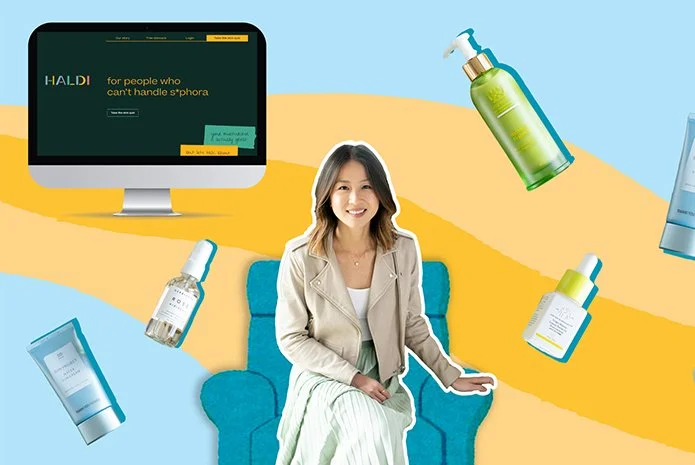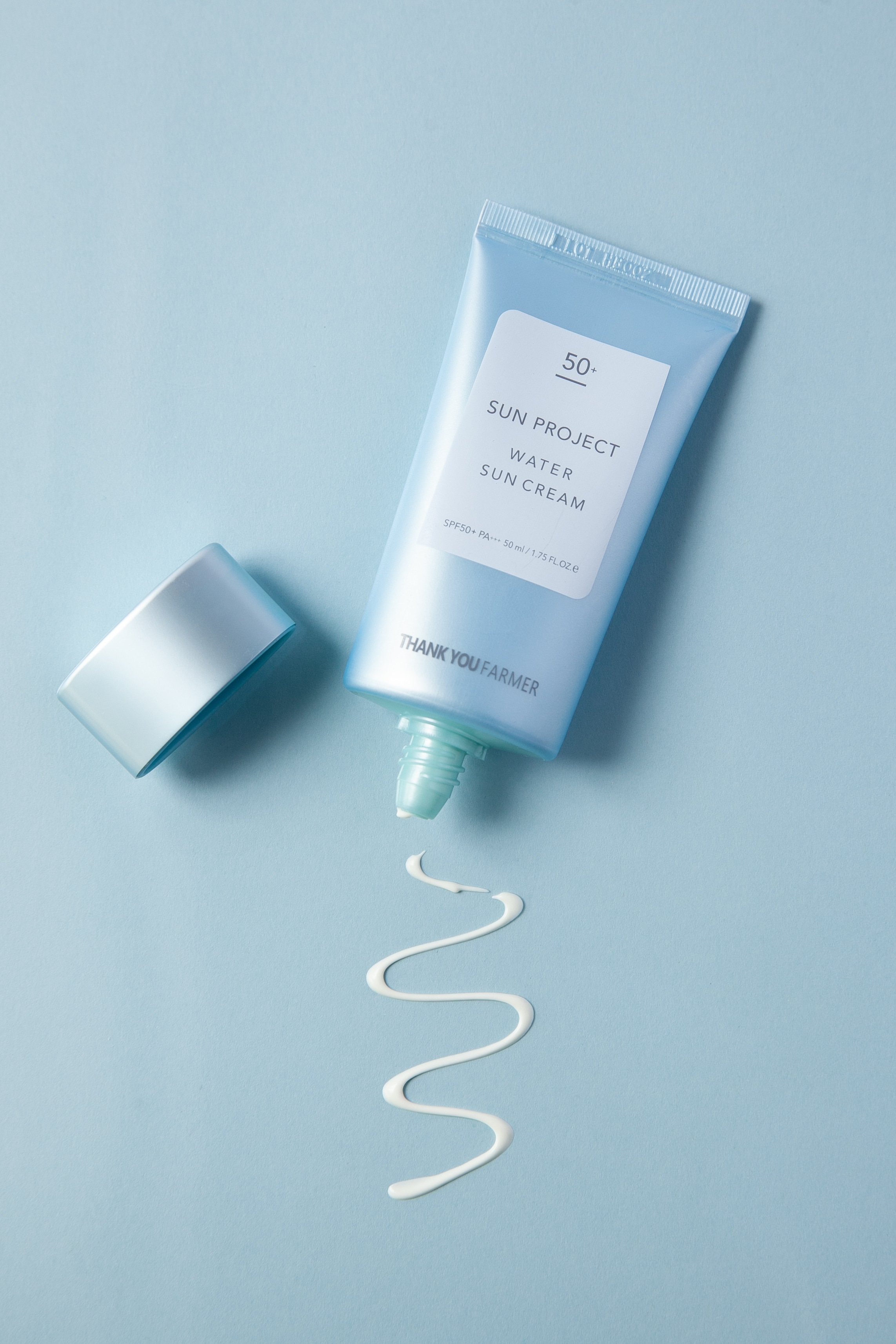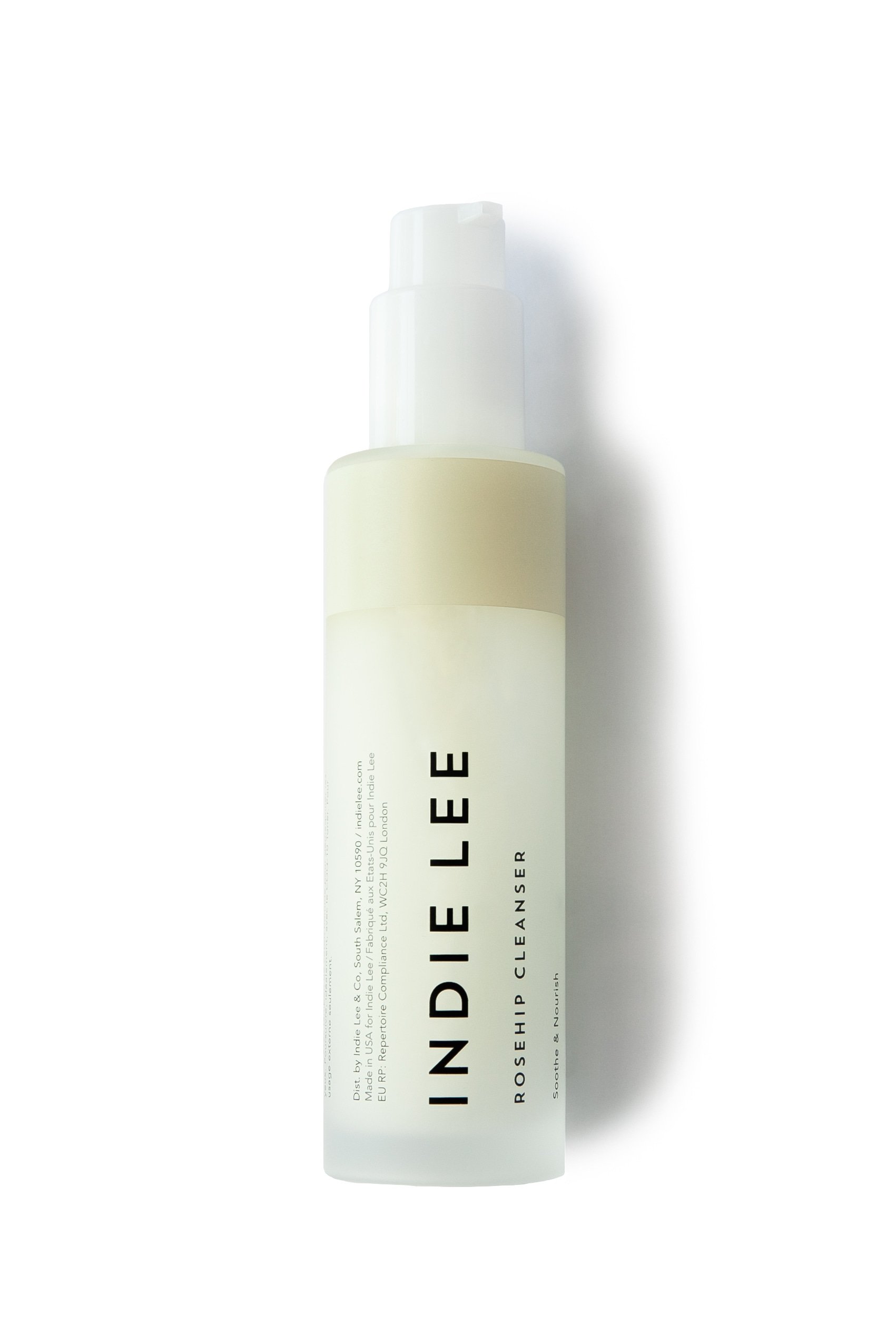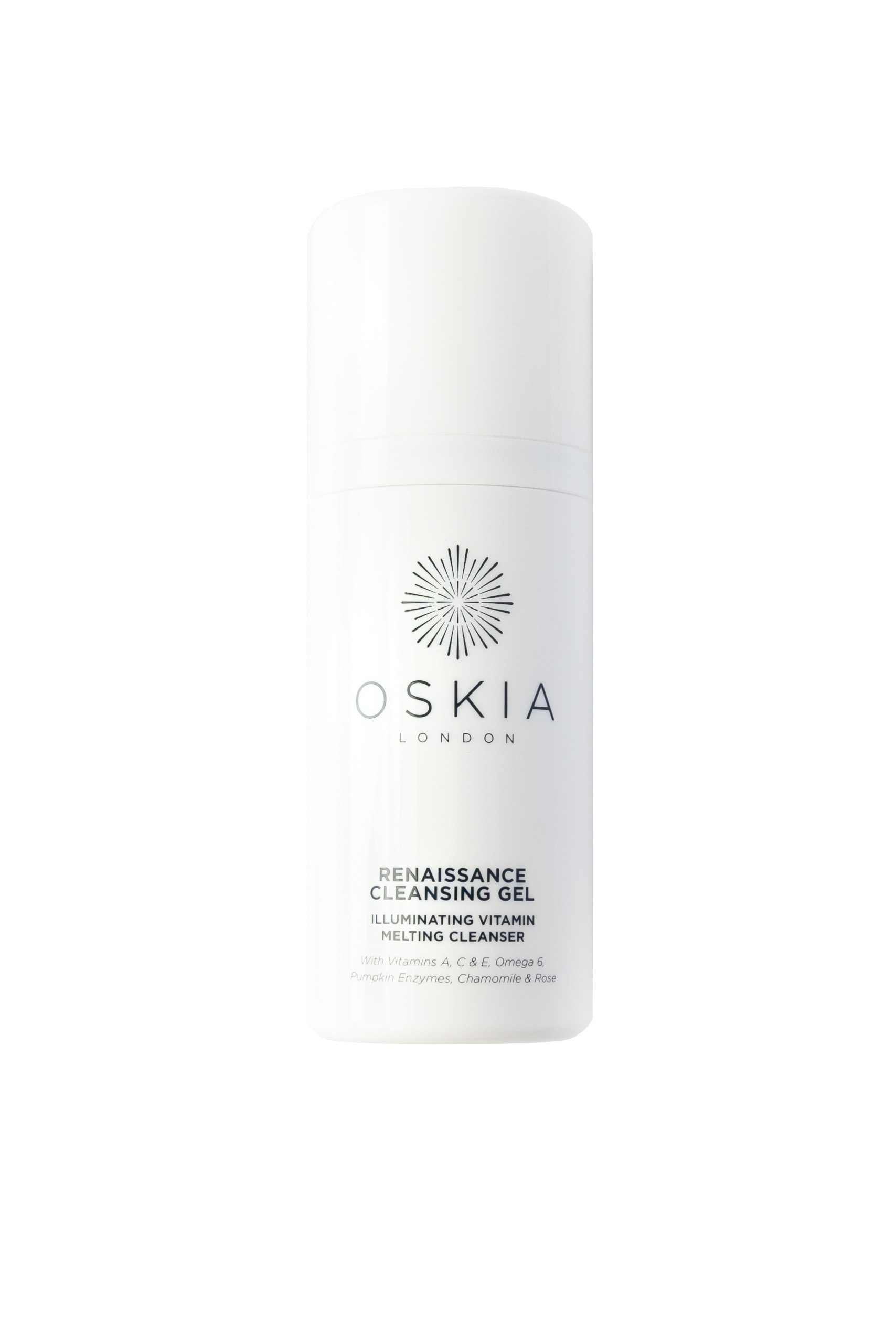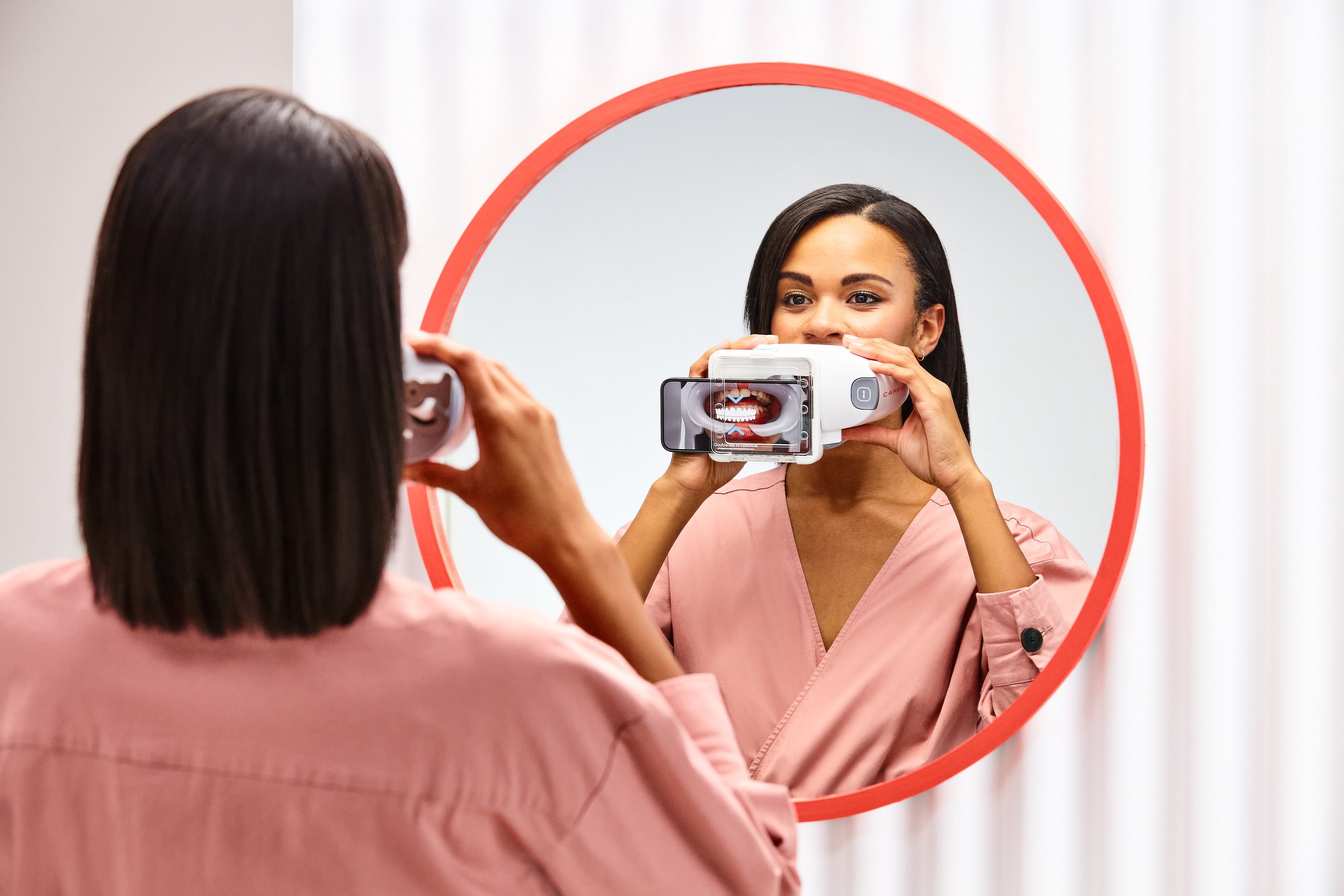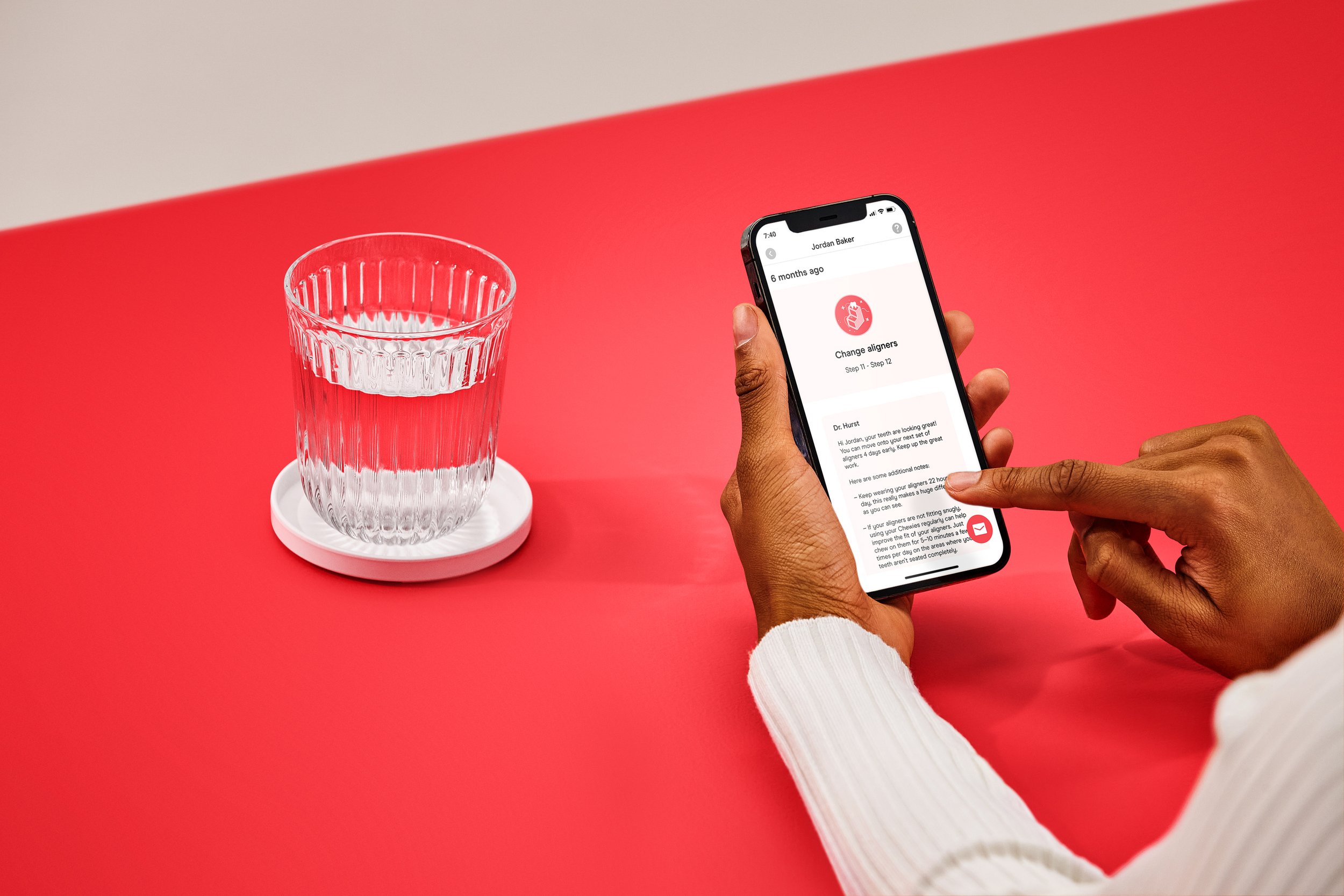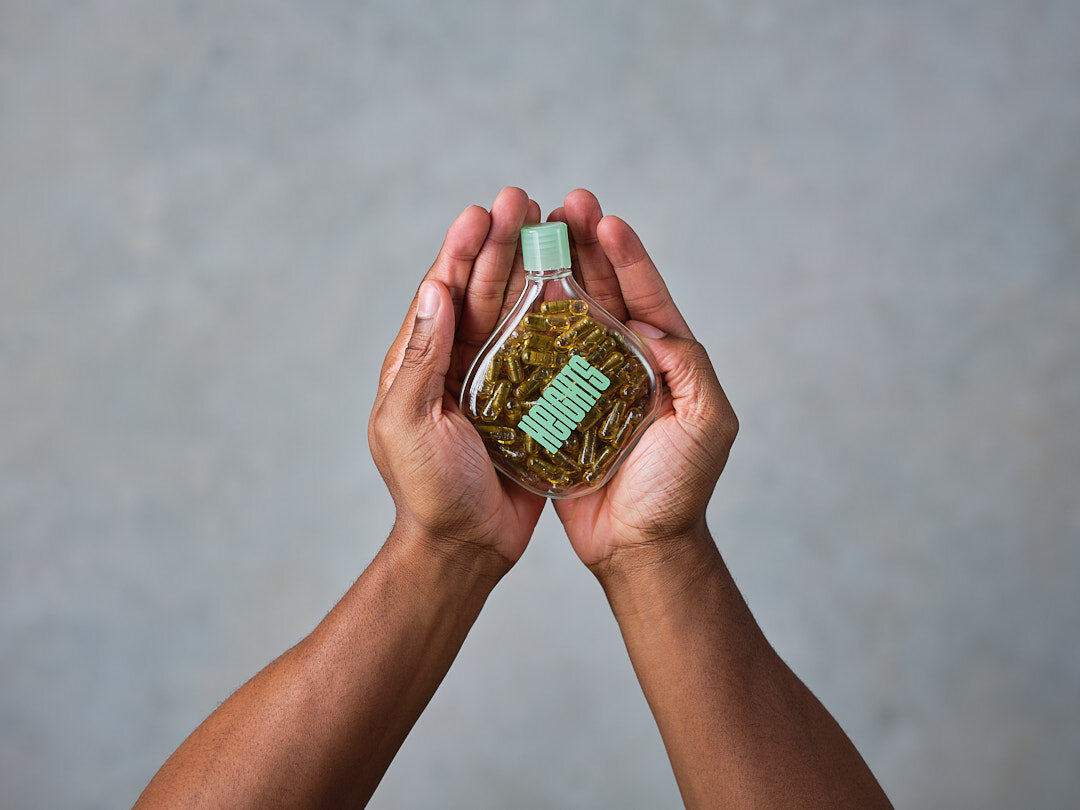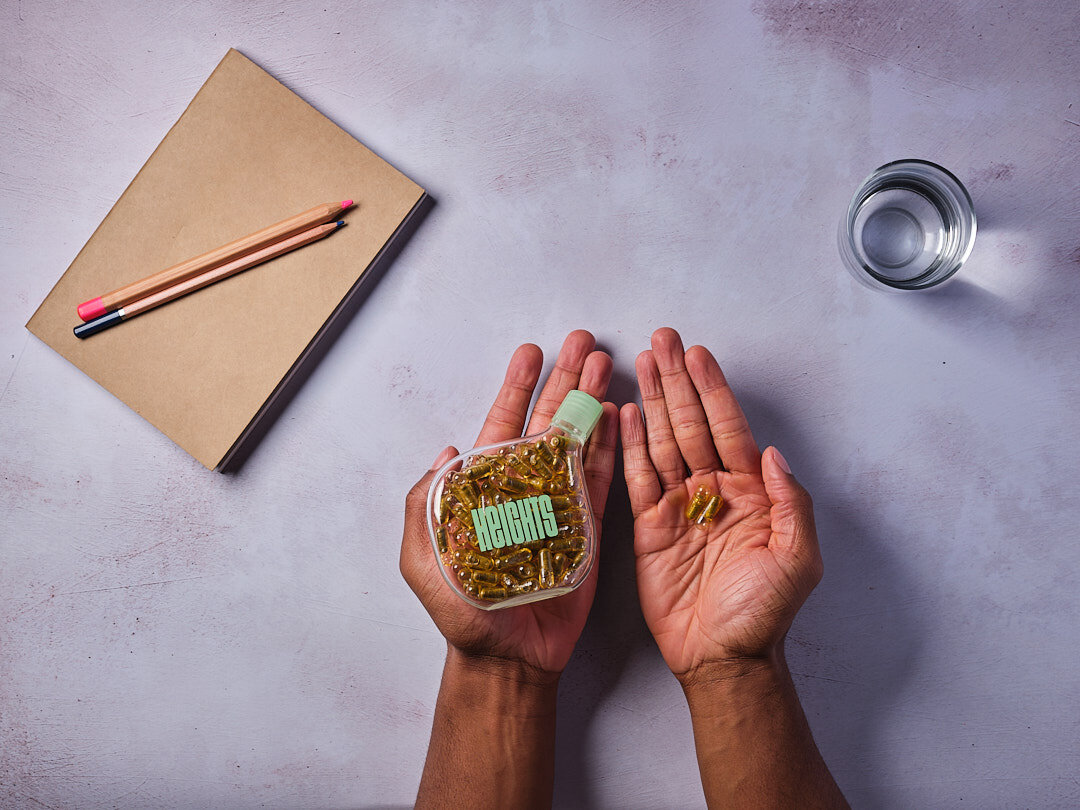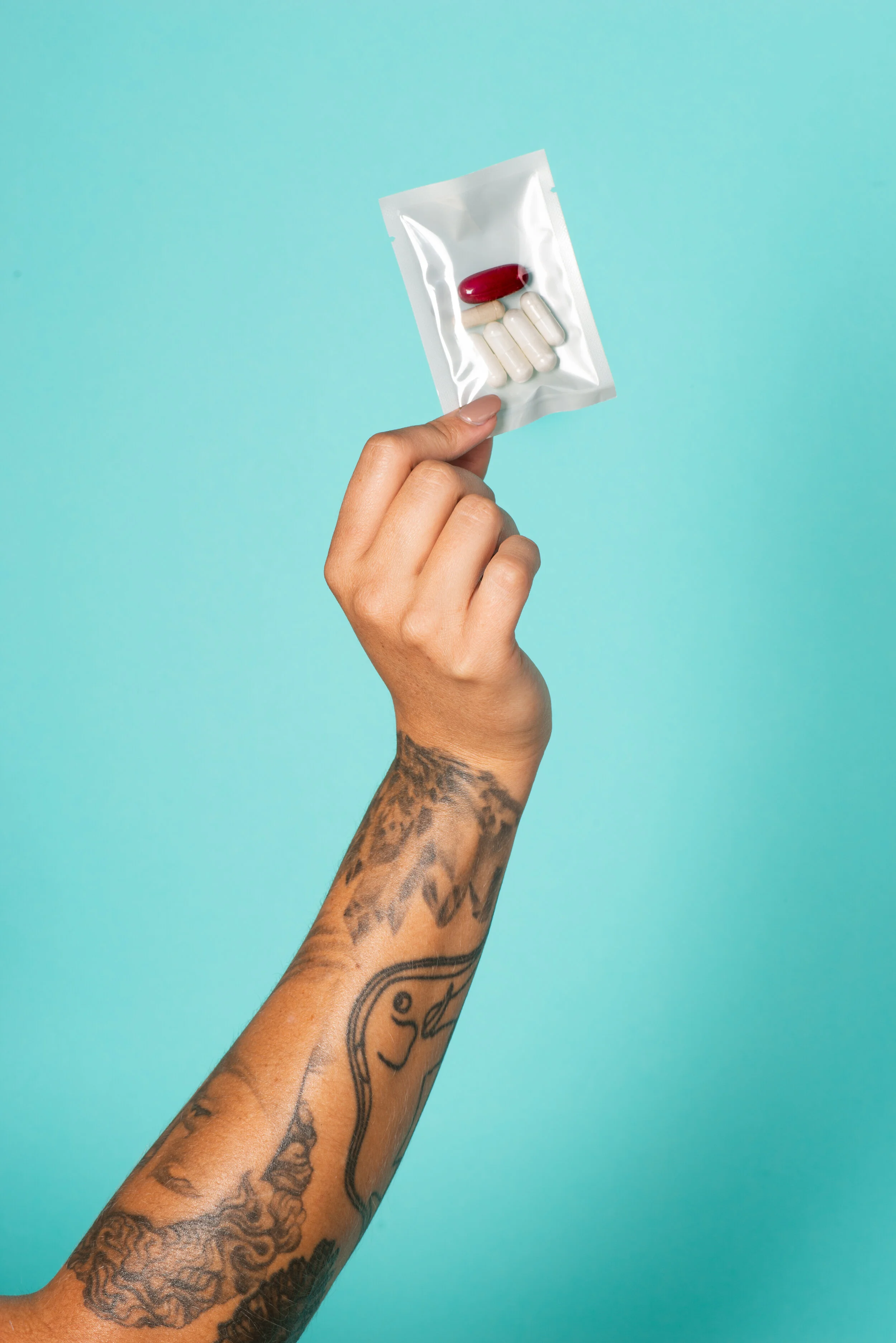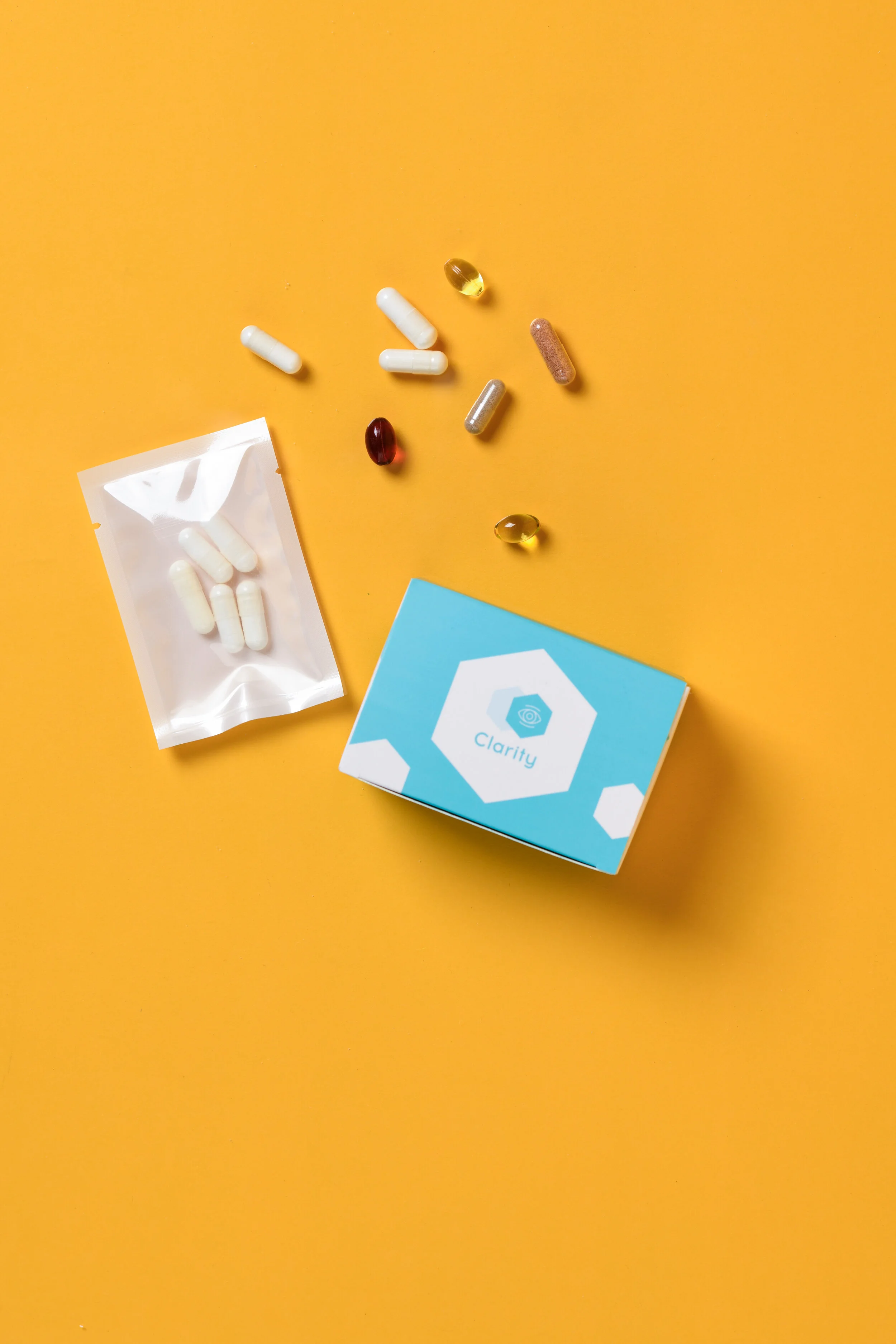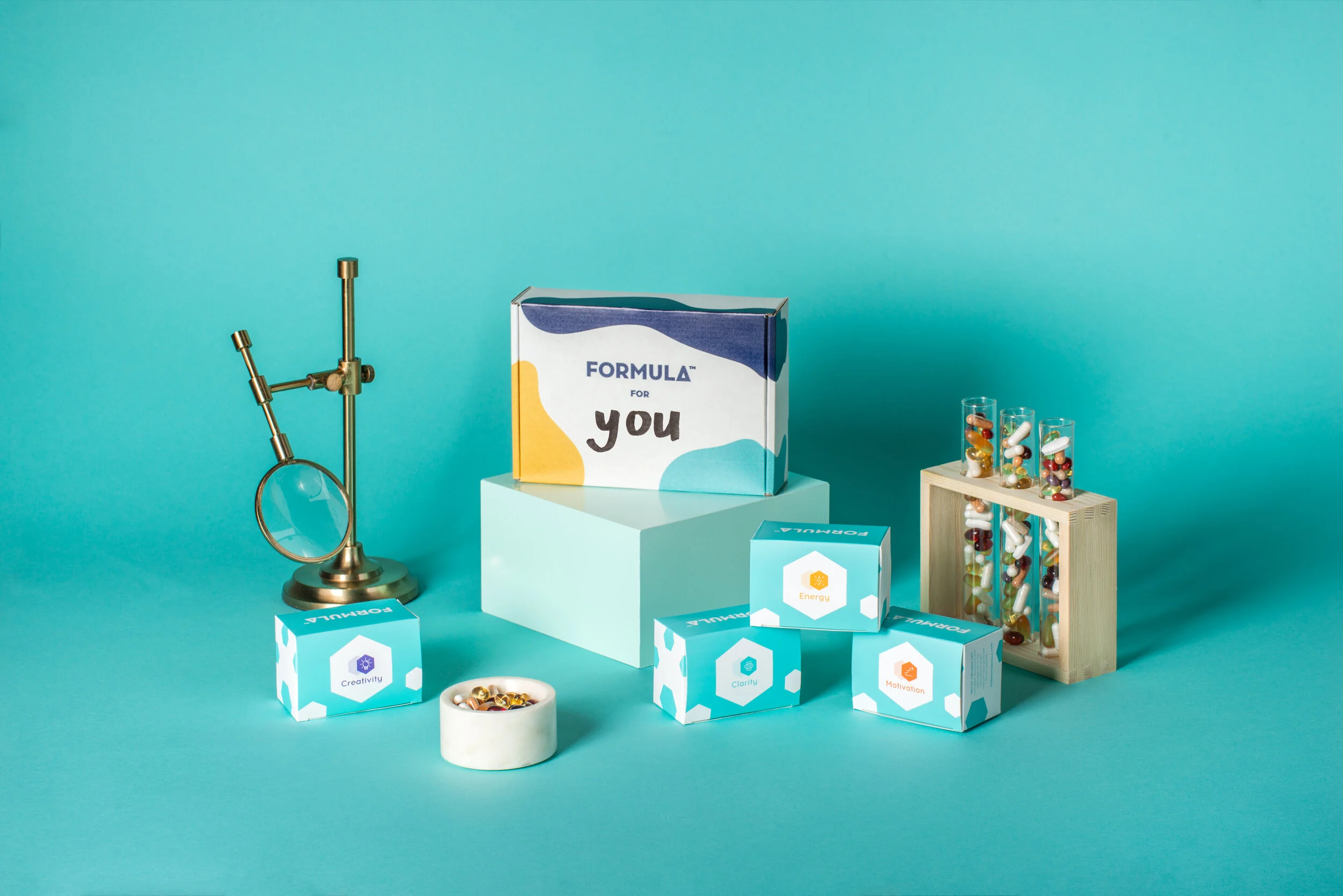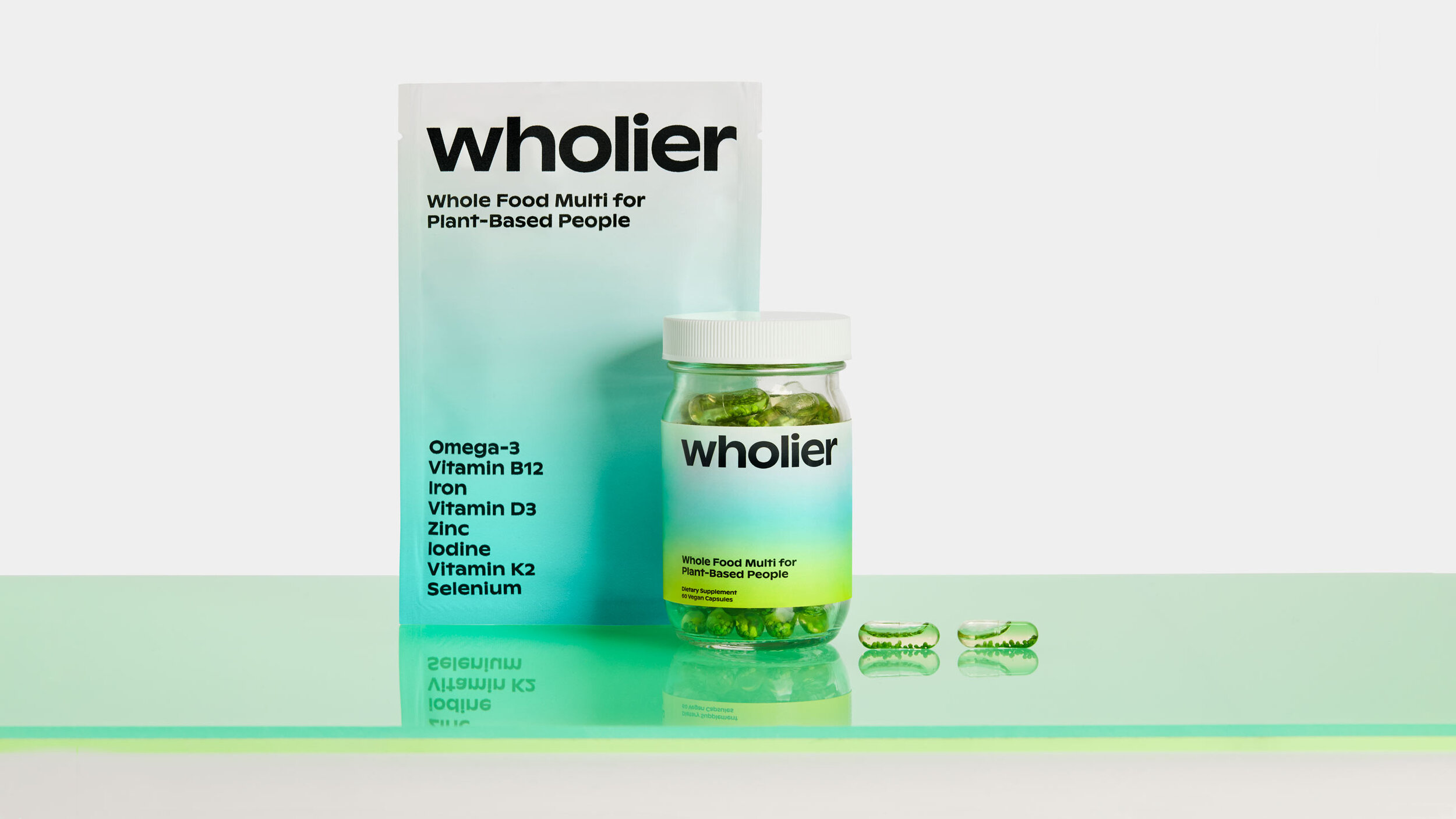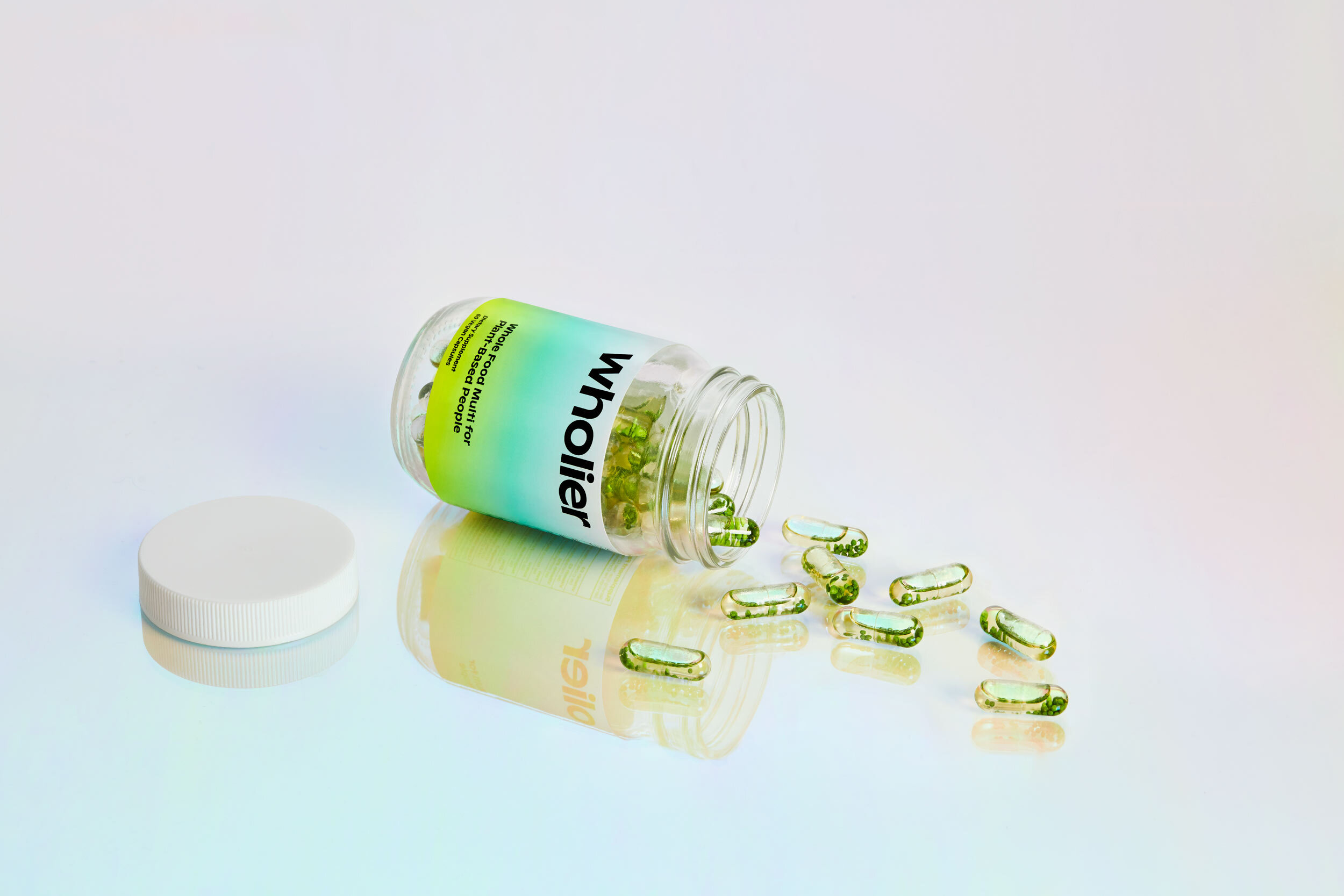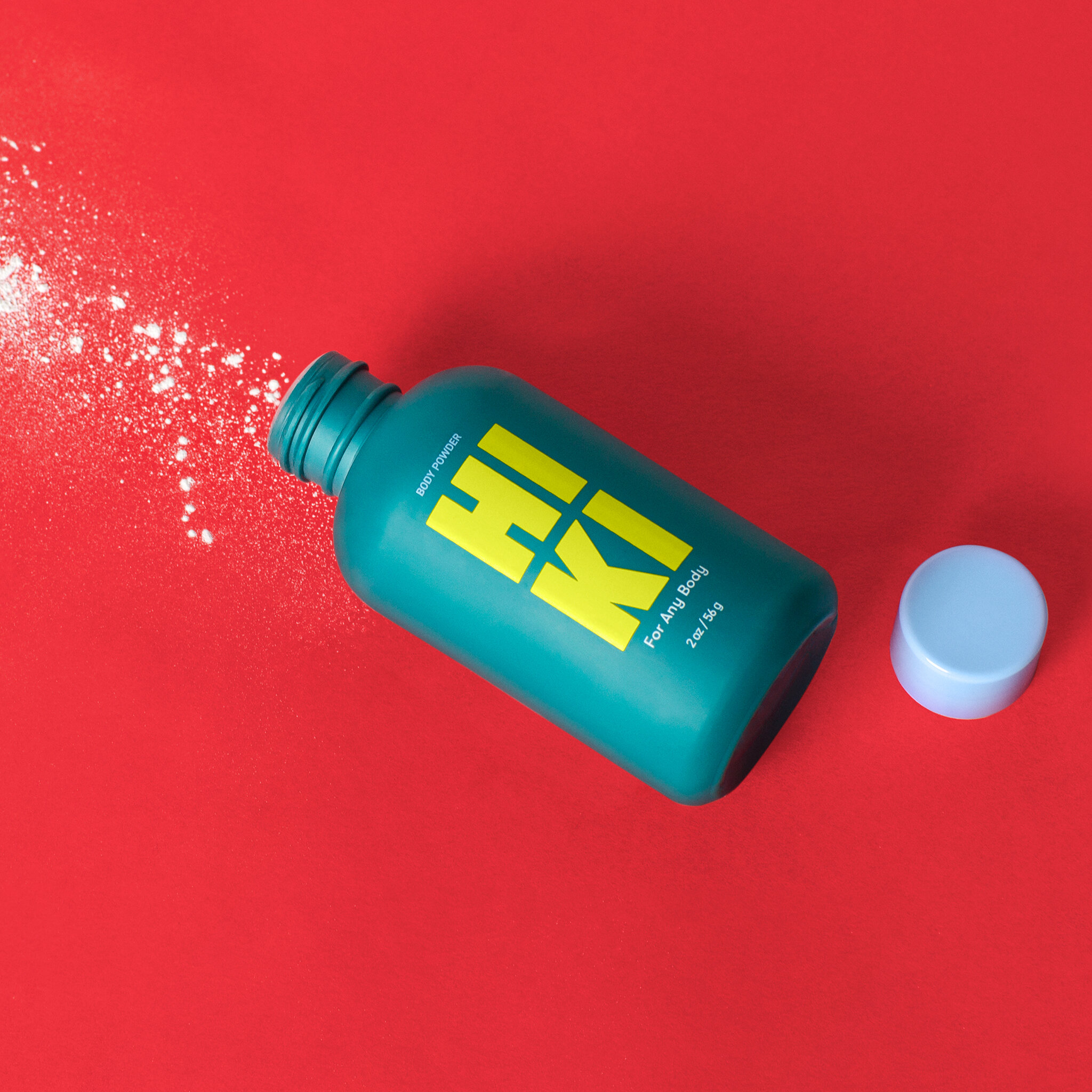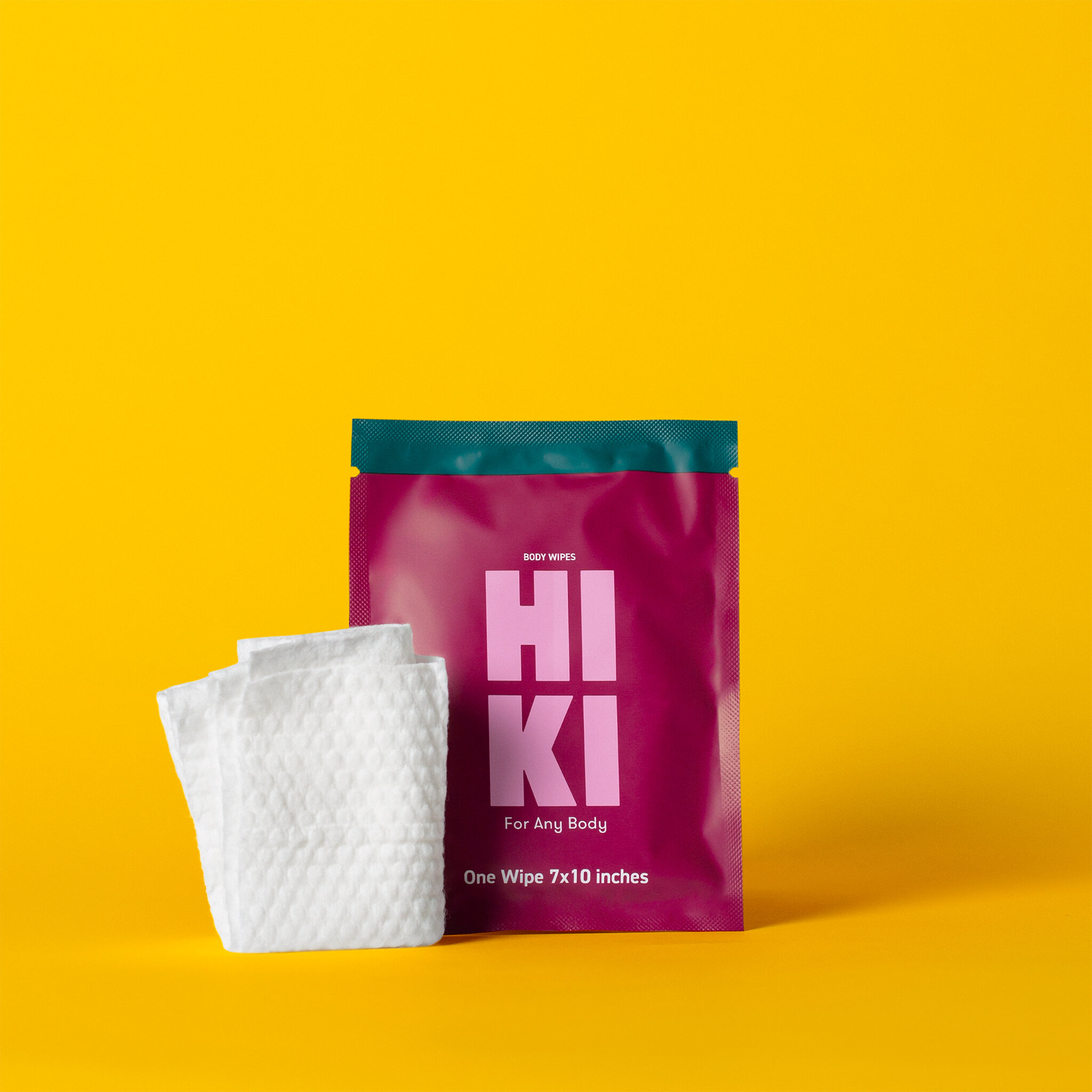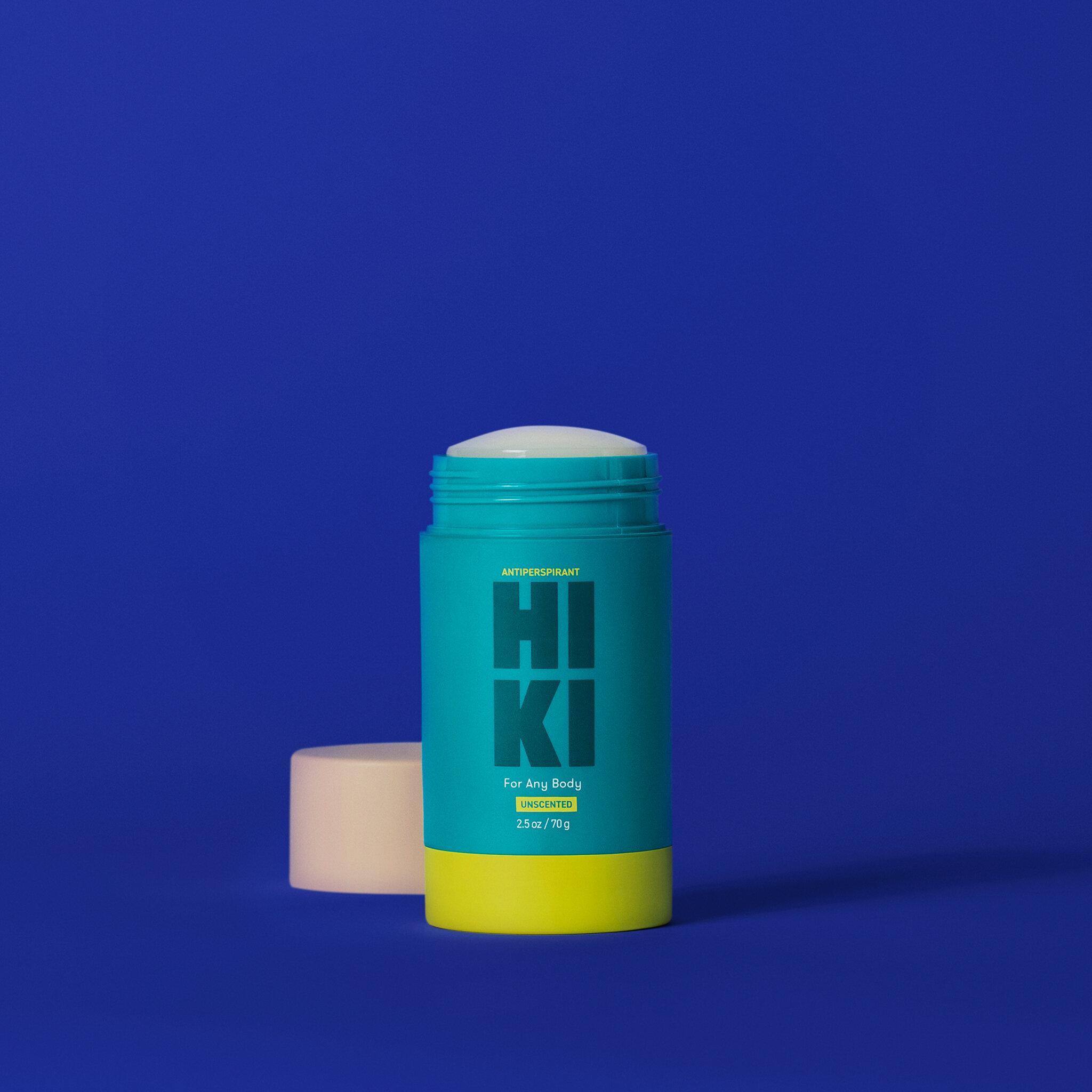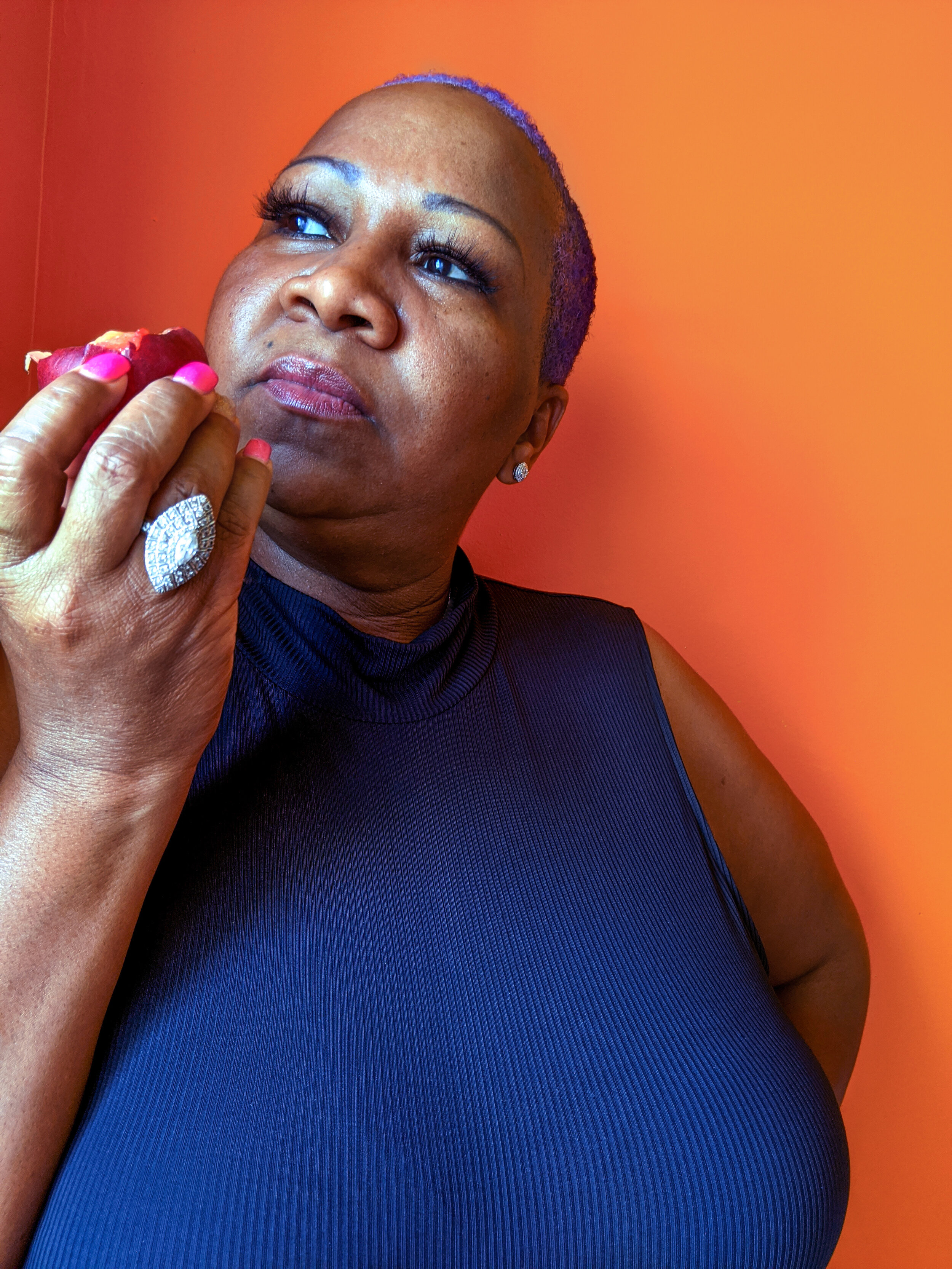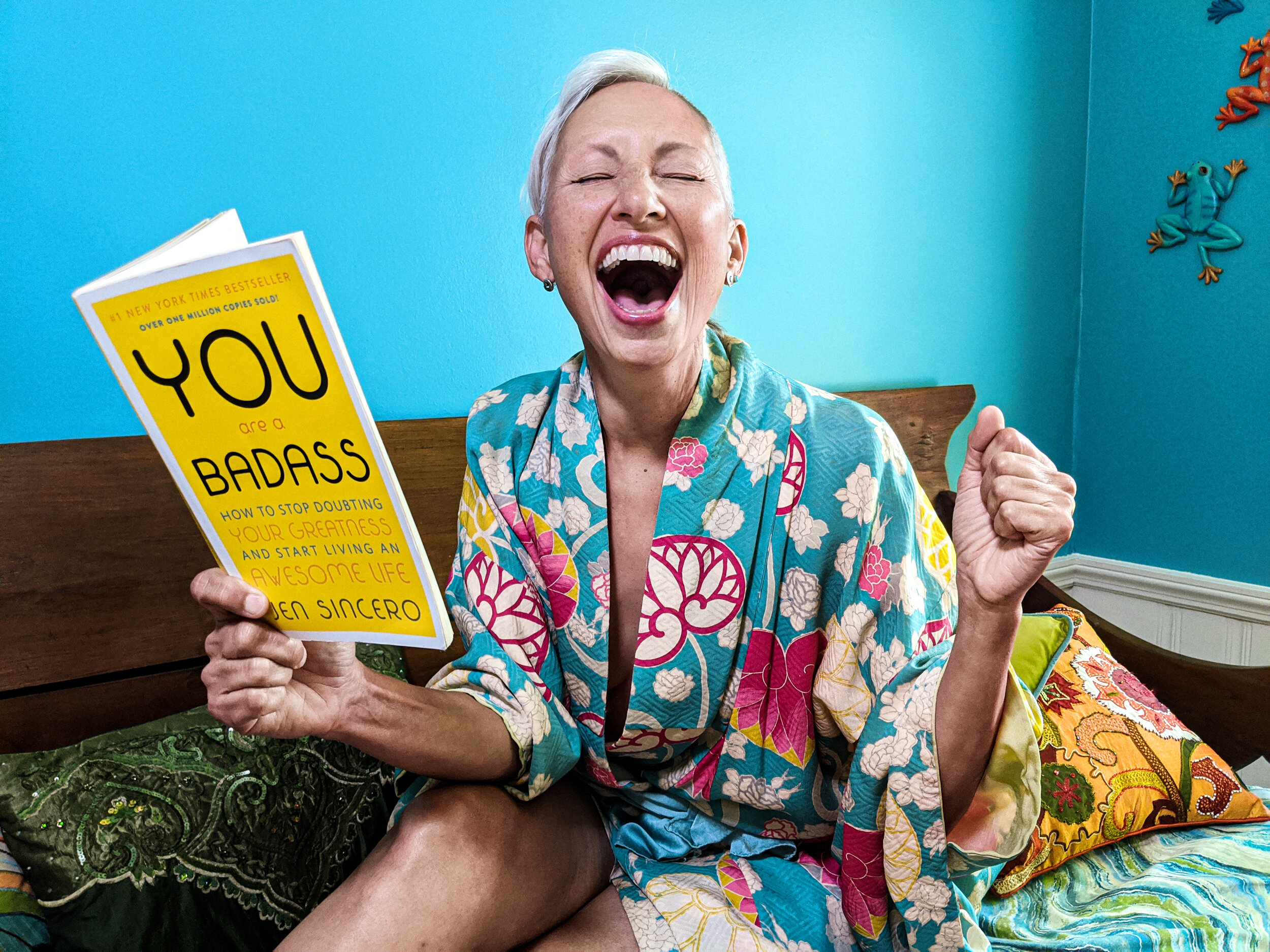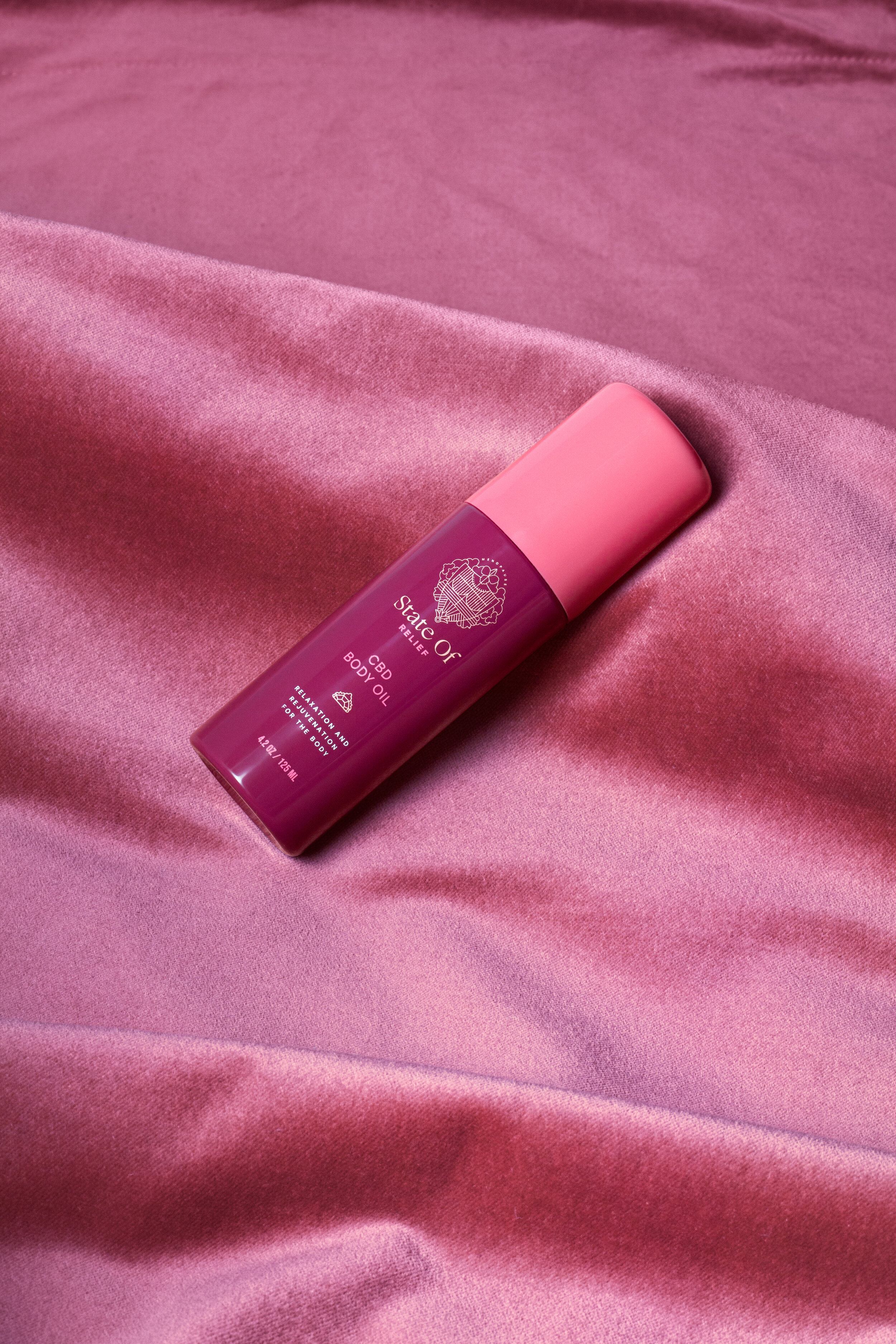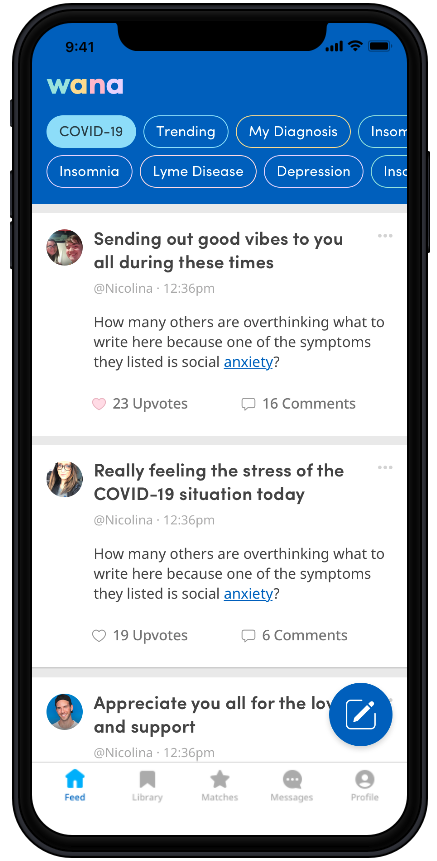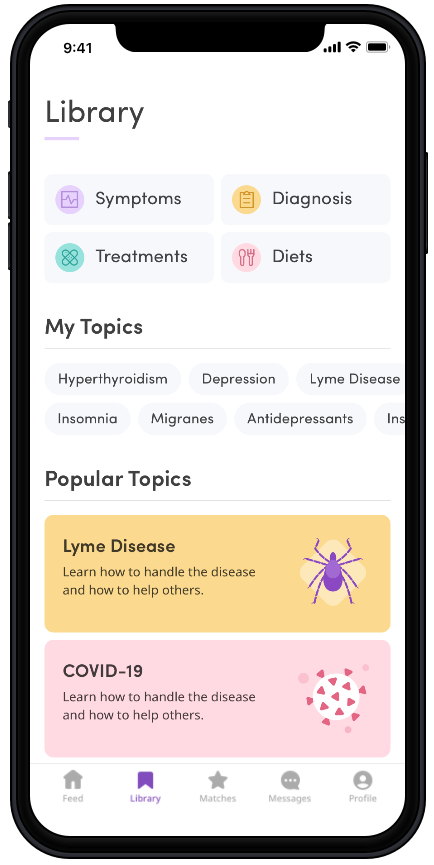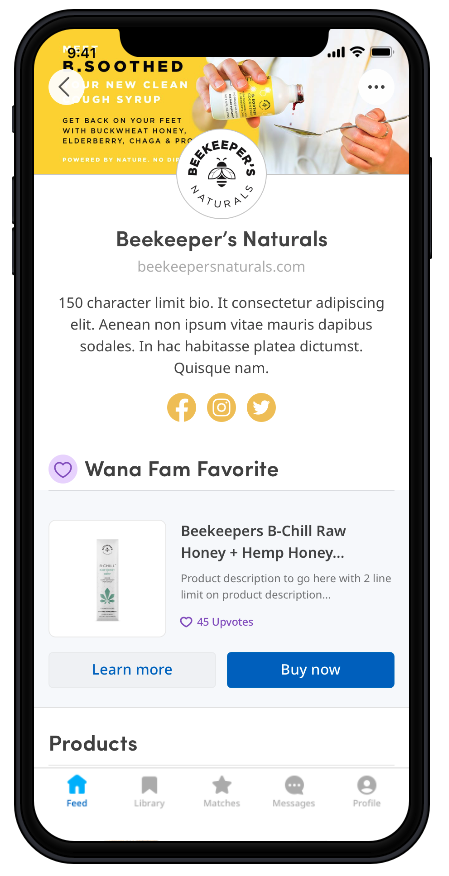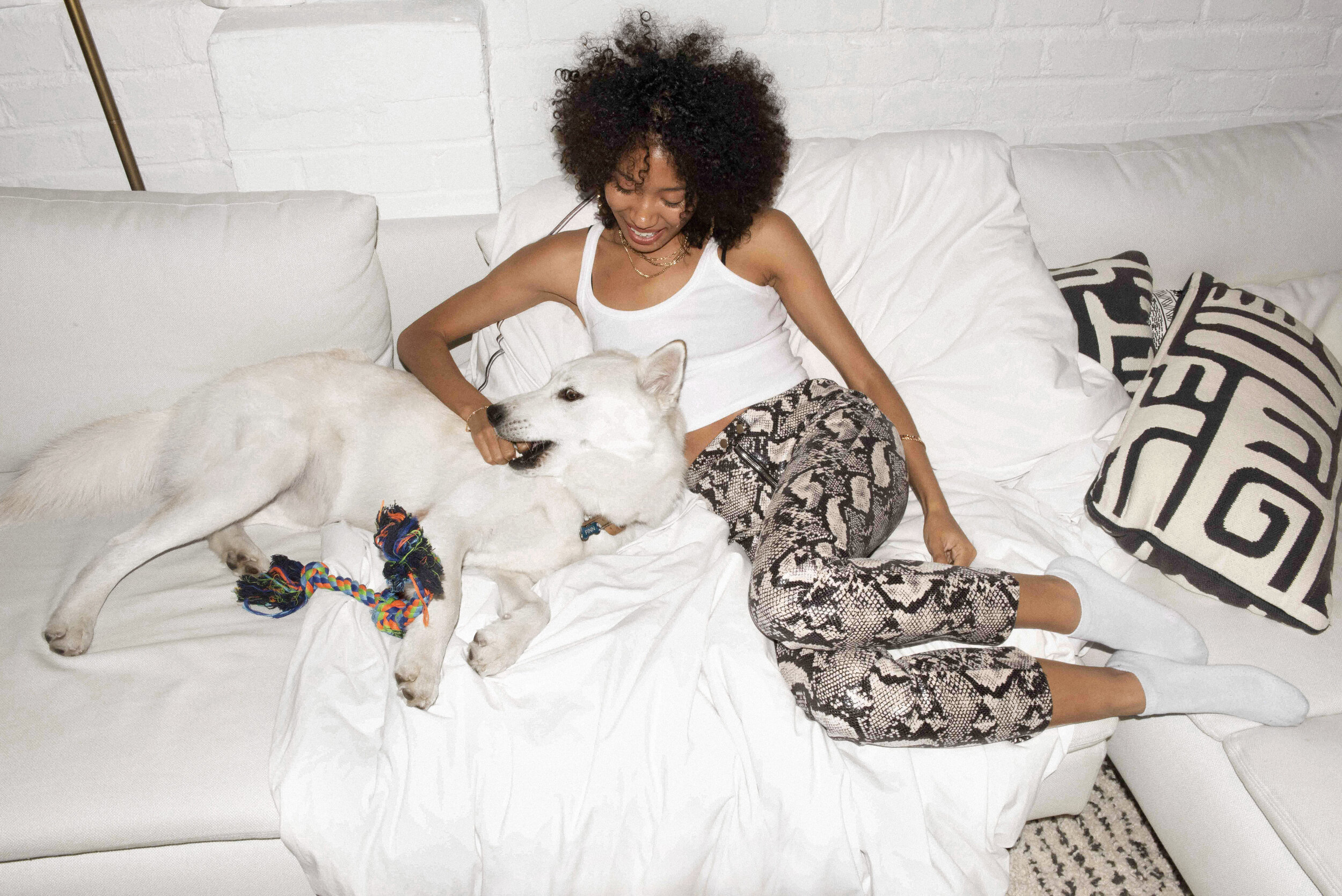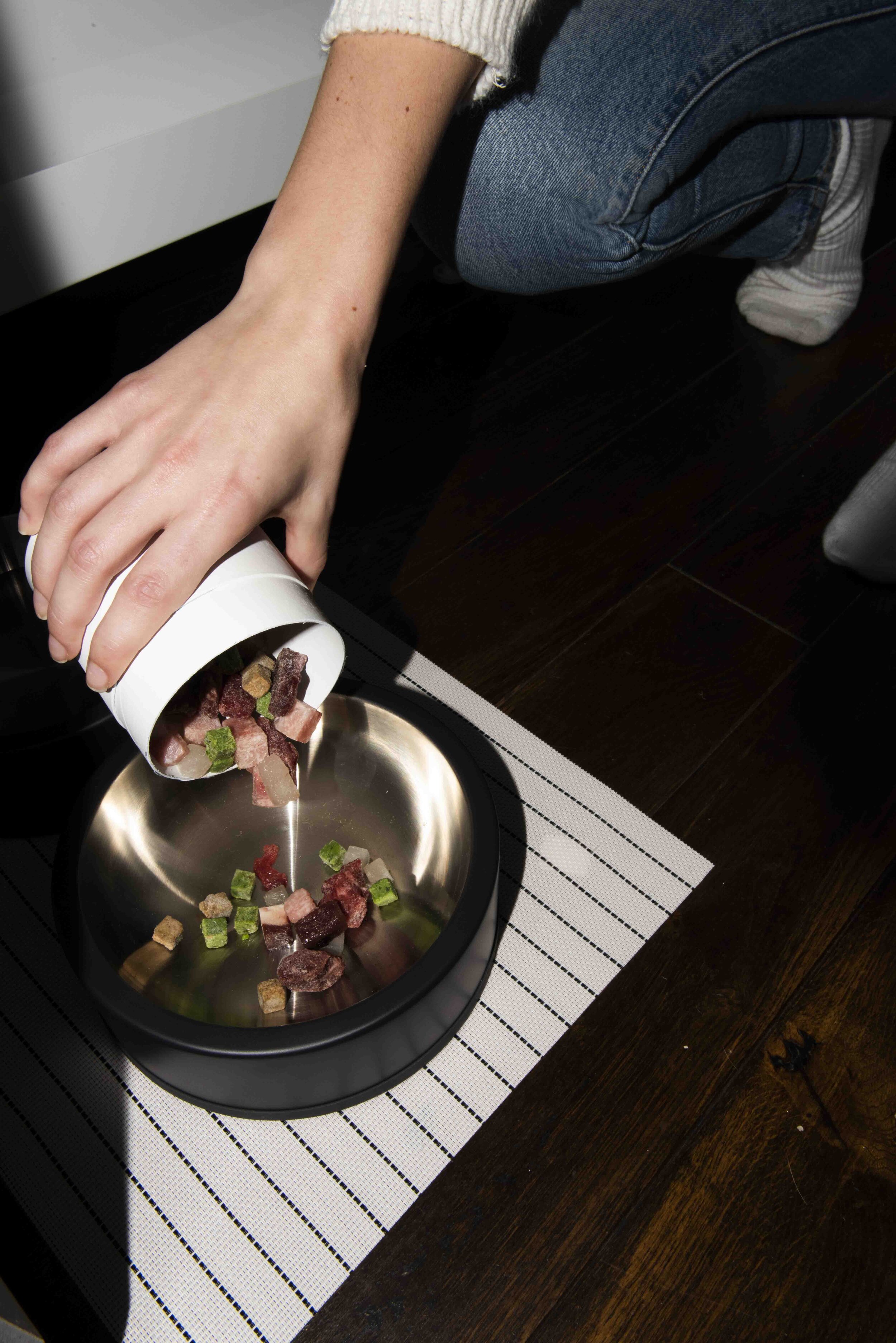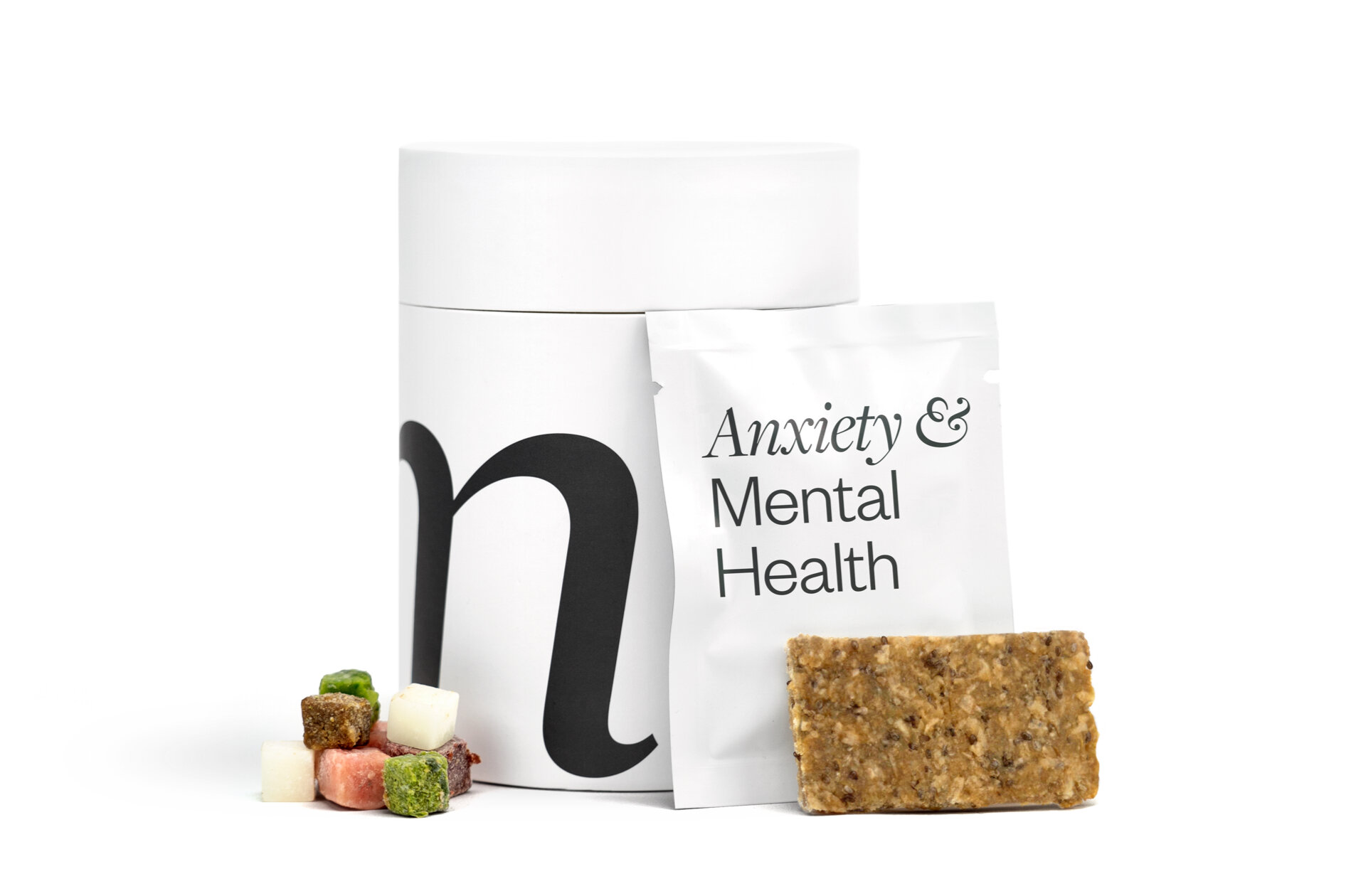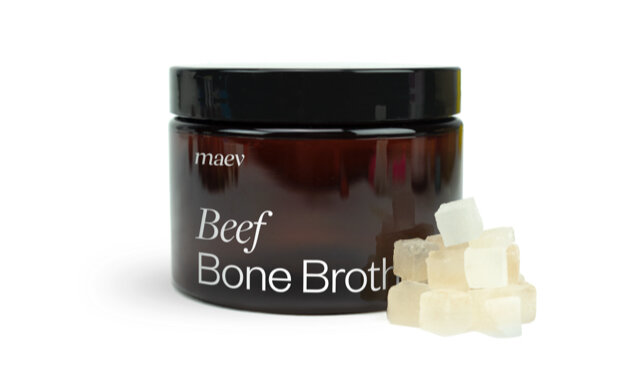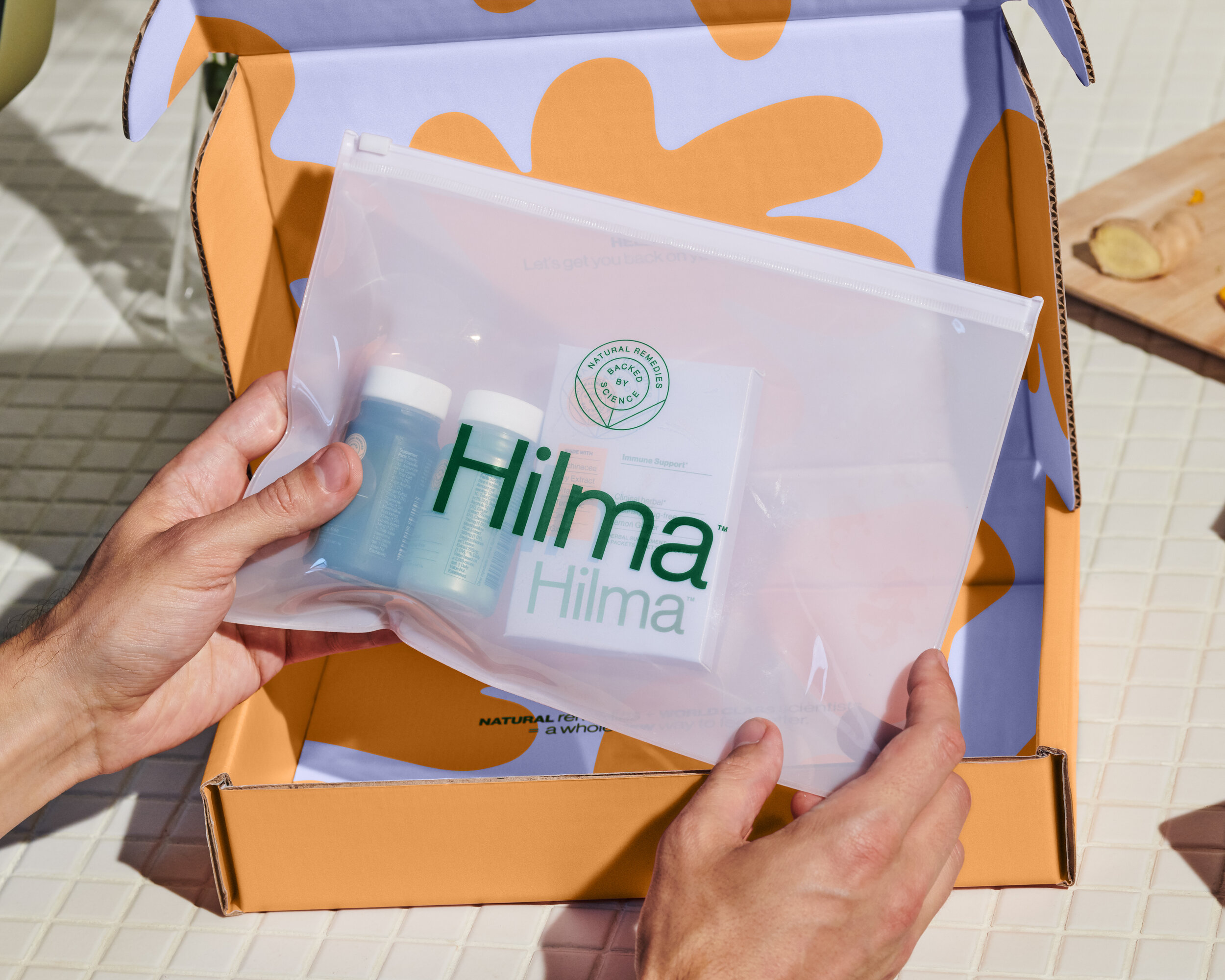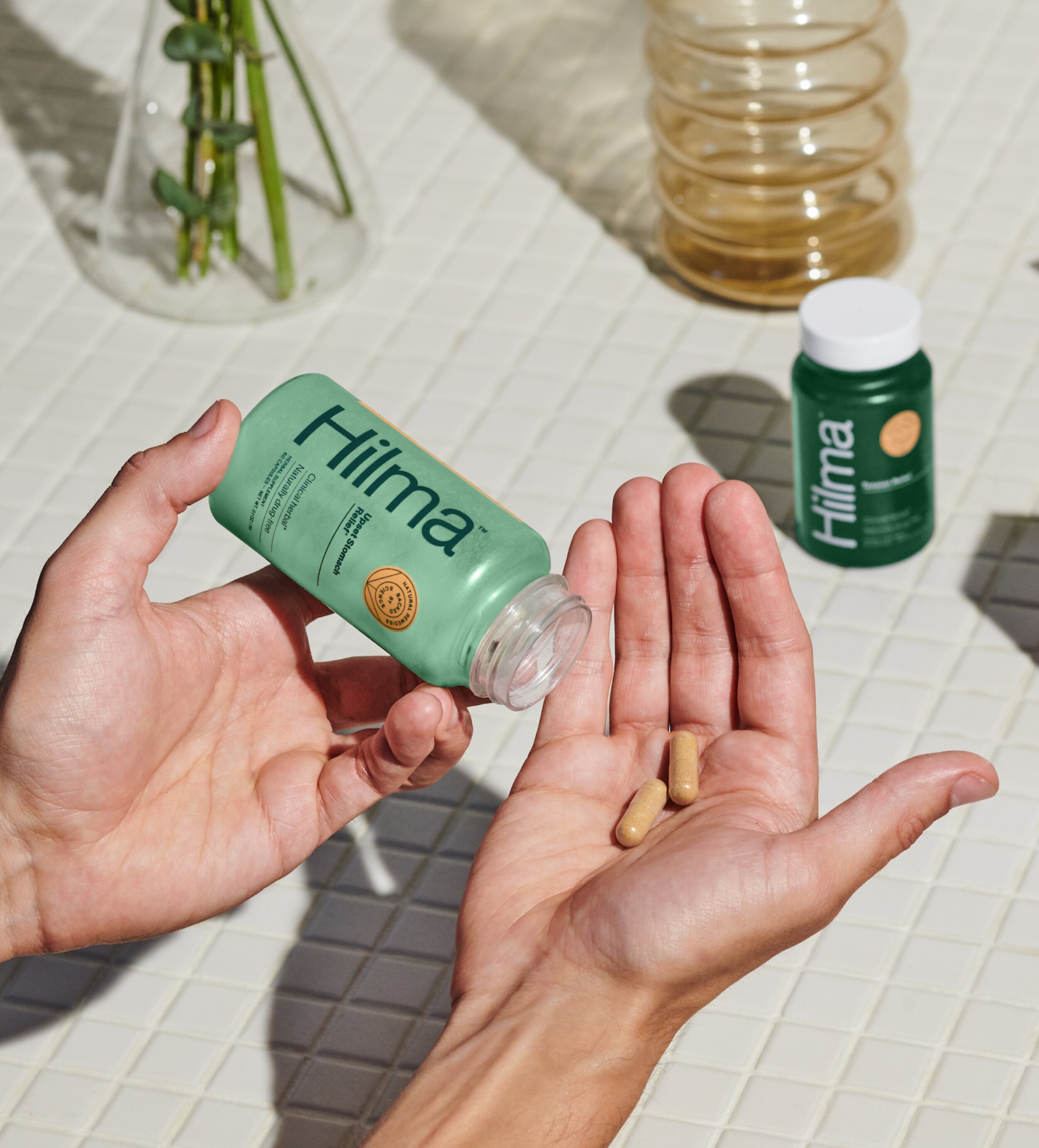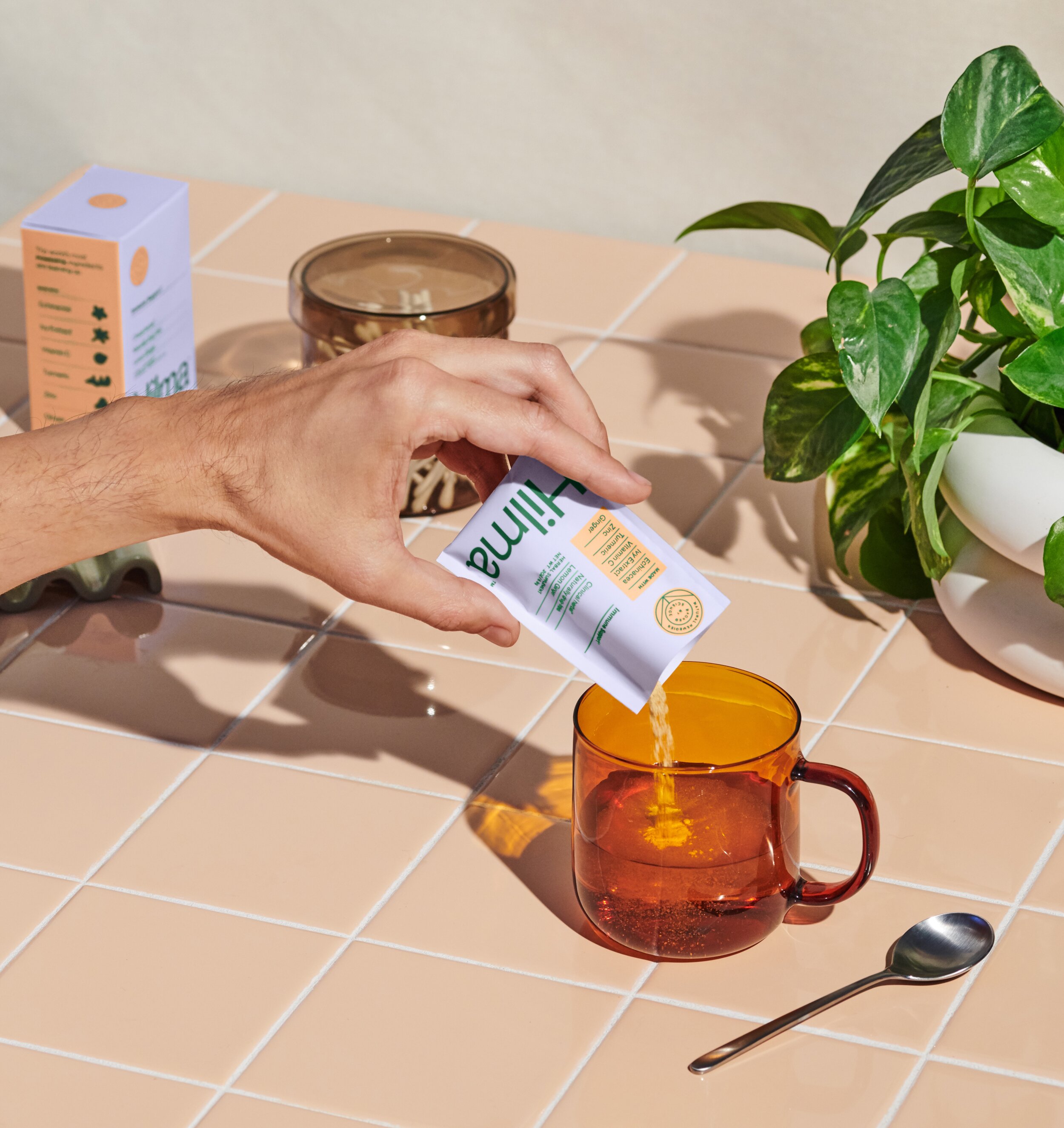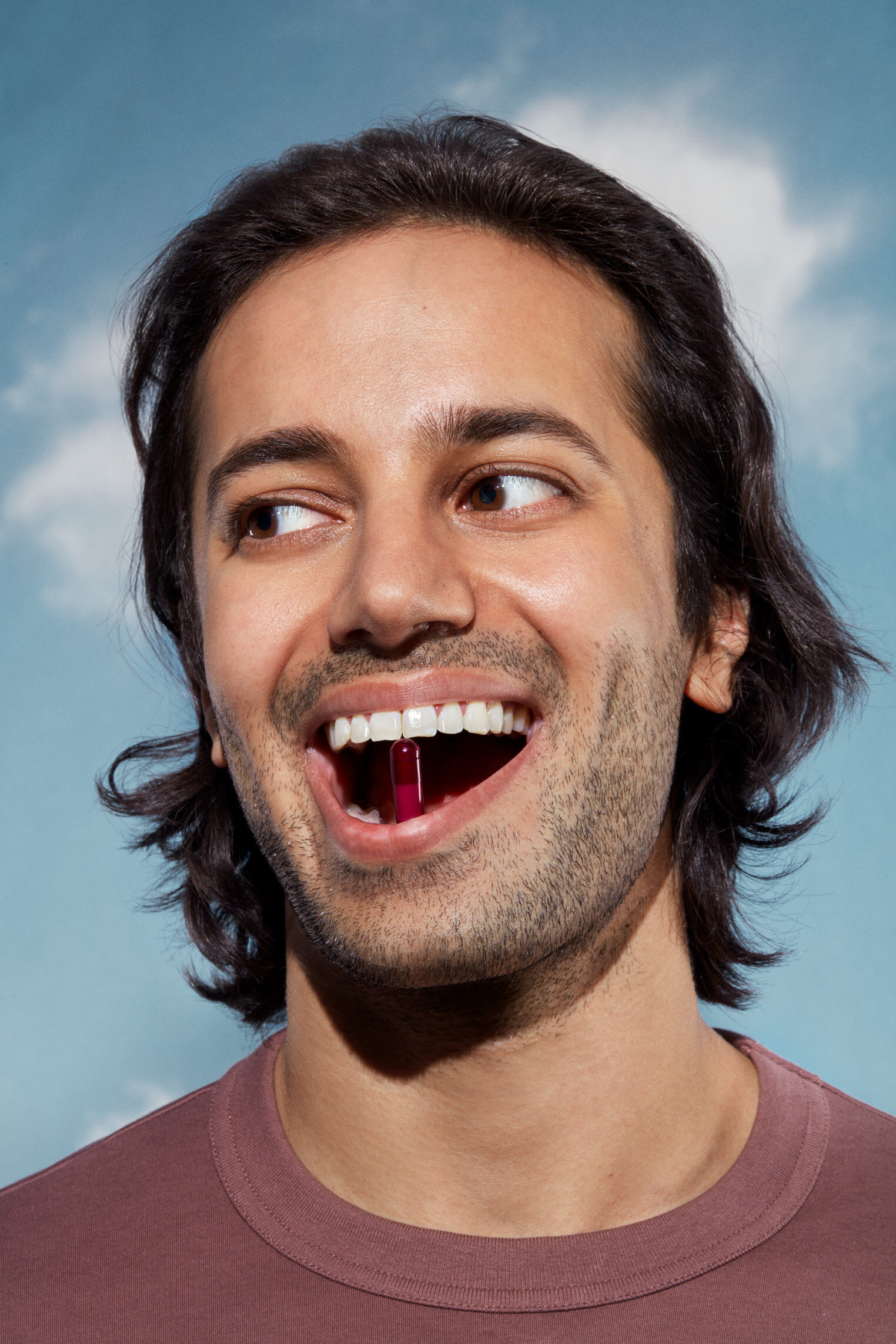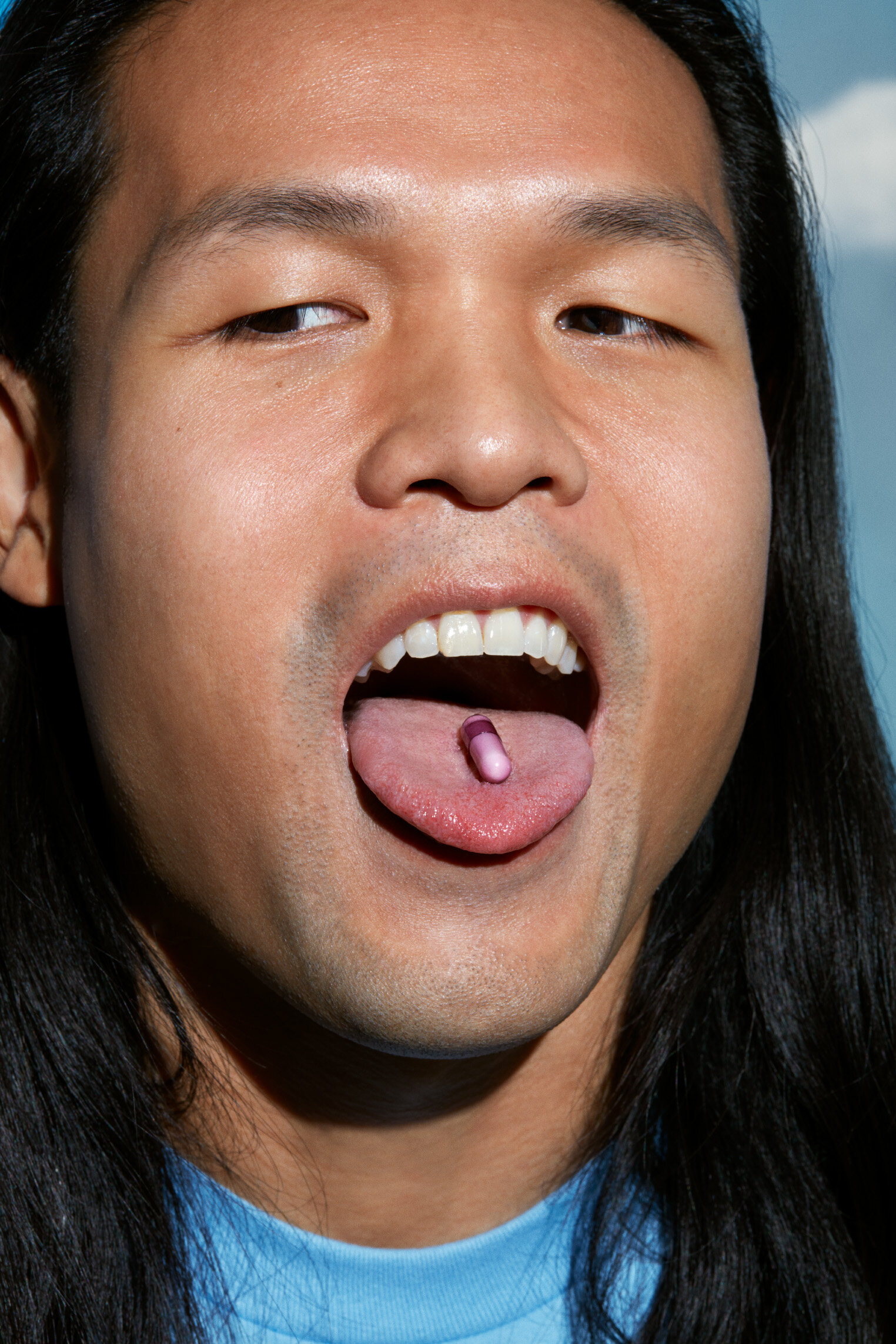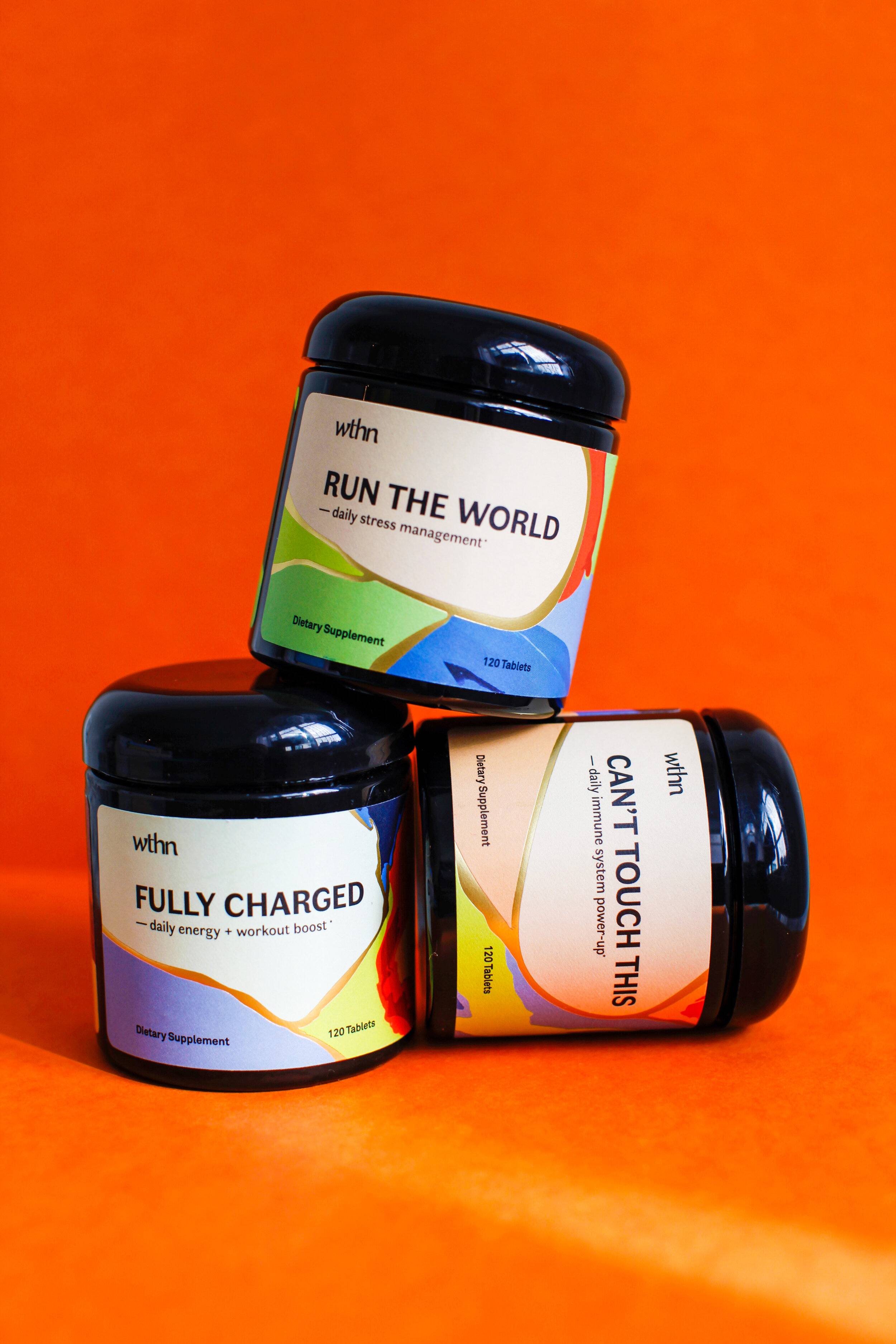HALDI, JULIA HUANG: The Skincare Concierge
As of 2020, the US is the world’s most lucrative skincare market with a revenue of approximately $17.6 billion USD. However, when it comes to purchasing skin care products, 65% of female consumers find the number of options available to be overwhelming. While some customers enjoy entering a Sephora store to browse products, there is a large cohort of consumers who cringe at the idea, but still, need skincare products. That’s where Haldi comes in. Haldi is a personalized skincare recommendation service.
As of 2020, the US is the world’s most lucrative skincare market with a revenue of approximately $17.6 billion USD. However, when it comes to purchasing skin care products, 65% of female consumers find the number of options available to be overwhelming. While some customers enjoy entering a Sephora store to browse products, there is a large cohort of consumers who cringe at the idea, but still, need skincare products. That’s where Haldi comes in. Haldi is a personalized skincare recommendation service.
Co-Founders Julia Huang and Simran Kalra met back when they were both working at Google. The idea for Haldi stemmed from Simran’s passion for skincare and ingredients. We were able to catch up with Julia in San Francisco to talk about her founder journey.
“My co-founder was super passionate about this space. Simran had previously worked at Amex, then Google, and then Youtube in Marketing. When she left Google in 2018 and was thinking about what to do next, a conversation with friends caused her to look at the shift happening in the skincare industry. There are so many great brands coming out in the post-Glossier world with a shift of consumers wanting to understand ingredients more and how to put a skincare routine together” says Julia.
Do you know that friend that everyone goes to for product advice? Yeah, that was Simran in this situation. Originally Simran tested the market by creating a quiz that was shared with over 300 friends. “Folks would fill it out and Simran would create a personalized routine for them.”
“We did a lot of deep listening during the early days in which we heard how overwhelming it was to go into places like Sephora, and Ulta and shop online to figure out what products are right for you. But there was also a component that no one else was tackling in which consumers had existing products that they liked and wanted to keep in their routine. We wanted to build an experience that was not only about helping you find the right products but to work off what you already have and fill in the gaps around your existing products to create a full routine.”
“We look out for the next generation of brands that are doing amazing things in skincare and try to keep our operations lean.”
Founded in 2018, Haldi (which means turmeric in Hindi) launched in 2020 March as soon as the pandemic hit. “We use a lot of data science to minimize inventory.” Haldi operates as a wholesaler on the backend in which they order products from brands, hold inventory and resell them on their website. They test every single product they recommend and only source hero products from brands for a curated collection.
Surprisingly, the pandemic helped Haldi with customer adoption since people spent more time at home and were willing to experiment and indulge in self-care.
“Our first hire was a data scientist. We knew that was what made our company special, the ability to create highly personalized experiences and recommendations. In the past 3 years, we have attempted to collect and categorize data on every single skincare product out there, catalog the information and figure out how to leverage it.”
The Marketing
“We spent a lot of time in the early days building off our core roots and assumptions which was that friends share their beauty routines with friends,” Julia mentions how powerful word of mouth marketing has been for Haldi that they would refer one friend at a company and the next thing they knew the entire Peleton marketing team would be on Haldi. Never underestimate the power of a good share!
“Since we don’t have a branded product, the power of telling friends became very important for us. We are a service and for us, storytelling was a major component of our offering.”
For launch, Haldi engaged in building out a referral program to make it easy for users to share the platform with friends. They even allowed tracking in which friends could see products that overlapped in purchases to foster community building. “We also did a lot of influencer seeding. We would invite folks to take a quiz and tell their communities about Haldi.”
A bulk of Haldi’s traffic came from influencer seeding and word of mouth/referral marketing. They didn’t engage in paid advertising until two years post-launch. Talk about keeping things lean and scrappy!
The Challenges
Ah yes, the challenges. Every startup has a never-ending list of obstacles. For Haldi, their highlighted issues revolved around the website build-out. “We had outsourced building the website to a firm in India. The hours were the complete opposite of the West Coast and it took a lot of effort to be able to build the platform. When we got to a stage where we wanted to add a new feature and hire engineers, we were told by our engineers that the code was crap and they could not build on top of it. We had to start from scratch and redo everything and rebuild the exact same platform we had but in a much more scalable way. It was so painful.”
“I always knew I wanted to be an entrepreneur, but I didn’t quite know how to go about it. I just kept on digging whenever the opportunity arose.”
Born in China, Julia grew up in Montreal and then eventually moved to Philadelphia. She came from a family of Scientists and knew early on that she was interested in entrepreneurship. “I had a business in 4th grade where we sold pillows for stuffed animals at school. It was the most popular stand at the school fair.”
Julia’s love for curiosity and entrepreneurship eventually led her to a nerdy summer camp where she would meet founders and hear them speak about their entrepreneurial journey. This curiosity followed her to Wharton where she ended up working with Warby Parker back when Neil Blumenthal and Jeff Raider were MBA students.
“I got to see first-hand how everything came together from the ground up. From coming up with the early prototype of the glasses, doing market research, conducting focus groups in my sorority, and the naming process. My mind was blown by seeing this brand come to life and I knew at that moment that I would want to do something within the consumer space, but wasn’t ready to jump right in after undergrad.”
Julia felt that she needed to get a “real job” and ended up working at McKinsey in SF followed by Google where alas, she met her co-founder and the rest is history.
The Advice
“I just had a baby 6 months ago, which has been a wild ride for me. It forces you to be creative around your time and manage your priorities.” Julia shares her advice with us for those looking to launch a consumer-facing platform:
Find a friend or a fractional CTO that is on your side to help guide the technical portion of your business. It is an investment worth making!
You can build so much in a scrappy way. Be really scrappy about your beginnings. It will allow you to build muscles that you will leverage later on if you can build discipline in the early days.
Check every credit card statement every month and look at which line items you should focus on or cancel. Take this opportunity to switch over to a lower plan. This financial discipline does scale later on!
Your team is everything! Hire slowly and invest the time to understand what you need. Spend time on the role definitions, the skillsets, and the cultural elements this individual would bring.
Delegate and be thoughtful about what role you are looking to fill. You can't be the owner of every function in order to scale.
If you’re over Sephora and want to optimize your skincare routine, visit Haldi here for a personalized recommendation.
Photo courtesy of Haldi.
Written by Alysha Malik.
CANDID, NICK GREENFIELD: The Perfect Smile
~65-75% of the global population suffer from malocclusion, or misaligned teeth, yet, each year only 15 million people seek orthodontic treatment12. For the vast majority of people, even in high-income countries like the US, most orthodontic treatment options are price prohibitive. Candid addresses this problem, reducing the price of orthodontic treatment with plastic aligners and a tech-forward platform.
~65-75% of the global population suffer from malocclusion or misaligned teeth, yet, each year only 15 million people seek orthodontic treatment. For the vast majority of people, even in high-income countries like the US, most orthodontic treatment options are price prohibitive. Candid addresses this problem, reducing the price of orthodontic treatment with plastic aligners and a tech-forward platform.
We had the pleasure of speaking with Candid Co-Founder Nick Greenfield on his launch into entrepreneurship, and ultimately, what led him to found Candid.
Nick Greenfield did not expect to become an entrepreneur. Raised in the DC area amidst the nation's political scene, he expected to go into diplomacy or politics. While pursuing his undergraduate degree at Stanford, the Financial Crisis struck. Nick witnessed as seemingly overnight the student body shifted from pursuing consulting and banking careers to tech and entrepreneurship - and Stanford transformed into the engineering powerhouse that it is today. He pursued a couple of internships at startups before beginning his first full-time role in 2011 at a startup called Zimride, which would go on to become the mega-ride sharing app - Lyft.
“This was foundationally the most important moment that helped inspire me to want to start a company”.
At Zimride, Nick, “experienced what it was [to build] a business from scratch”. As one of the first four employees, he helped to launch the app in 8 new markets. Outside of work he saw the technology ecosystem begin to build around him. At the time, he lived with some of the founding members of Snapchat, and often would have Snapchat company parties at this house. Inspired, he knew that he wanted to start a company. In college, Nick had explored starting two companies - a peanut butter company and a taco truck in Spain that sold baseball caps. By the time he started Candid, he had grown his list of ideas to nearly 50.
The Aha Moment
While he was full of ideas, he was hesitant to invest all of his discretionary income into just one - which one would he choose? The tipping point was when a friend came to him with an idea that would eventually become Candid. Nick’s ‘aha’ moment came in early 2017 when he discovered that the product (printed plastic teeth aligners) cost only a couple hundred to make, yet retailed to customers at $6000. Nick comments, I thought,” there's got to be a better way to do this. It was the real ‘aha’ moment for me.” Nick began to dig into the space to understand the costs, the treatment modality, and why it was so expensive.
“In terms of - this is the business we are supposed to be in - we've had a number of kind of breakthroughs...It took us a couple of years to figure out our voice and why we actually mattered in the world.”
Candid officially launched in 2017 as an orthodontist-directed alignment treatment for a malocclusion. The company was founded on the principles of accessibility, affordability, and driving low-cost patient outcomes, underpinned by software and technology. Since its launch, Candid’s core business and target customer group have expanded, as the business’s purpose and core differentiators have narrowed and become more clear.
Candid initially set out targeting brandy-savvy millennials, or the generation born between 1981 and 1996. After some time in the market, Candid shifted focus to a slightly older demographic after realizing that the $1,000 price point was an easier investment to make for those more established in their careers (i.e. older). The company has also expanded to target teenagers, specifically the parents of teens, who are looking for more affordable orthodontic solutions.
“We can tell the story about how great we are, but [a customer saying this] is the next level.”
Business growth and go-to-market strategy have been a learning experience as well. Over time, the team came to realize that the most powerful tool for expansion was the users of the platform themselves. As Nick puts it, “we can tell the story about how great we are, but [a customer saying this] is the next level”. Today, Candid has embedded these learnings and focuses on building the space to enable patients to create content and share their opinions. In addition, they have expanded their distribution channels beyond direct-to-consumer, to orthodontic/dental offices.
Today, Candid differentiates itself via patient care administration and the technology ecosystem that supports this. The company has been thoughtful about the end-to-end patient experience: from onboarding through payments. While a large part of their customer value proposition has been the ability to receive orthodontic services directly from home - patients can complete their initial appointment at home or in one of Candid’s offices - whatever is more convenient and comfortable to them.
On the provider side, Candid offers a robust platform for orthodontists to see and manage their patients. They have built their own internal patient management system (called “tooth tools”), as well as a doctor-patient communication platform. For payments, realizing the complexity and burden of managing payments in the current healthcare system, Candid set up their own virtual Dental Service Organizations (DSOs) across states. DSOs contract with dental offices to administer non-clinical operations and provide business support4. Orthodontists on the platform benefit from the ability to see more patients without the overhead of maintaining their own practice.
“Getting it wrong, so you can get it right is critical. You will consistently fail until you figure it out.”
Any new business is not without its challenges. Candid entered healthcare, a highly regulated and convoluted industry in the US. They were not simply selling a product or “widget”, as Nick puts it, that invoked immediate satisfaction; a deeper understanding of industry dynamics, as well as the patient experience, was required in order to develop a novel product that added value to people’s lives. Though Nick states that there are constant challenges, which serve as learning opportunities to continue to grow and refine the business, he mentions that two key challenges were disentangling this complex system and gaining a deeper understanding of the patient experience. The average duration of Candid treatment is 9 months, so waiting for a complete patient cycle to complete and get feedback on took time.
The Advice
For aspiring (and current) entrepreneurs, Nick recommends the following tips for scaling:
Always perform reference checks, particularly for senior roles. As Nick mentions, “an interview is a snippet in time, there is only so much you can determine,”. You can, “learn a lot from references beyond the interview process.”
Be incredibly aggressive with your network, and ask people for help, but methodical and pointed in your asks. This is key to being able to scale your business.
For reads, Nick recommends The Hard Thing About Hard Things and subscribing to the newsletter Category Pirates, dedicated to helping entrepreneurs better understand how to dominate a space, and make it their own to scale to success.
Since our interview with Nick, Candid launched whitening as a stand-alone treatment in partnership with Phillips in November. Previously, only found in a dentist’s office - the launch marks the first time that Phillips (the #1 requested whitening solution) is offering an at-home option for consumers. Interested in being more confident in that smile (and for the right price)? Checkout Candid.
Photo courtesy of Candid.
Written by Simmone Seymour.
HEIGHTS, DAN MURRAY-SERTER: Supplements for Brain Care
Our brain impacts how we think, feel, and ultimately, how we show up every single day. Research shows that proper nutrition can significantly impact your memory, ability to concentrate, and can even reduce the chances of developing mood disorders or having a stroke! Yet, 99% of people do not get the proper nutrition they need to nourish their brains and perform at their full potential. Heights, launched with the vision of helping people to reach their full potential through “Brain care” - the actions and behaviors that contribute to a healthy brain.
Our brain impacts how we think, feel, and ultimately, how we show up every single day. Research shows that proper nutrition can significantly impact your memory, ability to concentrate, and can even reduce the chances of developing mood disorders or having a stroke! Yet, 99% of people do not get the proper nutrition they need to nourish their brains and perform at their full potential. Heights, launched with the vision of helping people to reach their full potential through “Brain care” - the actions and behaviors that contribute to a healthy brain.
The startup community is small, very small. Through a slack channel, and raving reviews, we were able to get connected to Dan Murray-Serter, the co-founder of Heights to chat about all things cognitive. This playdate took place via Zoom, while Dan worked from his shed in his garden in the UK.
“We want to create a brand that is about an uplifting attitude - all we do and communicate is about reaching your heights from whatever station in life you are at right now.”
Co-founder Dan Murray-Serter above.
Heights co-founder Dan Murray-Serter seems to have been born into entrepreneurship, though he is hesitant to admit it - “my dad was a businessman..different than an entrepreneur. He would find that term incredibly irritating”. Dan’s father manufactured clothing for different brands, leading Dan to spend time working in his factories as a teenager. His more formal entrepreneurial career was launched at 13, when he competed in the UK’s Young Enterprise competition with his business creating children’s parties, channeling his love of live events - something that would stick with him as he launched the community-oriented brand - the Heights.
In his early 20’s, Dan worked in advertising and, as an enterprising individual, ended up running his own agency. He would go on to launch five other businesses - two of which are active today. Dan comments that he had “quite a lot of failures,” but was able to learn, “quite a lot of hard lessons” that he carried with him along the way. Yet, he never imagined that he would enter the nutrition or supplement space:
“I never thought I would do anything like [Heights]. I was never interested in supplements particularly, but was always interested in mental health.”
The Aha Moment
Heights was launched after Dan experienced a bad bout of insomnia that persisted despite his experimentation with many remedies. As Dan describes, “ [my insomnia] carried on and I [began to have] really bad panic attacks and anxiety. I tried medications.. therapy, sleep therapy, alcohol, no alcohol, weed, meditation...then I went to a dietician and she prescribed me supplements. I slept like a baby within 6 days.” This illuminated to him that many people were trying to cure conditions with psychological interventions, where a physiological intervention might be a better fit.
Dan was intrigued but did not know the exact solution he wanted to launch. He and co-founder, Joel Freeman, played around with more than 50 ideas before coming to Heights. As serial founders, they leveraged their networks to learn more about the industry and validate their ideas, before landing on a supplement to promote brain health - Heights was born.
The name, Heights, mirrors the vision and mission of the company: to create an uplifting environment to educate consumers on how best to take care of their brains and enable them to reach the height of their abilities.
“If someone told me to take supplements I would not believe them. So I was like how does a skeptic access this type of information - well through science! So I started a newsletter on what science says you can do to take care of your brain.”
Heights launched its first product, the ‘smart supplement’ in January 2020. The daily supplement is packed with brain-enriching ingredients like Vitamin D, amino acids, and complete B-complex. The intention of the product is to promote brain health via benefits such as achieving sharper focus, improving sleep, and elevating mood and overall well-being. It is available via subscription on their website for between $40-$53/month, and ships to countries around the world.
Entering the supplement industry riddled with unvalidated claims and skepticism, Heights has stood out via their focus on establishing trust within their community by ensuring the effectiveness and usability of their product. For the initial product, ingredients were sourced from around the world to ensure that they complied with B-corp regulations and leveraged the highest quality nutrients. Blood trials were conducted on consumers who took the developed supplement to ensure that the ingredients were having the intended impact. In addition, they applied human-centered design principles to the development of the product and its consumption. After conducting research, they identified that people often do not take supplements regularly because they are made to be stored in cabinets and are often forgotten about. To counteract this they designed translucent and aesthetically pleasing packaging to encourage consumers to store the supplement outside of the confines of dark cabinets. Talk about being creative!
Taking a page from their playbook as tech founders, co-founders Dan and Joel Freeman, chose to focus on retention and community building as core KPIs to grow their business. Prior to launching their first product in 2020, they first set out to build a community centered around “brain care”. Dan, noticing the high amount of skepticism when it came to leveraging nutrition to improve mental health (and somewhat of a skeptic himself) started reading research papers on the topic. He encapsulated his findings in a fun, digestible newsletter that he launched in 2018. The newsletter served to gain an initial following, to validate the products that they were considering for development, and serves as a focal point of their “brain care” community today.
It has since grown to a 75K reader following. Heights has further built out its marketing channels by launching an in-house podcast. The podcast consists of short and easily digestible nuggets of information about brain care and brain health. Participants are encouraged to take a questionnaire that then feeds them content based on their tailored needs and interests. This personalized approach to email marketing and content creation allows Heights to build a strong following and create value in a crowded market.
“It is really easy to make a supplement company, but it is very hard to make high-quality ones because you need a lot of money to do it and there are not many people that you can work with in the world”.
The Challenges
While Dan and Joel, make the path to launch and build a nutrition-focused startup easy, the road has not been without its hurdles. The product development process is long and complex. It took them ~2 years before they were ready with their first product, which required identifying ingredients that were effective and also ensuring they were safe for consumption and compliant with regulations. Generally a very expensive process, the pair raised a pre-seed round of almost $1M to make this possible and brought on industry experts to ensure that they were truly science-backed. The Heights’ product is continually upgraded to ensure that it contains the highest quality and most effective ingredients - regularly changing the formulation every three months. Co-founders Joel and Dan believe this arduous process to be completely necessary to win over consumer’s trust, particularly in the supplement industry, where mistrust and unfound claims run rampant.
The Advice
“We are serial founders, so we started the company with values before we had a company.” We asked Dan for his advice when launching a D2C supplement company. Given the saturation of the market, Dan recommends the following:
Identify what values are going to be important to your business. When you do this the right way, it is time-saving. It makes it easier to make everyday decisions and ensures that the right decisions are being made throughout the organization when you are not around.
Use a lead magnet process to grow your following, specifically for newsletters. Facebook and Instagram are great channels for this.
Two must-read books: Beyond Entrepreneurship and Good to Great by Jim Collins and The Source, by Dr. Tara Swart.
Interested in improving your cognitive function and diving deep into the science of brain health? Visit Heights here and mention code: “Radiche” for a 10% discount.
Photo courtesy of Heights.
Written by Simmone Seymour.
Simmone is a member of BLK VC, an organization that aims to increase the number of Black Venture Capitalists. A retail and consumer goods enthusiast, she works in Strategy at Nordstrom and writes about the topic for StartU, Radiche, and on her Medium page. You can follow her on Twitter @SeymourSimmone.
WELLSET, TEGAN BUKOWSKI: Wellness Practitioner Platform
Alternative medicine was valued at 82 billion USD last year and is expected to grow at a compound annual growth rate of 22%. After suffering from a chronic inflammatory disease, Tegan Bukowski realized the remedy to her condition wasn’t based on the medical system, but on holistic health. Determined to change how the world accesses preventative healthcare, Tegan and her co-founder Sky Meltzer created WellSet, a platform that just got backed by BlueCross BlueShield dedicated to helping everyone find a practitioner for their health and wellness needs.
Alternative medicine was valued at 82 billion USD last year and is expected to grow at a compound annual growth rate of 22%. After suffering from a chronic inflammatory disease, Tegan Bukowski realized the remedy to her condition wasn’t based on the medical system, but on holistic health. Determined to change how the world accesses preventative healthcare, Tegan and her co-founder Sky Meltzer created WellSet, a platform that just got backed by BlueCross BlueShield dedicated to helping everyone find a practitioner for their health and wellness needs.
Growing up on a boat in Puget Sound, Washington, Tegan Bukowski had an unconventional upbringing. After her physicist father taught her how to code in elementary school, Tegan knew she found a passion for building websites and creating things at a very early age. Her first entrepreneurial moment was around the time when MySpace and Facebook were peaking in popularity -- Tegan created a tutorial website for Neopets that became so popular, people started to recognize her on the street!
“I always loved thinking outside of the box. From the time when I was a little kid, I just always liked solving problems, and that is the way my brain works. I also like to create systems that can scale, which is why tech really interests me. It is not just solving a problem for a small group of people, but solving a problem for the whole world which is really exciting,” Tegan said.
During college at Wash U. in St.Louis, Tegan explored more of her passion for philanthropy and creativity while studying architecture and environmental philosophy. She started a nonprofit while in college that operated in 9 different countries, which focused on art therapy in combination with other types of things like English classes for kids affected by guerrilla warfare in Colombia, photojournalism classes for those in the slums in Kenya, etc. Tegan also started NASA’s first astronaut blog with a few astronauts, while they were at the space station.
“I was definitely not shy growing up. I’m a jack of all trades type of person --- I like to do a lot of different things,” said Tegan.
THE AHA MOMENT
After graduating from Wash U., Tegan went to Yale for a master’s in architecture and ended up working for Zaha Hadid in London, her former professor from Yale. Working for a top architect was exhausting, but what was even more exhausting is that she was hospitalized over and over again for a chronic inflammatory condition that seemed to have no "cure". Doctors would put her on morphine and give her steroids and then send her on her way with no real solutions or guidance. Tegan's frustrations from not experiencing a more holistic approach from her docs became a lightbulb moment for her to find a better solution for all.
“I had to go down my own path to figure out what was going on with my health. Our medical system isn’t set up for people who have chronic conditions that aren’t easily solvable with a pill or surgery. So I was determined to figure out a path of preventative healing and figure out how to address all of these issues.” Tegan said.
Co-founder Tegan Bukos on mic.
After a culmination of events in her life, Tegan wanted to start a platform that allowed greater accessibility to holistic and preventative health. She partnered with co-founder Sky Meltzer in 2018 to build the platform and officially launched at the end of last summer in 2020.
“As a society, we have made some leaps and bounds to today, where everything I consider to be preventative medicine is a lot more accessible and understood by the general public. But, it has taken a long time for a company like WellSet to be supported by the general population in interest, education, understanding, and also western medicine’s acceptance of it. I think we are just getting to the point now where it is a little more mainstream,” Tegan said.
“It takes a lot to launch a double-sided marketplace because you have to onboard your supply and keep them happy for the years that it takes to build a platform. Then, you have to launch the client-side. It takes absolutely forever but we have been really good at getting supply on board. We’ve had about 20,000 practitioners apply to be on WellSet,” said Tegan.
WellSet created value from the very beginning. The platform started running programs like virtual group classes during COVID. A lot of those events or group classes were also in partnership with brands, and some were even formatted into different kinds of mini online festivals. WellSet also took care of the practitioners -- running a 10-week business accelerator for practitioners to help them run their business better.
“The big AHA moment for WellSet as a company was that we originally built it to be a marketplace, but we realized that the practitioners were actually the ones who really needed us. Because they don’t have the tools to run their business right now -- they are using so many different platforms like Venmo, Calendly, cash, etc., and it is a mess that has a trickle-down effect because the practitioners' businesses aren’t getting served and the clients aren’t converting because of the disorganization. So we actually call ourselves a SaaS-enabled marketplace, which is a software as a service business plus marketplace, meaning that we power their entire businesses from beginning to end. We call it a “business-in-a-box” solution.,” said Tegan.
Also, vetting practitioners was an important part of the business strategy as well. Currently, WellSet is focused on specific practitioner types that are approved by flex spending accounts like FSAs, HSAs and HRAs. As part of WellSet’s mission to help make preventative health more accessible, the company is also trying to get insurance programs and corporate wellness programs to cover more modalities. Some are covered like acupuncture and sometimes massage therapy, but for the most part, it is all out of pocket. WellSet just received investment from 1501 Health - an accelerator created by CareFirst BlueCross BlueShield, Healthworx, and Lifebridge Health to work to solve this problem.
“There is a huge issue for access because not everyone can afford a $250 session with a practitioner, but they might need that. We are working to get more practitioner types to be covered by insurance and we are having a lot of great conversations right now with different insurance partners. WellSet Select is a verification feature where practitioners can opt into and go through a background check and submit references to be verified. About half of our practitioners have gone through this verification process. From a business perspective it is great for us because they are committed to using WellSet and keeping all of their credentials up to date for our clients,” said Tegan.
THE ADVICE
Tegan’s frustration with the healthcare system, combined with her inspiration to help others, sprinkled with her coding background, allowed her to create WellSet to be what it is today. Along the way, she learned many lessons related to different facets of being an entrepreneur:
Biggest Advice: “Make sure you love what you’re working on because you’re going to be working on it for a long time. Everyone thinks you can start a company and sell it right away, but that is not how it works. There is never an overnight success in the tech industry.”
On Self-Care: “I do yoga to stay sane. I also like journaling and I keep my calendar mapped out with what I need to do. I only take meetings 2 days a week and whenever I feel sluggish or in a really bad mood, I exercise to help me with my moods and productivity.”
On Fundraising: “Try to constantly figure out how to serve both sides of the market better, and how to make everything more accessible from a price standpoint. Investors really appreciate the community and strong brands that are created with very little capital.”
On Hiring: “Our first hires were community managers. I very much believe that any good company starts with a community, a movement.”
On Customers: “Ask a lot of people questions and see what they are interested in actually paying for. It doesn’t matter if they say they might pay for something - you have to get them to prove that they actually will.
Interested in finding a holistic health practitioner, or are you a holistic health practitioner interested in working with WellSet? Check out WellSet to learn more.
Photo courtesy of WellSet.
Written by Christina Chao.
BUSY WIPES, JAMIE STEENBAKKERS: Zero Waste Wipes
Personal care on the go usually hinges on one product – wipes. Cleansing, freshening up, a quick swipe can take you from sweaty to ready in a few seconds. Unfortunately, wipes aren’t the most eco-friendly part of our daily routine. About 90% of all wipes on the market are made entirely of non-recyclable plastic, and many contain harmful ingredients that are just as bad for you as they are for the planet. What to do? Turn to Busy Co., a personal care company focused on sustainable and healthy solutions for (unsurprisingly) busy people!
Personal care on the go usually hinges on one product – wipes. Cleansing, freshening up, a quick swipe can take you from sweaty to ready in a few seconds. Unfortunately, wipes aren’t the most eco-friendly part of our daily routine. About 90% of all wipes on the market are made entirely of non-recyclable plastic, and many contain harmful ingredients that are just as bad for you as they are for the planet. What to do? Turn to Busy Co., a personal care company focused on sustainable and healthy solutions for (unsurprisingly) busy people!
We talked to Busy’s Co-Founder and COO Jamie Steenbakkers about how she bootstrapped the company out of college and why transforming personal care is her chosen path.
“Just about everyone in my family is an entrepreneur.” – Jamie Steenbakkers
Jamie is a characteristically friendly Canadian, who grew up surrounded by business owners, including her grandparents, mom, and dad. Her father is in property development and owns a racetrack, where Jamie spent her formative years.
“I was the youngest woman in Ontario to be a racecar instructor and driver. At 16 years old I was an AC certified instructor, teaching 50-year-old men how to drive their Porsches properly. I think that's where I got a lot of my spirit - the experience at the racetrack.”
For college, Jamie was ready to venture to America to be in the heart of business and innovation. During undergrad at Babson, she took a foundation in entrepreneurship course where she met her co-founder, Michael, and started the company that would become Busy. They invented and produced a small run of a dry shave gel that made it easy for women to shave on the go (based on Jamie’s own needs), and their project took off!
“We developed a whole line of products around why all these women were buying the shave gel,” Jamie said. “It was because they were busy, they were running around and they were trying to balance a job and kids and school and sports and all these different things. So, we built a line around that woman. We had a dry shampoo, a dry conditioner, body wipes, and the dry shave gel.”
COO and Co-founder, Jamie Steenbakkers.
The Aha Moment
“We realized that our body wipes were our bestseller tenfold. Who cares about the shave gel? These body wipes are selling like hotcakes. We decided to double down on wipes.” – Jamie Steenbakkers
At the time named Busy Beauty, the company shifted its focus to the bestselling wipes and expanded into wipes for the face and body with various scents. Jamie and Michael pooled their own money and won several competitions to keep the business going. As their senior year approached they decided to turn the passion project into their post-grad job in 2018.
“We needed enough money to be able to support ourselves with salary, and get an office and be a real company, essentially, once we graduated,” Jamie said. “We raised $500,000 the summer that we graduated from local entrepreneurs. The first snowball we got was John Replogle - the CEO of Burt's Bees and Seventh Generation. He was just a huge inspiration for us and introduced us to a lot of the other investors in that round.”
Today Busy Co., which officially launched in 2020, is a line of zero-waste wipes giving women the freedom to freshen up in five minutes with face, hand, sanitizing, deodorant, feminine, and (best-seller) body wipes. Busy goes above and beyond recyclable, using upcycled cotton fabric for most of their wipes.
“Not only are our wipes biodegradable, but we're also not actually creating anything. We're just taking waste and we're repurposing it, Jamie said. “And the biggest thing about our wipes is that they're unbleached, so they are a lot healthier. As an entrepreneur, I want to feel good about what I'm doing. I don't want to just sell you fast products that get you ready fast.”
Marketing Highlights
After years of incubating Busy, Jamie has a strong grasp on her customer base - who she considers solution seekers and beauty enthusiasts. For the beauty enthusiasts, Busy offers much more than a quick refresh. They’re a wipe and serum in one, formulated with hyaluronic acid, vitamin C, retinol, and squalene oil.
Busy has grown through strong retail distribution and standout partnerships, including Smile Makers to hit the sexual wellness trend and a hard-to-get airline partnership with JetBlue.
“We find that doing as many partnerships as we can do is really fruitful. With JetBlue, things like that, you're not making a ton of money off these deals by sending a hundred thousand wipes, but it's amazing exposure. We have people to chat to us all the time, like, ‘Oh my gosh, I saw your wipes on JetBlue. How did you do that?’,'' Jamie said.
Jamie has transformed her business multiple times since its inception and is ready to propel Busy to heights that set a new standard for self-care.
“One of the most challenging things we did was going from shave gel to a suite of products and then going from a suite of products to just wipes. So much thought goes into each of those transitions.” Jamie said. “Now we're going into our Series A, which is really exciting.”
The Advice
Jamie turned her college course idea into a full-fledged beauty company. We’re listening! Her advice for launching your own company is below:
You have to start somewhere. Don’t spend too much time perfecting your first product - launch with an MVP and follow the clues to take you where you’re meant to go.
On that note, be flexible! Be able to pivot and move your business plan in whatever direction you get pulled in.
For those in the beauty space, join the Cosmetic Executive Women's organization for professional development.
Ready for good for you, good for the planet, and time saving self-care? Check out Busy wipes.
Photo courtesy of Busy.
Written by Kendall Embs.
FORMULA, DANIEL & ADAM: Nootropics Just For You
Did you know you could take a magic pill to enhance your cognition? If you’ve heard of nootropics, these supplements are well known to enhance your cognitive performance in attention, motivation, creativity -- and are predicted to be a $4.94 billion industry by 2025. Daniel Freed and Adam Greenfeld saw an opportunity to turn this into a business by creating a personalized nootropics brand, Formula. The duo wanted to introduce nootropics into the market with a focus on personalized formulas catered to unique individual needs.
Did you know you could take a magic pill to enhance your cognition? If you’ve heard of nootropics, these supplements are well known to enhance your cognitive performance in attention, motivation, creativity -- and are predicted to be a $4.94 billion industry by 2025. Daniel Freed and Adam Greenfeld saw an opportunity to turn this into a business by creating a personalized nootropics brand, Formula. The duo wanted to introduce nootropics into the market with a focus on personalized formulas catered to unique individual needs.
Adam and Dan both grew up with very different entrepreneurial experiences. Adam sold everything from gum to basketball cards starting at a very young age, while Dan had a very nontraditional experience working in fast food to then being an executive sous chef, and then landing two master’s degrees without ever graduating from high school or college. Now co-founders, Adam and Dan also met in a pretty unusual and unique way in the tech community. There were murmurings about a nootropics founder, and Adam was determined to find out who this was. When Adam did some investigating and found out about Dan and his passion for nootropics, he cold emailed him to express interest in helping him build his vision....and a successful business partnership was born.
“Nootropics had a profound impact on me. It changed the way my brain functioned. I was able to get an MBA and another master’s degree after taking nootropics.” - Daniel Freed
Co-founders, Adam on left and Daniel on the right.
The Aha Moment
Dan always had difficulty in school paying attention, which he attributes to his brain chemistry. Because of this, he failed all of his classes, ultimately leading him to drop out of high school at age 16. Fast forward past his time working in fast food and becoming an international sous chef, Dan felt he needed to do something more with his life, and so he decided to pivot into the startup world. However, without proper education, people didn’t take him seriously so he decided to go back to school for his MBA. Luckily, an international school was interested in him, but this meant he had to prepare for the standardized test. “I couldn’t sit still and finish the practice test. I almost gave up in desperation and I tried anything like different workout routines, fasting, different types of dieting, meditation...and that’s when I decided to try nootropics. When I was working long hours as a chef, there were a lot of biohacking things I tried to do to maximize my energy level, but this was a turning point... when I did a deep dive into nootropics.”
After graduating with masters from both INSEAD and Yale, Dan attributes his success not only to his grit, determination, and experience but also nootropics. While living in New York, Dan jumped right into working for startups but didn’t know he was in the midst of starting a nootropics business. “I loved nootropics and I would give them to people at parties, even though I got mixed reviews. So what I came up with was a variety pack of nootropics. I also set up a mini-trial where people would take nootropics every day and rate how they felt with an app. At the end of the month, I would look at all the data and tell them which ingredients worked for them and what didn’t, and then I would combine the ones that did into a box they could purchase. It was never meant to be a business in the beginning. ”
The Marketing
“When we first spent time acquiring customers, we had no money. We knew the product really worked and created these experiences and results that were braggable. Our hack through that was to specifically target YouTube influencers. We were hoping these influencers would do what we wanted them to do which was say,“I took the formula for 30 days, and here’s what I’ve learned.” This was a super scrappy approach, and anyone with any type of following who promoted our brand got a box.” From this experience, Adam and Dan learned many insights and found niche audiences that were unexpected and not intuitive to the stereotypical tech male into bio-hacking. “The other thing we really learned from a marketing standpoint -- great marketing is elite customer experience and service. The first team we built out was customer experience, and that will continue to be the center of our company and something we invest in. Of course, supplements feel great, but does someone really want to hang out with us as a brand? We are going through a brand refresh right now and we have 4 years of customer data, and we know enough about what people are confused about, and where people need to feel safe or need an explanation.” Since launching with organic marketing, Formula has more than 15,000 customers to date.
The Customer
Who you thought would be your ideal customer may surprise you. “What we learned was that macho tech guys were not our best or loyal customers, and were the most expensive. By really spreading and going really wide with influencers, we were able to find niche markets like a whole community of millennial females who were looking for alternatives to their Adderall. We also found a community of ex-military outdoor enthusiasts like hunters who were gaining weight from energy drinks when hunting, so they were looking for a new way to stay focused while out in the woods. There was a period of time where we were also doing a bunch of deals with active military YouTubers and so we would send tons of boxes to Afghanistan. What we ended up finding was that people really trust these influencers -- and a bonus was that we were able to acquire media rights to their content and turn those into highly productive Facebook and Instagram ads.”
The Advice
“It is very important that every interaction with your customers is a positive one.”
“If you’re having a really good time and having fun doing a company, it is going to work. For the founders who have been at it --- have fun building it.”
“Don’t spend any money on marketing and PR. Usually, founders think spending money here would be the magic bullet. Once you have a really compelling story that has been validated by other people, it’ll sell.”
“If there is a problem, surround yourselves with people who can help you solve those problems. The number one most important asset in our company is our advisors and mentors, which vastly speeds up the learning curve.”
Interested in bio-hacking your brain? Check out Formula here. Their 4 week supply is priced around $79 when you subscribe or $119 for a one-time purchase. Get started with a personalized quiz and find out your nootropic combo recommendations.
Photo courtesy of Formula.
Written by Christina Chao.
MISS GRASS, KATE MILLER: The Cannabis Platform
The legal cannabis industry is expected to reach $76.3 billion by 2027. And yet, most consumers are left in the dark when it comes to navigating their green stash. Society has vilified THC and glorified the effects of CBD, when in actuality it is the entourage effect of cannabinoids that results in optimal healing. On a mission to de-stigmatize cannabis consumption, CEO and co-founder, Kate Miller launched Miss Grass as a contextual platform to provide weed education, and vetted products for a higher life.
The legal cannabis industry is expected to reach $76.3 billion by 2027. And yet, most consumers are left in the dark when it comes to navigating their green stash. Society has vilified THC and glorified the effects of CBD, when in actuality it is the entourage effect of cannabinoids that results in optimal healing. On a mission to de-stigmatize cannabis consumption, CEO and co-founder, Kate Miller launched Miss Grass as a contextual platform to provide weed education, and vetted products for a higher life.
“The business model was always to be a contextual commerce platform from day one. We led with education on the content side around the history of cannabis and culture. We want to cater to the conscious consumer who votes with their dollar to support this industry.” - Kate Miller.
Miss Grass launched in 2017 as a “dope” concept, and sells a curated collection of CBD products from other brands such as bath bombs, vapes, tinctures, topicals and capsules. They recently launched their own line of pre-rolled hemp joints targeting sex, calm and balance, in addition to THC pre-rolled mini joints. The brand has been featured in leading publications such as Forbes, The New York Times, and Glossy to name a few and is known as “the Goop for cannabis”.
However, the idea for Miss Grass was planted back in 2008 when Kate was working as a budtender with a dispensary in LA and purchased the domain off GoDaddy. “I was always fascinated by the different applications of this plant and the various ways it can benefit one’s life. I was also fascinated by the business opportunity of it, which at the time felt like the prohibition era of what the alcohol industry looked like. Now I believe the alcohol industry has the potential to surpass the value of the liquor industry as its usage goes way beyond.”
CEO and co-founder, Kate Miller.
Kate was born and grew up in Jersey. Her parents met in high school and were high school sweethearts. Her mom worked in entertainment and her dad is a serial hustler. “I’ve always had a side hustle. When I was 11 years old my cousin and I would go down to Jersey Shore and make a stand on the beach and sell bracelets. I also developed a great relationship with the ice-cream man and would get faulty popsicles for free, where the packaging was tainted and resell it to friends for a dollar. I was always looking for the opportunity.”
“My brother had gotten caught with weed and kicked out of high school back in the day and I remember thinking that it was so messed up. I moved to LA for undergrad and attended USC. California had legalized medical weed at the time and it was the first time I became a conscious consumer of cannabis. I was suffering from psoriasis and would use topical cannabis. It really transformed my skin.”
“I used cannabis as a catalyst for creativity, inspiration and to connect with people.”
Kate ended up working in the entertainment industry upon graduation as she felt that it was too early to make a move into a career in cannabis. “In mid 2017, I launched Miss Grass as a silly SquareSpace site that I created as a side hustle and linked arms with vendors who were making cute cannabis accessories at the time. I structured the business model as using affiliate links for a percentage of the revenue. It generated basically no money!”
However, by getting her foot in the door as an early adopter of the cannabis industry, Kate was able to participate in conversations around cannabis and use Miss Grass as a tool. “I was able to meet Doug Scott who started a company called Ogilvy Entertainment which ended up getting sold to Ogilvy Ad agency. He was pivotal in the early days for introducing me to the right people, one of which was a guy who was running an activation at Coachella for a company called Weed Maps. They were looking for a brand that could cater to the female demographic, so I got asked to create a dome called the Miss Grass Lounge and bring in other cannabis brands that aligned with our values. I was still working my full-time job at this point, but I took the opportunity, met a lot of people including my business partner and co-founder Anna Duckworth.” Anna previously led content at Dosist.
“The Coachella event was a catalyst for me to validate and test the idea and demand of doing Miss Grass full-time.”
Miss Grass has raised a total of $4.65M to date with investors such as Listen Ventures, Casa Verde Capital, Advancit Capital, firstminute capital, and Third Kind Ventures Capital amongst others. Their initial round of financing consisted of $60K to get the idea up and running 1.5 years ago. Fun fact: Kate’s boss at the time put the first check into Miss Grass! Their business model? Develop content as a tool to scale the community, invest in a marketplace for consumer discovery and as a way to gather data points. Then, facilitate that data into future offerings under the Miss Grass product portfolio. Some would say it is fool proof and a dope way to own a high ecosystem.
“There is a massive void in the market when it comes to cannabis and education.”
Like the sexual pleasure industry, cannabis also has a lot of red tape when it comes to advertising. “It has been challenging to not have a straightforward channel for growth. We rely on organic growth strategies like partnerships, influencers and organic press.” In addition, payment processing can also very quickly turn into a nightmare, but the passing of the Hemp Farming Act of 2018 has really helped progress the operations of this category.
Education 101
When it comes to hemp and marijuana, they are both derived from the cannabis plant. Hemp has below 0.3% THC in it. Anything derived from hemp, broad spectrum, full spectrum or isolate is considered federally legal and can be sold on e-commerce sites. However, any product that is above 0.3% THC cannot be legally manufactured or touched by Miss Grass since they are a non licensed entity. The workaround? They have partnered with a legal distributor and contract manufacturer to send the products directly to retail stores for sale. Genius!
The Advice
“I would love for the narrative of this industry to shift. CBD has become the most popular ingredient over the last 2 years and has brought the cannabis industry mainstream and helped normalize the conversation, but it is still dividing the plant. CBD is viewed as the good child in wellness, while THC is bad and stigmatized. This further perpetuates the stigma of this plant. The narrative should be less about specific molecules and compounds in this plant because the most effective method is full spectrum that encompasses all of the cannabinoids and terpenes to get the entourage effect versus working in isolation. The conversation should really be about cannabis as a whole.”
Kate further gives her advice to those looking to launch a D2C startup today:
Fake it till you make it. - Act like you know what you are doing to make your company successful.
Learn when and who to delegate to as the company grows.
Surround yourself with mentors, advisors, friends and people you can go to when you don’t know everything. Knowing who to call is very important.
Prioritize your to-do list.
Interested in trying out the latest cannabis product? Head on over to Miss Grass here.
Photo courtesy of Miss Grass.
Written by Alysha Malik.
WHOLIER, LISA GONZALEZ-TURNER: The Vegan Vitamin
Plant-based diets have moved out of the fringe and into the mainstream as conscious consumers adopt the lifestyle for health, environmental, and moral reasons. The past decade has seen the introduction of dozens of new food brands in the plant-based market. In fact, grocery sales of plant-based foods that directly replace animal products have grown 29% in the past two years to $5 billion. While it’s easier than ever to be vegan, what isn’t easy is filling the nutritional gaps specific to a plant-based diet. That’s why Wholier is here, with a vitamin and community to help plant-based people live their best lives. Founder Lisa Golzales-Turner talked to us about coming up through the food world and ultimately solving a problem close to her heart (and stomach).
Plant-based diets have moved out of the fringe and into the mainstream as conscious consumers adopt the lifestyle for health, environmental, and moral reasons. The past decade has seen the introduction of dozens of new food brands in the plant-based market. In fact, grocery sales of plant-based foods that directly replace animal products have grown 29% in the past two years to $5 billion. While it’s easier than ever to be vegan, what isn’t easy is filling the nutritional gaps specific to a plant-based diet. That’s why Wholier is here, with a vitamin and community to help plant-based people live their best lives. Founder Lisa Gonzalez-Turner talked to us about coming up through the food world and ultimately solving a problem close to her heart (and stomach).
“The trend with my entire career and my life is I’ve always tried to defy what was expected of me.” - Lisa Gonzalez-Turner
Lisa, the youngest of three girls, grew up outside of Philadelphia. She likes to compare the eldest child to a CEO who’s always in control, while she credits being the youngest with her lifelong desire to break the rules.
“I was always devious from a very early age, always the one bending rules. ” Lisa said. “I always had different hobbies I was exploring. It was a combination of finding different avenues of creativity and being defiant in the classroom and in my personal life. “
With both parents as doctors, Lisa thought that medicine was her path in life and initially majored in pre-med biology at Penn. Later on, she switched to the popular Politics, Philosophy, and Economics major because of the array of more fulfilling opportunities it opened up for her career. Lisa’s first job out of college was at the iconically pink PR firm Alison Brod, a departure from many of her fellow students at Penn who ended up in typical finance jobs.
“I was excited about being a part of all of these different businesses,” Lisa said. “I think that PR and communications generally are frowned upon as being not super strategic, but Alison Brod is full of hustlers. They’re brilliant and work extremely hard. We were not publicists - we were coming up with campaigns and massive events for multinational companies.”
After 4 years with the firm Lisa took 3 months to backpack around Europe. In a month-long stint on a farm in Sweden, she adopted a plant-based diet, the personal motivation behind eventually founding Wholier.
“I became weary of the lack of transparency in the supply chain and I was afraid of not knowing where my food was coming from. People who live the longest generally eat the least meat and dairy. At the time I was vegetarian, and after my experience on the farm I cut dairy out of my diet,” Lisa said.
Upon returning, Lisa wanted to get more involved in food and ended up working for Inday, Spindrift, and Daily Harvest. While at Daily Harvest Lisa oversaw community and public relations, social media, events, and built out the company’s nutrition network. She saw the company grow from a scrappy team of 25 to 100 employees in a beautiful office in Chelsea.
The Aha Moment
“I just didn't understand why there wasn't something that was tailored to me. We segment things based on men and women, but we don't have things specifically about someone's diet. That was the initial problem and I was like, ‘what's the bigger picture here?’” - Lisa Gonzalez-Turner
Over her years of working with brands and innovative companies, Lisa had an array of business ideas ranging from packed foods to tech products. Ultimately the decision to start Wholier came from a place of personal need when Lisa learned her plant-based diet was leaving her lacking in some nutritional areas. She went to the doctor and discovered she was low in vitamins B12, D3, and iron - all common deficiencies experienced by people who are not eating meat and dairy.
“I like to caveat that by saying it’s not because I'm vegan, it's because I'm human,” Lisa said. “9 out of 10 people in the US are nutrient deficient because of something. Because I’m vegan I have different nutrients I’m missing.”
Lisa’s journey through the vitamin aisle brought her to the realization that in order to make up her deficiencies with supplements, she would have to cobble together a ridiculous amount of pills. She knew others would be facing the same problem, and began working on Wholier in 2018.
“Plant-based lifestyles are being adopted at an extremely rapid rate because we now realize the impacts it can have on your health, and obviously the environment. Why wasn’t there a vitamin that was specifically adapted to this group of people that have different needs, different values, and different desires? A multivitamin felt like a really good entry point,” Lisa said.
Launching Wholier
“I'm not from the supplement industry so I'm not jaded by the way things have been done before. I'm doing them my own way. I think that really is important. “ - Lisa Gonzalez-Turner
Lisa rolled out Wholier with a tested, iterative approach, reaching 1,000 subscription customers in the first three months. From there, she shut down marketing to focus on listening to her customers and improving the product.
“When I launched Wholier I always knew things were going to change,” Lisa said. “I thought the product was 90% there, but I wanted to get it out into the world and see. I had bootstrapped it, so it was not intended to be perfect, it was intended to be a test. I spent the first 3 or 4 months learning from our customers, sending personal emails to them, and doing surveys to understand what they really cared about. From there I took the learnings and went back to the drawing board, tweaked the formula and brand a little bit, and tweaked our packaging.”
The new and improved Wholier officially launched in August 2020. Currently, the company offers a whole food multivitamin to meet the needs of plant-based people, in a no-nausea, delayed-release capsule. Lisa and her advisory team of nutritionists and doctors combed through hundreds of clinical studies to hone in on the right dosage of 8 food-based nutrients in their most bioavailable forms. Her larger ambitions are to continue to build the company into a set of tools for plant-based people to be as healthy as they can be at any point in their process.
“What I want us to offer is a home for anybody who is on their journey to be plant-based, whether you're entering into it or you've been on it for decades. I think that historically veganism has been very rigid and forces you to live one way or you're not part of the community. I want Wholier to be a place of acceptance, meeting people where they are and helping them along the way. That means offering them products that support their nutritional needs, and down the line being a really robust content resource. We want to share the stories of other plant-based people and their journey to becoming vegan because most of the time it's a progression,” Lisa said.
The Advice
Lisa has years of experience working with startups as a consultant, in-house, and by launching her own. We asked for the most important lessons she’s learned along the way:
Trust your gut, especially when it comes to the people around you. It takes time to undo mistakes made by bringing on the wrong people to your team.
Go in with a beginner’s mindset to everything that you do. Go in believing that you know nothing and absorb information from other people.
Don’t be afraid to take the first step. Once you start getting the momentum going, everything seems more manageable.
The only thing you can do to keep yourself from failing is continuing to move! If you fail, pick yourself up and do it again. The worst thing you can do is not try.
Looking to add a vitamin to your vegan vida? Check out Wholier.
Photo courtesy of Wholier.
Written by Kendall Embs.
ARFA, ARIEL WENGROFF: Co-Developed Personal Care
So many companies in the DTC space fit the same mold - the founder goes into a store, sees something that’s missing, poorly executed, or broken, and launches a slick eCommerce brand targeting the millennial demographic with a better product. It’s like the “Subway for X” that brought us Chipotle, but with CPGs. We love it! But, there is a new company digging deeper into the “why” behind the products they bring to market. Unveiled in early 2020, Arfa is a platform and collective for the development of need-based personal care brands. We talked to Co-founder Ari Wengroff about her purposeful approach to brand and product development and the two unique brands that Arfa has brought to the market so far.
So many companies in the DTC space fit the same mold - the founder goes into a store, sees something that’s missing, poorly executed, or broken, and launches a slick eCommerce brand targeting the millennial demographic with a better product. It’s like the “Subway for X” that brought us Chipotle, but with CPGs. We love it! But, there is a new company digging deeper into the “why” behind the products they bring to market. Unveiled in early 2020, Arfa is a platform and collective for the development of need-based personal care brands. We talked to Co-founder Ariel Wengroff about her purposeful approach to brand and product development and the two unique brands that Arfa has brought to the market so far.
“I always wanted to understand human behavior better, and the way people connected and worked together. That was always a key driver for me.” - Ariel Wengroff
Ariel is a proud Chicagoan, who grew up surrounded by the influence of her mother’s psychology practice. She cites her childhood curiosity and a knack for storytelling as early indicators of her desire to know what makes humans tick.
Her first job post-college was in politics, organizing on the ground for the Democratic party in 2010. Finding too much red tape in the political world, she transitioned to media where she felt she could dive deeper into the human experience.
Co-founder of Arfa, Ariel Wengroff above.
“I’ve always been very curious about how people connect,” Ariel said. “It’s not about being stuck in a specific medium; it’s what is the best tool to allow people to know something that might not be like themselves and therefore potentially create change from that.”
Working at Vice, Ariel co-created the show Woman with Gloria Stinem, which focuses on niche issues women experience on an international scale. Honing her skills as a producer gave Ari the ability to uncover people’s inner motivations and struggles by just listening. This set her up for her future role at Arfa, where she connects with individuals to discover what needs are not being served.
“Arfa is a house of brands that are focused on personal care and hoping to make people feel more comfortable in their own skin.” - Ariel Wengroff
Ariel’s “Aha Moment” for Arfa was more of an ongoing mission to create something that connects with people and collapses walls between product and consumer. After working in both politics and media, she felt that brands had a stronger ability than governments and media entities to create traction with people and operate in a simpler way. She met Henry Davis, formerly of Glossier, who would become one of the four future co-founders of Arfa. They connected on the desire to build a company that answers deeply personal needs.
“If you're creating products and brands, people should be a part of the process,” Ariel said. “It should be something they actually want to use. It should feel like when they’re buying your products they’re buying their voice back. How can you do that if you’re not involving them and listening to them along that journey?”
With this in mind, Arfa was set up in 2019 around a collective of “co-creators” - a real group of hundreds of people aged 16-72 with an authentically diverse demographic makeup. Ariel dug in with the collective to identify “need states” that could be met with a branded solution.
Co-developing Products
“It’s about establishing a connection, and friendship,” - Ariel Wengroff
Arfa’s business model is structured in a way to provide equity to the co-creators who help develop products. Collective members provide in-depth personal information and feedback on things like formula, packaging, scent, and branding. In return, they are viewed as shareholders, as Arfa believes in giving power back to the community of consumers.
Arfa’s first year of collective-driven product and brand development gave Ari a deep understanding of the co-creators, learning about everything from their hygiene habits to family life. Because Arfa was established to focus on personal care, the conversations she had were intimate, took place in small groups, and unveiled little-talked about needs.
“The collective is made up of people who have full-time jobs, full time lives, full-time families. This is an opportunity for them to express themselves and be listened to, and for us to be that Willy Wonka factory to go back and make these collective-identified need states something that is a reality.”
The collective discussions and connections led to the launch of two Arfa brands, State Of Menopause and Hiki, both taking a unique approach to personal care for specific needs.
“Hopefully when someone sees the product they'll know that someone like them helped make it and participated in it, and feel a little bit more comfortable as they are.” - Ariel Wengroff
The first brand launched under Arfa’s umbrella is Hiki - a personal care brand for anyone who sweats (so, everyone). Hiki offers deodorants, chafe sticks, and wipes with a body-positive, stigma-free approach. Convenient kits cost $30-$38, and single items like their flagship deodorants and chafe stick cost $14.
During collective sessions, the Arfa team discovered the shame and embarrassment that surrounds sweat and body odor, and created Hiki as a solution by speaking to that need for effective and guilt-free sweat care. Ari was particularly impressed by the group’s unified stance rejecting gendered products in this category.
“People of all different backgrounds agreed Hiki should be a genderless brand. These things are table stakes at this point, and that made us really happy,” Ariel said.
The second brand to come out of Arfa is the just-launched State Of Menopause, a skincare brand developed to meet the varied needs, phases and feelings experienced by women in menopause. Like Hiki, State Of aims to break down stigma in a personal care category and give its target audience products that meet needs without imposing.
“Whatever the brand is, we want you to feel a sense of relief,” Ariel said. “We want you to have more product education and understanding, and we want to flip the script. We say, ‘this isn't a problem that needs to be solved’. We’re going to give you management tools, but if you forget your Hiki deodorant one day it's ok.”
Ariel’s long term-vision for Arfa is to continue launching impactful brands and to build a tech stack for others to follow suit.
“We see ourselves as an engine for development,” Ari said.
The Advice
With Arfa, Hiki, and State Of Menopause, Ariel can be considered a founder three times over! We know she credits the collective for their crucial role in launching these companies, but we are happy to take Ariel’s advice for anyone entrepreneurial:
Be your biggest believer. Nothing starts with no. Be the first, last, and loudest voice in the room.
Be sure you are giving your team members and co-workers credit, voice and time. You're only as good as your team and your team is only as good as how they are valued and respected.
If you have an idea and a passion you should pursue it, but the world doesn't necessarily need more things. Consider what you are trying to create, and if there is a different way to create it that isn't just physical products.
Struggling with sweat? Check out Hiki for no-BS deodorant products. For more on how Arfa is building for purposeful personal care, visit their website here.
Photo courtesy of Arfa.
Written by Kendall Embs.
WELLORY, EMILY HOCHMAN: Your New Nutrition Coach
There are hundreds of thousands of wellness experts out there - be it nutritionists, dieticians or health coaches. On the flip side, over a hundred million Americans struggle with healthy eating and the effects of diet-related illnesses. Striving to bring them all together under one roof is Wellory, a mobile app launched in September with a new approach to healthy eating and a cure for usually pricy personalized nutrition counseling. We talked to founder Emily Hochman about the history behind her entrepreneurial spirit and her process for solving one of the greatest problems of her generation.
There are hundreds of thousands of wellness experts out there - be it nutritionists, dieticians or health coaches. On the flip side, over a hundred million Americans struggle with healthy eating and the effects of diet-related illnesses. Striving to bring them all together under one roof is Wellory, a mobile app launched in September with a new approach to healthy eating and a cure for usually pricy personalized nutrition counseling. We talked to founder Emily Hochman about the history behind her entrepreneurial spirit and her process for solving one of the greatest problems of her generation.
The Childhood
A proud, ride-or-die New Yorker, Emily grew up in a family of entrepreneurs and was gainfully employed from the age of ten. Everything from “stoop sales” to helping out neighborhood families and working at local businesses filled her pre-university resume.
“I would make bracelets and sell them,” Emily said. “Because both my parents were entrepreneurs, everything was ‘how do you turn that into a business.’ Every idea we had, ‘now go turn it into something’. No idea was just an idea, it had to be executed.”
CEO and Founder, Emily Hochman.
Emily attended Bucknell University, where she majored in Art History with a double minor in Italian and Dance (she also loves to remind us that 90% of grads do absolutely nothing with their specific degree!). It was in her first year of college that she developed unhealthy eating habits and ultimately went on the wellness journey that inspired her to start Wellory.
“I ended up getting very sick because I had a very structured diet and was too into dieting. I went to the doctor and they told me I had polycystic ovary syndrome, hyperthyroidism, I was prediabetic and would never have children. They told me to take medication and I would be fine. Instead of taking medication, I became obsessed with figuring out how I became unhealthy, and how could I get healthy,” Emily said.
Emily dove into the health and wellness world and while she found a lot of solutions in the fitness space, she found very few resources in terms of nutrition - what to eat and why. She became a Certified Health Coach through the School of Integrative Nutrition and tells us she cured herself of every potential chronic illness by understanding the power of food as medicine. She realized that she wanted to bring her learnings to the masses.
“Everyone had their own story, their own relationship with food, their own challenges, and nobody knew where to turn,” Emily said.
After a tour in the tech world at WayUp where she created and held multiple positions on the sales side, Emily was ready to strike out on her own and started Wellory as a solo founder.
The Name
Like many great ideas, the name Wellory came after a few glasses of wine! Knowing the companies she was inspired by were purposeful nonsense words, Emily took to the drawing board (and GoDaddy to double-check availability) to find the perfect name.
“I had very large aspirations for this company. I wanted to be like Google, Facebook, Airbnb and Pinterest - tech giants that are household names that you know. All these companies, for the most part, are made-up words. When you hear the word Wellory you get a sense of what category we’re building in,” Emily said.
Business Model and Marketing
“We are building the anti-diet app.”
Wellory is a subscription service costing $89.99 a month that users can cancel at any time. The company prioritizes transparency with its customers, something they’ve seen other services in the space fail to provide.
“There are a lot of businesses in the diet world that are very tricky and say you have to pay for 6 months upfront or you can't renew. Because we want to be a leader in the anti-diet world we want to be very careful in how we think about that and our phrasing,” Emily said.
Wellory is a “marketplace pick” - they pair users with one of their 650+ nutrition coaches who is with them every step of the way. Throughout the process, you share photos of everything you eat with your coach to come up with a tailored plan that's right for you. Something that makes Wellory even more differentiated from other dieting or nutrition services is their truly first-ever approach to nutrition planning.
“We actually work with our clients throughout the chronology of their day to build healthy habits. We’ll work with you on breakfast first, giving you ingredients, recipes, feedback, and education. Then it's lunch, then we work with you on dinner. It's not a quick fix, good luck, see you later. It’s actually helping you build sustainable habits,” Emily said.
Wellory’s biggest marketing highlight to date? An OOH campaign in the subway, a major life goal for a native New Yorker like Emily.
Challenges
“Patience is really hard. Saying: here's all the things we want to do, but here's where we’re at, and we have to do all these things to get there.”
As a founder working with both full-time employees and agency/contractor teams, Emily shared that one of the hurdles she’s faced has been understanding that you get different levels of commitment from people who are in the trenches with you vs. outsourced.
“Agencies have such smart people on board, but there's nothing like having someone who’s on your team with the same aligned incentives, who can really dive into the business,” Emily said.
The wellness space itself faces a challenge of a lack of diversity. 92% of professionals in the nutrition expert industry are white females, and Wellory is dedicated to creating opportunities for more diverse candidates.
The Advice
Emily was thoughtful in the wisdom she shared with us - some passed down from her mother who has always encouraged Emily to stick with her goals.
“Businesses take different forms and shapes, and as long as you never give up and keep figuring it out you'll find your next path forward. Wellory will always be something as long as I keep putting life into it,” Emily said.
Emily’s other tips for future founders:
Do the hard work and gather as much data as early on as possible.
You’re just one message away from being in front of anyone you want to talk to. Be smart about your meetings, but in the early stages talk to as many people as you can.
Block off your calendar! Emily doesn’t have to worry about what to work on throughout the day because she has already planned it out for herself.
Download the Wellory app here to kickstart your way to better nutrition.
Photo courtesy of Wellory.
Written by Kendall Embs.
ELEKTRA HEALTH: Your Guidance To Menopause
Menopause. It might be one of the scariest - and least understood - words in the women’s health dictionary. 80% of women report negative quality of life factors while going through menopause, but once on the other side women often find an unburdening, freeing, and incredibly creative sense of renewal. Aimed at educating women and removing taboos around menopause, Elektra Health is here to create a new digital health tool for women in this phase of life. With World Menopause Day approaching on October 18, we talked to Elektra founders Alessandra Henderson and Jannine Versi about why they’re tackling this important and overlooked issue.
Menopause. It might be one of the scariest - and least understood - words in the women’s health dictionary. 80% of women report negative quality of life factors while going through menopause, but once on the other side women often find an unburdening, freeing, and incredibly creative sense of renewal. Aimed at educating women and removing taboos around menopause, Elektra Health is here to create a new digital health tool for women in this phase of life. With World Menopause Day approaching on October 18, we talked to Elektra founders Alessandra Henderson and Jannine Versi about why they’re tackling this important and overlooked issue.
For those who don’t know (and there are a lot of you!) menopause is a natural decline in the reproductive hormones when a woman reaches her 40s or 50s, resulting in a permanent end of her menstrual cycle. No more periods = the good news. Along the way, menopause can be a 7-10 year journey for most women, with 34 known symptoms. Until Elektra came to shake up the sector, there were few accessible resources for women to learn about menopause and receive treatment.
“The fun for us is we get to meet these badass women who are taking things into their own hands and really changing the conversation around this.” - Alessandra
“Elektra Health is on a mission to smash the menopause taboo. We empower women who are navigating the transition with access to high quality, world-class care, education, and support,” Jannine said. “We are a digital platform, and we have fantastic menopause experts - physicians who are steeped in menopause and know how to treat it well.”
Surprisingly, a large percentage of OB-GYN programs do not train their doctors in menopause and how to treat its symptoms, which include hot flashes, night sweats, and brain fog to name a few. Elektra is dedicated to providing women education on what is going on in the body, what to expect, and evidence-based tools and solutions to get through it. Elektra’s founders are focused on the light at the end of the tunnel, encouraging the women in their network to look forward.
“There are positive things - you don’t have to deal with the hassles of menstruation and birth control anymore. We hear from women that they feel incredibly creative, and if you can get your symptoms under control you feel a lot more energy and a new type of creativity. Women tell us you really just don't give a sh** anymore. A lot of women who have moved through this transition have a new lease on life and how to spend it. It’s necessary to focus on moving into that brilliant phase,” Alessandra tells us.
On Finding a Co-Founder
Alessandra had extensive experience in startup environments and left her job at Human Ventures to start Elektra in January 2019. She met with several potential co-founders who did not share her vision, but when she met Jannine things clicked and a casual introduction turned into a 3-hour conversation.
“Most people, when you say ‘I want to build something in women's health’ really focus on fertility. It's a clear line to egg freezing and postpartum. Jannine was one of the first people who got it immediately on the importance of menopause,” Alessandra said.
Jannine’s background made her the perfect fit to co-found Elektra. She was working in health tech and is the daughter of a urogynecologist, a doctor who focuses on one of the main symptoms of menopause. The topic Elektra was facing was not as foreign to her as it had been to others, who only thought about reproduction when it came to women’s health.
“Alessandra was incredibly compelling and I totally understood the issue right away. I’m fortunate to have people in my life who are in the academic and medical space around menopause, so we've tapped into some of those networks of physicians who really see this as a massive opportunity in a space that has been lacking in innovation. We’re happy to have the support and championing of physicians who really know their stuff and have been looking at this for decades,” Jannine said.
Alessandra serves as the CEO focused primarily on the consumer-facing aspects of the business, while Jannine is COO focused on clinical operations. The co-founders emphasize the collaborative nature of all of their work, especially on marketing, growth, and fundraising.
Another thing they have in common, both Alessandra and Jannine got their undergrad education in humanities disciplines! Jannine’s intro to entrepreneurship was in college as the 3rd employee at Insomnia Cookies - a part-time cookie baker working the graveyard shift. Alessandra came into the startup world through her original passion for art and was an early hire at Artsy. She founded the MIT Startup Studio in NYC before heading to Human Ventures.
“I fell out of love with the art world and more in love with building things. Early-stage innovation really speaks to my heart,” Alessandra said.
Business Model and Marketing
Elektra launched its service in March 2020. Currently, the startup operates as a D2C platform primarily in New York, and its service offering is broken into several options to create an effective but accessible experience. Women can receive one-to-one consultations with Elektra physicians, who provide guidance and hormone therapy prescriptions. Elektra also offers one-to-many group programs and education, similar in format to pregnancy classes women attend. Eventually, they see the programming expanding across channels and geographic borders as Elektra grows.
Elektra’s special sauce is their unapologetic approach to Menopause education.
“Alessandra built the Elektra Digest which is our newsletter with open rates like I’ve never seen,” Jannine said. “I think it's this signature mix of taking a bold stand, being highly science-based and speaking to women like adults rather than being all pink and feathers and cartoons. There’s something that really resonates with this Gen-X audience.”
The Name
Early on, Alessandra hosted a collaborative naming party with some trusted advisors and friends, where they ultimately landed on Elektra, a name Alessandra’s parents were considering for her when she was born! She sees the name as an empowering identity for women.
“I do think about the name when taking that bold stance. Who is your superhero, who are you stepping into as you enter this new phase of life? I think of Elektra as my alter-ego,” Alessandra said.
The Advice
2020 is a crazy year to launch a company, but after their initial success, the women behind Elektra are pushing forward with plans to raise a seed round in the coming months. They shared their most valuable ideals with us to inspire future founders:
Find an awesome Co-Founder! When it comes to building a company 1+1 is greater than 2.
Follow curiosity as opposed to a set path, talk to experts, and read as much as you can.
Learn to ask for help and ask for things, because a lot of times people will say yes.
Check out Shoe Dog by Phil Knight and listen to Jerry Colonna’s Reboot podcast for more insight.
For those interested in elevating your menopause journey, check out Elektra Health here.
Photo courtesy of Elektra Health.
Written by Kendall Embs.
WANA, EVAN GOLUB: The Social Network for Health
Over 150 million Americans suffer from at least one chronic condition. And yet, most of the time these conditions are not properly diagnosed by our western medical system. They go unnoticed for months, leaving patients feeling helpless and alone. In comes WANA, a social networking app that provides community, education, support, and a marketplace for chronic conditions.
Over 150 million Americans suffer from at least one chronic condition. And yet, most of the time these conditions are not properly diagnosed by our western medical system. They go unnoticed for months, leaving patients feeling helpless and alone. In comes WANA, a social networking app that provides community, education, support, and a marketplace for chronic conditions.
When it comes to chronic conditions, illnesses such as IBS, endometriosis, chronic fatigue, Lyme disease, and fibromyalgia are amongst the most popular that goes untreated or undiagnosed for a very long period of time. Co-founder of WANA, Evan Golub tells us how the idea for WANA did not just come to him as an aha moment but engulfed him as a way of life. A finance trader in a previous life, Evan quit the hustle of Wall St. in 2018 to work on his new venture. For those wondering, WANA stands for we are not alone.
The Childhood
Born in Westchester, NY, Evan was bitten by a tick in his backyard at the age of 10 and ended up getting Lyme disease alongside other health conditions. “I wasn’t tested as a child for Lyme and it wasn’t until I was older and moved into a mold-infested apartment that the bacteria in the Lyme disease got triggered by the mold toxicity”, says Evan. This would end up becoming a cascading fleet of health issues for young Evan.
“I saw over 30 different Doctors, and it wasn’t until I got into the functional medicine space that I was properly diagnosed with Lyme disease after 4 years of misdiagnosis.”
Evan left the western medical system behind and entered the world of traditional Chinese medicine alongside bio-hacking his way back to health. He eventually became so knowledgeable with his findings that he started helping folks who showed similar symptoms in his network. This community ended up growing to around 150 people in New York over an excel spreadsheet (I guess that love for spreadsheets in finance was real). “I remember thinking, especially after each time I would get introduced to a new person with Lyme disease, why aren’t we centralizing these conversations and resources? It felt extremely frustrating that this information could not be accessed on one platform. If you think about it, people are turning to the internet to find others like them because they have been failed by western and conventional methods. They have been told countless times that they are not sick and it is all in their head when it is not.”
“I found that Facebook, Instagram, and Reddit are not using the right tools to discuss vulnerable healthcare information. In my view, the right tool would be in the form of a user-generated platform, but I could not find one that existed in a holistic way.”
With frustration and a growing “excel sheet” under his skin, Evan decided to develop his own platform in April of 2018. Fast Forward to December 2019, and WANA has launched as a social networking platform that creates connections between users by capturing their health data and matching them to others with similar symptoms. The app also allows users to access information created by experts, shop recommended products in the marketplace (shout out to Hilma), and research recommended practitioners. Their top chronic conditions consist of, you guessed it, Lyme disease, depression, eczema, endometriosis, fibromyalgia, and chronic fatigue.
Co-founders Nicole Krinick on left, and Evan Golub on right.
On Finding a Co-founder
Evan met his co-founder, Nicole Krinick on a Hinge date, because, you know, Evan is cool like that. “While on the date with Nicole, I had mentioned that I was experiencing vertigo and dizziness. This was before my diagnosis with Lyme disease.” Nothing materialized, and Nicole and Evan went their separate ways until she texted him a couple of months later mentioning how she was experiencing vertigo after her trip from Thailand. “She felt very alone, and didn’t know who to talk to, so I helped her. She eventually got diagnosed with Lyme, and Nicole and I ended up becoming Lyme buddies shortly after, looking to change the world.”
The Advice
“Getting a product to market was no easy task. It sounds a lot easier when you are not involved, but wow was it a steep learning curve for me.” When asked about his biggest learnings, Evan tells us how:
You need to build out a strong network and tap into it for product testing, feedback, and warm introductions.
If you have multiple ideas, go with the one you are most passionate about, and if there isn't a particular one that stands out, you probably don't have a good enough idea.
Do not spend on things too early, such as PR. Wait to gain organic momentum.
The experts are not always experts.
Now is an incredible time to launch a company! Looking back at 2008, we saw the birth of Uber, and Airbnb during a recession. It is time to get scrappy, find an opportunity, and go for it.
In his spare time, Evan can be found doing yoga, angel investing in startups, and taking his favorite nootropic supplements by Find My Formula. Fun fact: he also went to high school with the founders of Bombas, BirchBox, and Banza Chickpea pasta. If you’re looking for your health twin or feeling lonely about your symptoms, join WANA, and find your next best friend or practitioner (available on Android and iOS).
Photo courtesy of WANA.
Written by Alysha Malik.
MAEV, KATIE & CHRISTINE: The City Dog Wellness Brand
Whoever crowned NYC as the city that never sleeps knew what they were talking about. Between big meaningful jobs and maintaining a social life, balance isn’t always the easiest thing in the world for city people or their furry companions. In an effort to address your dog’s anxiety, Maev provides community and wellness products for city dogs and their people.
Whoever crowned NYC as the city that never sleeps knew what they were talking about. Between big meaningful jobs and maintaining a social life, balance isn’t always the easiest thing in the world for city people or their furry companions. In an effort to address your dog’s anxiety, Maev provides community and wellness products for city dogs and their people.
When it comes to the pet industry, co-founders Katie Spies and Christine Busaba realized that there was no single brand catering to a growing segment of consumers who were craving community and viewed their dog not only as a pet but as a vital member of their household. The dog mama. You know who you are. The type of girl who decided to buy a dog even though everyone around you said it was not a good idea. The feminine juggler, the woman who works long hours, has a demanding social life, and yet is still looking to commit to something other than herself. And, the seeker. A woman in her early to mid-thirties who is still single and decided to purchase a dog for social companionship in the hopes of making new friends. Maev sees and hears you, this one is for you!
George, Katie’s dog featured above.
“It’s hard to raise a dog in a city that isn’t designed for the dog or the woman, and we want to support and help inspire her in doing this hard thing”, says Katie.
Maev is a wellness company for city dogs and it’s humans in NYC, with a core focus on, you guessed it, the woman. Through Katie’s first-hand experience of getting a dog, George, a greyhound back in 2015 (named after her father), she became fascinated with this psychographic and interviewed over 50 women to understand their pain points. While most people think having a dog is amazing, and yes it is true, the reality of the situation is never spoken about or shared. Maev wants to address this reality with their community and blog, Maev World.
“We want to create a brand that people will shout from their rooftops to connect with.” - Katie
In addition to its community, Maev sells raw meals, bone broth, vitamins, and accessories. Their strategy is not solely focused on product, but rather on identity recognition, brand, and content. Katie tells us how “if you take a look at the D2C landscape right now, we are still in V1. Companies are selling the same product or a slightly better version than the existing offering, but going direct to consumers, online and removing the retail middleman. Meanwhile, the biggest challenge in the pet industry currently has been creating healthier food options and distribution.
We know that community-oriented businesses are more meaningful than a utilitarian commodity sold online and we are trying to crack that code by addressing our target market.”
“We want to start with the healthiest and most accessible food.”- Katie
Katie mentions how her background in industrial design and product thinking influences the way she interacts with the world. “Food for dogs is a way to help reduce their anxiety”, says Katie. In an attempt to approach the problem differently, Katie worked with multiple Vets to formulate what would become raw meals and packaged it into ice-cream pints. “We created a design system that could be consumerized by freezing food into individual cubes you don’t have to touch, cut, or portion size. Just pour it directly into the bowl”, says Katie. In fact, dogs like the crunch from the ice!
Maev co-creates products with its consumers via its private VIP slack channel and has tested with over 400 women who provide product feedback and insights on owning a dog. In the early days, (back in the summer of 2018), Katie joined a “women in tech” meetup group to identify what would become her target market at a low cost. To take things further, she also became a dog walker for 9 months in SF before attending Harvard Business School as she was so fascinated by this “consumer”.
Christine (on left), Katie (on right).
On Finding a Co-Founder
Co-founders Katie and Christine met each other during a “forced bonding” session for a project-based class while in their first year of grad school at Harvard Business School (HBS or B-School as the cool kids say). “We immediately clicked and became friends almost instantly. We had never seen each other on campus before, and then all of a sudden our lives were intertwined and we saw each other everywhere”, says Katie.
As for their roles and responsibilities, Katie heads up the company as its CEO, while Christine handles everything from brand, content, and community as its CMO. When not working on Maev, Christine can be found consuming content, visiting McNally Jackson bookstore in SoHo for inspiration, and geeking out over history topics.
Neither Katie nor Christine had a background in entrepreneurship (other than a few tutoring sessions in high school) but were drawn together over their passion for city dogs and their people. They moved to NYC upon graduation in May 2019 to build Maev.
The Childhood
Born in Kansas City, Katie grew up in a family of lawyers, judges, and politicians. “I was very money motivated as a kid and would always find ways to negotiate and increase my allowance”, says Katie. “I was constantly building things and collecting animals. Lizards, frogs, random creatures, anything that could be found in my backyard.” It makes complete sense that Katie would launch a dog company years later, right? Probably not. Such is the beauty of the startup ecosystem and our founders. They almost NEVER tend to have experience in the venture they set out to build.
The Advice
One of the challenges the Maev girls have faced while building out the company was navigating family members and investors who didn’t understand what they were trying to accomplish. Their advice for those looking to build something:
Change the way consumers think by approaching the problem in a new way.
Identify the external reason why you are launching a company and who you are looking to create value for.
Seek out diverse people with similar experiences for product testing.
Build a community online and offline and put a human face behind this. This tactic will resonate more with consumers.
Co-create content with your community by allowing readers to submit articles, provide feedback, and produce user-generated content.
Create a slack channel of hyper-engaged ambassadors.
Keep a solid tribe around you.
For those dog mamas who are looking to level up their dogs' diet, mention promo code “radiche” for 20% off when you shop Maev.
Photos courtesy of Maev.
Written by Alysha Malik.
HILMA, NINA, HILARY, & LILY: The Natural Medicine Cabinet
As Covid-19 makes its mark on history and the fabric of our society, consumers are looking for an alternative, healthier options to keep their daily immunity high and their medicinal side effects low. In an attempt to offer products that do just that, Hilma creates natural remedies, backed by science, to revamp your medicine cabinet one pill at a time.
As Covid-19 makes its mark on history and the fabric of our society, consumers are looking for an alternative, healthier options to keep their daily immunity high and their medicinal side effects low. In an attempt to offer products that do just that, Hilma creates natural remedies, backed by science, to revamp your medicine cabinet one pill at a time.
Hilma was launched at the end of 2019 by co-founders Nina Mullen, Hilary Quartner, and Lily Galef. When it comes to forming their boss team, these ladies have known each other for quite some time. How so? Nina and Hilary met during their time at b-school at Harvard, while Nina has known Lily ever since she could remember playing dress-up. Fun fact: Nina grew up with doctors as parents. As a result, she is a total hypochondriac!
Co-founders, Nina, Lily and Hilary (left to right).
“When it comes to your gut health, natural remedies are often more effective than the traditional options. They also don’t have any long term side effects or risk of overuse behavior forming,” says Nina Mullen.
When you look at the natural remedy landscape, almost every sector has been “cleaned” up over the past few years. The revelation started with food and beverage brands, which led to the beauty sector following suit and dripped into home cleaning products. Now brands are coming for your health and your medicine cabinet!
Priced between $15 to $20, the idea for Hilma was planted back in 2017 when Lily was coming down with something, and Nina handed her an Emergen-C packet. You know, those cute little bright packets you buy at CVS, or Duanne Reade that target cold & flu. “It was this kind of moment when we realized that something better should exist. Traditional OTC products are made with synthetic dyes, sugars, and imitations of vitamin C. It was so incongruous with everything the modern-day consumer is turning to nowadays in terms of clean food, clean beauty, and clean household cleaning,” says Nina.
“We worked on the sidelines for about a year and a half before quitting our jobs to launch Hilma,” says Nina.
At this time, in 2017, Nina was working at Dia & Co, Lily worked at Refinery29 and Hilary was at The Wonderful Company with a prior background in Investment Banking. Nina tells us how “we took this time to diligence the idea, talk to a bunch of consumers, and conduct focus groups. We did all of this on the weekends and at night. We also took the time to recruit our scientific board of advisors. We wanted the brand to be backed by science as this was very important to us.” It wasn't until Hilma was able to get the validation of their board of advisors that the ladies decided to quit their jobs.
The Challenges
“Finding those early people who believed in us was very important. We needed guidance and validation for product creation”, says Lily. With no prior knowledge or experience in this sector, the ladies of Hilma sought out key players to help provide them with a competitive advantage. Their first challenge? Finding a formulator.
“We reached out to over 300 people via LinkedIn and other sources to find these people. Finally, we got in touch with a lovely professor at Bastyr University, known for alternative medicine. He took the time to chat with us and ended up connecting us to our formulator and scientific advisors”, says Lily.
As for product development, the Hilma process looks a little something like this:
Research the category and identify potential ailments to target with natural solutions.
Work with the formulator and scientific advisor to create the shell of the formula with potential ingredients and clinical research to validate each ingredient.
Gather feedback from the scientific board of advisors and submit for approval or iterate until an effective solution is agreed upon.
Use a form function that is widely adopted by consumers versus creating something that folks don’t know how to access.
Hilma targets three main issues: immunity, gut and tension relief. “Our immune support contains no dyes or fillers and has less than one gram of sugar as opposed to six in the leading alternative. Our main ingredients include zinc, ginger, turmeric, echinacea, and ivy leaf extract,” says Hilary.
“We are excited to show up where our customer already exists”, says Hilary.
When it comes to their marketing, Hilma has taken an omnichannel approach that consists of collaborations, influencer marketing, retail partnerships, and content. They have partnered with Y7 fitness, Neighborhood Goods (NYC and Texas), Fox Trot (Chicago and Texas), Erewhon (LA), Standard Dose (NYC), as well as a number of clubs and hotels.
Hilma also engaged in an activation at launch where they took over the medicine cabinets of different offices in New York such as Refinery29, Glossier, The Skimm, The Farmer’s Dog, Lola, Dia & Co, and Cuup. “We brought in samples to share with employees as well as stocked their corporate medicine cabinets,” says Lily.
And it doesn't end there! Hilma also believes in the power of community and uses it as a tool to educate consumers and increase their brand affinity, without breaking the bank. Their blog includes personal stories by influencers, founders and experts on their natural approach to health and how they stock their medicine cabinet. “We want to be non-judgemental, especially when people are oftentimes not using natural alternatives for their health”, says Lily.
The Advice
When looking back at her childhood, Nina has always been a boss babe. “I used to have a thriving lemonade stand business growing up. However, my parents were very strict about us having to buy all of the ingredients, and would make us pay for them with our profits. This helped me understand the costs associated with running a business at an early age,” says Nina.
Hilma raised $4M in Q1 of 2020 as their seed round (woo!). Their advice for those looking to start a company:
Talk to people who disagree with you. It is good to identify early on where your future pitfalls might be.
Take a lot of notes you can refer back to.
Find a good team early on, especially if you are a solo founder.
Have a support system in place because it is extremely hard to start a business.
Find a way to increase repeat business.
Persistence is key. You will get rejected by everyone - your suppliers, investors, everyone! Keep calm and carry on.
Looking to increase your immunity, relieve your stomach or tension? Mention promo code “radiche” for a 10% discount. Offer expires on April 30th.
Photo courtesy of Hilma.
Written by Alysha Malik.
CARE/OF, CRAIG ELBERT: The Personalized Pharmacy
Navigating the vitamin aisle at a chain pharmacy can feel like being lost in the wilderness - unfamiliar figures loom with no clear instructions on what direction to take. Supplements are a $40 billion industry in the United States, but until recently no progress had been made to improve the struggle of identifying and shopping for vitamins. Enter Care/of and Co-founder Craig Elbert, who has an eclectic history in everything from traditional banking to the music industry to high-growth startups.
Navigating the vitamin aisle at a chain pharmacy can feel like being lost in the wilderness - unfamiliar figures loom with no clear instructions on what direction to take. Supplements are a $40 billion industry in the United States, but until recently no progress had been made to improve the struggle of identifying and shopping for vitamins. Enter Care/of and Co-founder Craig Elbert, who has an eclectic history in everything from traditional banking to the music industry to high-growth startups.
With Care/of, Craig (who also serves as CEO) has created a seamless and exciting consumer experience around the necessity of daily vitamins. Craig filled us in on the colorful experience that made him the perfect entrepreneur to tackle the medicine cabinet, and the insight he’s gathered for future founders.
The Childhood
Craig grew up in Des Moines, Iowa, and can instantly call to mind the early habits that hinted at an entrepreneurial mindset. He credits selling baseball cards to his friends at a young age as his first childhood venture.
“I think of entrepreneurialism as creating things, and growing up I wrote music and did creative writing, which captures that idea of the act of creating something,” Craig said. “Building Care/of what’s always been important to me is that I’m building a brand, and that act of creation feels like something more artistic in a way.”
Before Craig reached the opportunity to create something of his own, he found himself looking for the right fit in the corporate world.
“After college, I wound up doing investment banking because that seemed like a thing a lot of people did. I did it for two years and hated it; it wasn't for me. I quit that job with no other job lined up and spent some time trying to write fiction at the public library as part of some kind of quarter-life crisis.” Craig said.
Like many successful founders, Craig had prior attempts at starting something on his own that didn’t pan out. He tried to open a financial consulting business, but his background as an investment banker didn’t line up with the client base he pursued in the boutique retail market. He also worked on a video aggregator for cooking content that never quite took off. Eventually, he reflected on his lifelong passion for music and enjoyment from working at a record store in high school and got a job at Warner Music Group.
“I found that with investment banking there was a lot of high talent density, a lot of really smart people, but there was a low passion for what they were doing,” Craig said. “When I was working at a large public music company I found that the talent density was not as high, but the passion was there. What I wanted was something where I would get high passion and high talent density.”
That desire took Craig out of the corporate machine and into business school at where else - Wharton! After graduation, he started as an early employee at Bonobos when they had just raised their seed round. Craig cut his teeth in the startup world and was able to learn the ups and the downs of building a business, and came to see how a venture-backed brand comes together.
The Aha Moment
Craig was working on ideas with the team at the startup accelerator Juxtapose in 2015 when he discovered both the personal and business motivations behind Care/of, which he ultimately founded with Akash Shah.
“My wife was taking prenatal vitamins and I had been told that I was Vitamin D deficient, so I was shopping this category, but going into the retail experience it just felt so miserable,” Craig said. “At Bonobos we talked about how we make things delightful, how we focus on the customer. This was a category that wasn't focused on the customer, so that felt like an opportunity.”
On the business side, the size of the industry combined with the negative Net Promoter Score made supplements a healthy category for improvement. Some free BSchool vocabulary for you: Net Promoter Score is an index ranging from -100 to 100 that measures the willingness of customers to recommend your products or services to others.
“The consumer experience for vitamins showed up as worse than getting cable installed, or worse than getting health insurance,” Craig said. “These are notoriously bad experiences and this one showed up even worse. There are true consumer issues but also very positive business attributes in terms of market size, a problem we can solve, and margin that lends itself well to a digitally native business.”
“Design-wise, we live in a world of icons and symbols, and it was naturally shortened to one because ‘care of’ is always written C/o.”
There’s nothing like a full room at an accelerator to help you out with name generation. We can definitely see how Care/of came from a brainstorming post-it!
“We had a list of different names and someone had just written C/o, and that one stood out as different. We were looking at names like Habit and Juniper, Heyday which is ironic, and then just C/o. It was great because it looked different, it has care in the name, and serves as an intermediary - like a healthy heart ‘care of’ that person.” Craig said.
“It’s important to build marketing into the products to have as much word of mouth as you can.”
With a major emphasis on packaging as part of the Care/of experience, Craig tells us that great care was given to making each box something that would bring vitamins out of the cabinet and onto the counter. The packages don’t look medicinal, and each box features a new rotating design.
“We’ve worked to take a category which is normally very private and make it fun and social,” Craig said. “That meant thinking through packaging so the daily packs have your name on them, and each one has a different quote or something fun each day.”
As Care/of gained customers who loved their product and the way it looks, they noticed organic traction with press coverage and user-generated images. Craig’s strategy has been to lean into that success and amplify it with paid tactics like influencer posts and sponsored content.
Successes on the marketing side have been met with some operational growing pains they’ve had to overcome. Care/of’s product is personalized which means they’ve packed and sold over 250,000 different combinations and printed unique names on them all, with different collateral in each box.
“There was a lot that I underestimated operationally, but ultimately it winds up being a unique asset and is something that's difficult to replicate,” Craig said.
The Advice
Craig has learned a lot from the founders he’s worked with and from being one himself. His advice to anyone getting into the game:
Just start doing - don’t get too bogged down in strategy and decks. Get feedback as soon as possible.
Consider launching an MVP/Beta Brand to get insights on your product offering without tainting the real brand.
When coming from large corporate jobs into a faster-paced environment be decisive and err on the side of action. Don’t be reactive, but make decisions and push forward.
Looking to ramp up your vitamin game? Get your personalized care here.
Photo courtesy of Care/of.
Written by Kendall Embs.
KINFIELD, NICHOLE POWELL: The Outdoor Advocate
As the usage of technology surges, the dirt trails of the outdoors decreases. Locked inside our homes, and in our screens, Millennials are looking towards nature to reconnect and refuel. To encourage this movement, Founder Nichole Powell launched Kinfield to provide clean, essential skincare products backed by science to empower humans to live their best lives outside.
As the usage of technology surges, the dirt trails of the outdoors decreases. Locked inside our homes and in our screens, Millennials are looking towards nature to reconnect and refuel. To encourage this movement, Founder Nichole Powell launched Kinfield to provide clean, essential skincare products backed by science to empower humans to live their best lives outside.
Founder and CEO of Kinfield, Nichole Powell was born in Minnesota and grew up with an outdoorsy family. “My childhood was an amalgamation of backpacking, rock climbing and foraging into the unknown. My parents always encouraged me to be an explorer,” says Nichole.
Today, Nichole lives in NYC and moved from San Francisco where she previously worked at a Fashion e-commerce company, Modern Citizen. “I started my career working for a large tech company upon graduation from the University of Wisconsin-Madison. It was an illuminating firsthand look at what goes on inside a $4B company, but I found myself wanting more firsthand experience and ended up starting a brand and content consulting business as a side hustle and a creative outlet.”
“My strengths have always been at the intersection of making things both functional and beautiful.”
Nichole decided to leave her role in tech and take a 6-month sabbatical to travel the world. Her journey led her to explore Iceland, London, Paris, Morocco, Thailand, Singapore, Malaysia, and Indonesia. “Although I didn’t know it at the time, it was during my trip to Indonesia that I found our citronella ingredient which is used today in our Golden Hour, DEET free repellent. Indonesia, and Bali especially, tends to be quite ahead of the curve when it comes to natural, clean ingredients as they take a lot of steps toward helping their environment. To ward off mosquitoes, they rely on a local blend of essential oils that actually works!”
To pay for her travels, Nichole offered brand consulting services on the side which included copywriting and brand photography for social media. For those looking to break into the gig economy, Nichole initially offered her services for free to build a portfolio before setting a standard rate.
”I returned to San Francisco after traveling and was eager to find a role at a new startup to get more hands-on experience. It was through conversations with founders and early-stage teams and that I met the founders of the newly-launched Modern Citizen, a women's fashion e-commerce retailer. I ended up joining their team in spring 2018 and was able to dive deep into the startup world and help them with everything from brand partnerships, business development, strategy, and growth.”
The Aha Moment
“In July 2017, I was packing for a weekend camping trip in Yosemite National Park when I realized that all of my outdoor skincare products had not changed since I was a child. This seemed odd, given that brands in many other categories like beauty had moved towards clean ingredients, better packaging, and a modern, relatable brand narrative. Yet here I was, still using the same DEET repellent that I always had, despite my desire to use something better.”
“I started asking friends what products they use and how they discover new products and heard a lot of frustration since people did not want to use DEET. This was the moment I realized I could create something better at this intersection of outdoors and skincare. Fast forward to the summer of 2019 and Kinfield was born.”
“When you are an early-stage company you have to be able to figure things out that you have never done before.”
The concept of Kinfield is to encourage folks to get back to the outdoors in a clean, and efficacious way. Feeling hot on your hike? They’ve got the Sunday Spray, a cooling Aloe mist. Need to battle off mosquitoes? They’ve got the Golden Hour, DEET free repellent. Maybe you just want to freshen up and moisturize? They’ve got the Waterbalm. Future product lines will tackle all problems one would experience in nature. Fun fact: Aloe is actually NOT green. It is a clear color and in fact, other brands add a chemical green dye to it!
The Challenges
“In the early days, trying to find an R&D partner was a major challenge. We were initially working with a lab that couldn't formulate according to our standards and had lost both time and resources through that experience. "What we wanted and needed was an R&D team that could be a partner to us and suggest innovative ingredients to try, versus assuming that our team would have all the solutions. It was a hard decision to change labs and lose months of work, but ultimately it made our products that much stronger for launch."
Having never worked in the beauty industry before, Nichole knew that advisors and industry experts would be necessary. Through an event, she was able to meet the perfect advisor who aided her search in manufacturing and connected her to Kinfield’s present-day lab."
The Advice
When it comes to fundraising, Kinfield has accomplished the impossible: raising a pre-seed round pre-product. They had no samples, only a concept of what the brand would be. “Americans spent $184.5 billion dollars on products for outdoor recreation in 2017, and yet, brands have not caught up. Just like Method dominated the home cleaning space, we feel like there is an opportunity to do the same here.” Nichole shares her advice for founders looking to launch a beauty brand:
The key to fostering a community is co-branded events and expanding your customer database by engaging in branded partnerships.
Learn something new every day, even if that means Googling it.
Don’t lose sight of who your customer is and start chasing trends.
Find people who have done what you want to do and bring them on as advisors.
Life is too short to not be kind! People never forget how you make them feel.
Looking to explore the outdoors? Get Kinfield’s signature Out of Office hat for free with any purchase of a Weekender kit! Just add your favorite kit and preferred hat color to your cart, and use the code RADICHE at checkout. Expires midnight on 3/15/20.
Photo courtesy of Kinfield.
Written by Alysha Malik.
WTHN, MICHELLE AND DR. SHARI: The Holistic Healers
When it comes to preventative healthcare, sometimes a hard pill to swallow can be avoided with a little prick. Acupuncture and herbal medicine are often left out of our wellness arsenal because of issues with accessibility, education, and trust for everyday consumers. With a desire to bring the healing power of these ancient practices to the forefront of modern healthcare, co-founders Michelle Larivee and Dr. Shari Auth created WTHN, an acupuncture and herbs destination in New York City. We poked around to discover the story behind two women whose vision for the future harnesses the modalities of the past.
When it comes to preventative healthcare, sometimes a hard pill to swallow can be avoided with a little prick. Acupuncture and herbal medicine are often left out of our wellness arsenal because of issues with accessibility, education, and trust for everyday consumers. With a desire to bring the healing power of these ancient practices to the forefront of modern healthcare, co-founders Michelle Larivee and Dr. Shari Auth created WTHN, an acupuncture and herbs destination in New York City. We poked around to discover the story behind two women whose vision for the future harnesses the modalities of the past.
Both Michelle and Shari grew up in entrepreneurial families, and Michelle describes herself as a “lemonade stand every summer kind of girl.” Shari’s early work ethic is evidenced by a job-after-job-after-job history, with a stint studying under a notable balloon artisan (expect balloon animals at WTHN’s next event)! The co-founders are no strangers to education either. Michelle studied at the Georgetown School of Foreign Service and got her MBA at Wharton with a focus on entrepreneurship; Shari has amassed degrees and licenses in everything from Acupuncture to Chinese Medicine to Physical Therapy.
Michelle was working as a consultant in the healthcare sector when a ski accident left her with dislocated vertebrae in her neck and a fracture in her back, beginning her journey to find acupuncture as a consumer.
“After trying physical therapy, muscle relaxers and all the cutting edge western technology, my doctor suggested acupuncture,” Michelle said. “The pain relief was immediate, and as I was going on a regular basis I realized that I was sleeping better, I was less stressed. I started taking Chinese herbs and noticed an increase in immunity with fewer sick days.”
Shari had been practicing the healing disciplines she now brings to WTHN for over two decades before she and Michelle were introduced by one of her clients.
“I see myself as a born healer - this is what I’ve been called to do.” - Dr. Shari Auth, DACM, LAC, LMT
“I’ve always wanted to help people and I’ve always been interested in the mind-body connection,” Shari said. “I’ve studied ancient healing practices all over the world. I have a doctorate in Chinese Medicine; I'm a licensed Acupuncturist and a board-certified Chinese Herbalist.”
The Aha Moment
Shari and Michelle joined forces in 2016 and bonded over their mutual passion for solving problems in the consumer health space. A broken system that touches every single person in the country creates some tough but exciting challenges. WTHN’s co-founders knew their approach would be cultivating the opportunity for eastern medicine to steep into the western world in a new way. After almost 2 years of building (both the concept and the Flatiron flagship), WTHN was born.
“100% of what we're trying to do is accessibility. We inform, educate and demystify in order to make acupuncture and herbal medicine accessible. That starts with something as basic as being ground floor so you can trust and have that sense of safety when you're going in. It also means we’re open 7 days a week and are centrally located,” Michelle said.
Another key ingredient in WTHN’s mix is the products that can accompany a service or be purchased on their own, from anywhere. Everything from custom sound therapy to aromatic tea to visually delightful packaging makes going WTHN feel like a healing oasis.
“Whether you’re at the studio or order herbs online, we have tried to create an experience that activates and engages all five senses,” Michelle said.
The Name
As Shari and Michelle reflected on a name, WTHN ultimately came from, well, within.
“Acupuncture works with the body’s natural healing powers,” Shari said. “When you get acupuncture, you go inside. It’s a time where you get to check out and tune in to what's really happening within.”
“We have a complementary skill set, and I think it is so important that you’re bringing different puzzle pieces to the table,” Shari said.
WTHN’s founders agree that a natural alignment on core values made them a great fit to start such a personal business venture. Both Shari and Michelle believe in working hard as a team and are passionate about helping others.
“Our mission is to make acupuncture and herbal medicine accessible to all, and when we say ‘all’ it’s about how we help as many people as possible experience transformative healing,” Michelle said.
Being the first company to bring acupuncture to the market with a modern brand and presence, WTHN was able to harness the power of PR to raise early awareness. They also use social media as a primary educational tool, encouraging clients to talk about how acupuncture and herbs work hand in hand to deliver results.
More than 10 million acupuncture treatments are administered annually in the United States, and new studies that speak to the efficacy of Traditional Chinese Medicine play a role in WTHN’s marketing strategy.
“This is a healing modality that’s been around thousands of years because it works, but the scientific discoveries that make us able to speak to how it works are really helpful,” Michelle said.
As consumers shift from solely curative treatments to a preventative healthcare approach, there is a place for WTHN to emerge as a leader and authority for people seeking more natural options. WTHN’s founders tell us they have built the infrastructure to scale not only their retail presence to own the market in New York but also the tools that deliver the WTHN experience to clients beyond the big city.
“Back in the 90s people would come to holistic medicine as a last resort, and now they’re going to it as the first line of defense because they know the side effects are only positive ones,” Shari said. “There are daily examples of people coming in for recovery, which is one of the beauties of being in the healing profession.”
The Advice
Other than the instruction to lean on self-care which comes as no surprise, the WTHN founders have some choice words for anyone looking to disrupt even the longest standing industries:
Pitching is a numbers game, keep going and you’ll eventually get some hits.
There is no such thing as a problem that doesn't have an answer.
Be proactive and focus on having a growth mindset over a fixed mindset - especially as a founder when you’re wearing a lot of hats.
When thinking about a new venture, find something you feel passionate about where there is joy in the end reward and the end product.
Set your intention. Visualize it. Manifest it.
Never tried acupuncture before? Sign up with WTHN here and experience your life change!
Photos courtesy of WTHN.
Written by Kendall Embs.
DAME, ALEXANDRA FINE: Closing The Pleasure Gap
According to the National Survey of Sexual Health and Behavior (2010), women reported less satisfaction, less pleasure, less arousal and fewer orgasms within sexual activity than men. This shouldn't come as a surprise as the vagina needs to be stimulated externally in order to release that special feeling, but how many women actually make it to orgasm? Founder and CEO of Dame, Alexandra Fine is out on a mission to close the pleasure gap and provide the opportunity for humans with vulvas to come first!
According to the National Survey of Sexual Health and Behavior (2010), women reported less satisfaction, less pleasure, less arousal, and fewer orgasms within sexual activity than men. This shouldn't come as a surprise as the vagina needs to be stimulated externally in order to release that special feeling, but how many women actually make it to orgasm? Founder and CEO of Dame, Alexandra Fine is out on a mission to close the pleasure gap and provide the opportunity for humans with vulvas to come first!
We caught up with Alexandra Fine, the CEO, and co-founder of Dame Products. Unlike traditional sex toy companies, Dame is creating a community, changing the conversation, and redefining the consumer in its space. Oh, and you might have heard that they are currently suing the MTA over sexism due to their kosher subway ads being rejected. In a city where we, the subway surfers, are constantly bombarded with ads by the Museum of Sex, erectile dysfunction brands, and breast implant companies, it is a shocker that “the MTA’s decision to reject Dame’s advertisement material reflects no legitimate principle of law. Instead, it reveals the MTA’s sexism and its decision to support male interests in its advertising choices” says Alex.
“We are looking to shift the conversation around sexual health, and pleasure.”
Traditionally, sex and the media have always been positioned from the male perspective. However, in 2020, we have reached an inflection point with the rise of female produced porn, transgender models, and Savage x Fenty’s fashion show paving the way forward. In fact, we wouldn’t be surprised if Victoria’s Secret ends up filing for bankruptcy soon. A lingerie empire that was started by the epitome of the male gaze is now left with plummeting sales, a canceled Fashion Show and consumer criticism due to its brand positioning of over sexualizing women and its failure to morph with the times.
Speaking of times, let's backtrack to 2014 when Alexandra had a very difficult experience trying to raise venture capital for Dame and resorted to crowdfunding via Indiegogo to launch their first vibrator, Eva. Fun fact: they raised a total of $575,000 in 45 days! “We decided to go with Indiegogo over Kickstarter due to their policy on adult entertainment. We are operating in a very difficult sector that has traditionally been associated with overly sexualizing women and producing inappropriate adult content. Instead, we approach sexual pleasure from a place of education, which clearly resonated with people.”
The Taboo Against Sexual Pleasure
Due to its category of operations, Dame has had an extremely tough time vibrating in the typical startup marketing channels. “We are not allowed to advertise on Facebook, or with the MTA and have had to be extremely creative in our methods to get the word out.”
However, you might have seen Alexandra on The Today Show, at SXSW Expo or read about her in all the press and buzz generated from the MTA lawsuit. “I think PR is not dead; it is a slow build. It is about being consistent and getting multiple hits everywhere versus one big hit.”
The Childhood
A Long Island native and unconsciously quirky, Alexandra grew up in an entrepreneurial family where her father managed a janitorial cleaning business. Looking back, Alexandra was always fascinated by sex and its role in society. “I majored in psychology and minored in fine arts, gender studies, and business at Washington University alongside a Master’s in Clinical Psychology from Columbia University. Turns out, my education all came together at the end of the day. If you follow your passions the universe will find a way to manifest itself. My love for sexual education dates back to first grade when I remember explaining to my classmates the difference between sexual preferences and transgender.” Alexandra had also been diagnosed with HPV in high school and was one of the first women in her circle to be vocal about her experience, realizing that one out of five women today undergo this condition, but no one speaks about it.
On Finding a Co-Founder
“I was working at Babo Botanicals at the time, back in 2013 and started making vibrators at home. I told my CEO when I was interviewed that I see myself starting a company in the next 5 years making sex toys.” A couple of prototypes later, Alexandra hit the internet in search of a product engineer and after attending multiple New York MeetUp groups, found her partner, Janet Lieberman, an MIT engineer. “We were both working on sex toy ideas separately before being introduced by group members. It was very serendipitous as individuals already thought that we were co-founders.”
The Advice
An unusual company, with an unusual story, Dame has defied all odds. Whether it be fundraising, advertising or finding a co-founder, Alexandra encompasses one trait that successful leaders have: tenacity. Her advice for those looking to start a venture in 2020:
If you are really passionate about an idea, figure out a way to have minimum expenses in your life, and focus all of your energy on making it work.
Have a clear vision from the very beginning of what your next 5 years look like. This will help you say no to a lot of opportunities.
Find a co-founder who shares your values and is willing to apologize.
Don’t wait until things are perfect, just get out there. You don’t need to raise money. Figure out what is working and build from there.
Looking to increase clitoral stimulation and vibrate on a higher frequency throughout life? This Valentine day vibe together by purchasing a Dame vibrator. Mention promo code “RADICHE” for 15% off!
Photo courtesy of Dame Products.
Written by Alysha Malik.
OWA, KAILEY BRADT: The Water Activist
Most of our personal care products are made using one dominant ingredient: water. Yet, the world is running out of clean water! On a mission to do things differently and create a sustainable brand, founder Kailey Bradt launched OWA Haircare to cater to individuals who travel and want to save the planet.
Most of our personal care products are made using one dominant ingredient: water. Yet, the world is running out of clean water! On a mission to do things differently and create a sustainable brand, founder Kailey Bradt launched OWA Haircare to cater to individuals who travel and want to save the planet.
Founder and CEO of OWA Haircare, Kailey Bradt, was born in upstate New York and was always trying to sell the world something. “At the age of 3, I would paint rocks and sell them to strangers. The most I got was $7”. Fast forward to modern-day and Kailey is now selling a unique, patent-pending, powder shampoo that is clean, vegan, sustainable and most importantly lathers! (For those who don’t know, a lathering natural shampoo is very hard to find!)
“I was always entrepreneurial and would find ways to make things happen no matter how big or small.”
“The idea of OWA came to me in April 2016 from a personal struggle. I was working for an early-stage startup in LA and was traveling all the time. Short trips though. But, similar to a consultant I would always have my carry-on packed with my mini toiletries ready to go. When it came to my hair care products I found it frustrating to find a product that wouldn’t explode, leak or get snagged at TSA. I tried shampoo bars, but they quickly got gross and picked up bacteria laying around on the countertops of hotels. I really just wanted my liquid shampoo to be delivered in a different format!”
At the same time, Kailey was approached by another entrepreneur to develop their formulation for a beauty brand. Instead of teaming up, Kailey decided that she wanted to focus her efforts on launching her own company, one backed by venture capital funding versus being bootstrapped. OWA has raised $450,000 as of today and is currently raising a seed round.
“It’s different, but it works!”
OWA Haircare launched in June 2019 as a water-activated brand that is sustainable, vegan and clean. Their first product is Moondust, a powder shampoo that comes in a travel-friendly bottle with 60 washes (7X more than an average liquid shampoo). When it comes to her target market, Kailey focuses on professional women who are constantly on the go and need a product that can keep up with their travel, sweat, and anything before or after bed!
It took Kailey three years to develop the formula for Moondust shampoo and like most of our Makers, she worked a full-time job while trying to launch her company. Her background? Oh, well nothing short of being a Chemical Engineer from Rochester Institute of Technology where she later got her Master’s in Product Development followed by working at a chemical company and cosmetic startup. By being hands-on with formulating in her early days, Kailey was setting the building blocks of what would become her life’s work and passion for launching her own company someday.
The Name
OWA stands for Out of this World Amazing. “We are always told to think outside of the box, but I wanted to think outside of this world! I mean, innovation is at the heart of our business and I want OWA to be the go-to brand for folks who want to go to the Moon, or to Mars or even on that quick trip to LAX.”
“The general feedback we got was oh this is great for the environment, and 40% of the folks wanted to try it just because it was a novel concept.”
Education has been a big hurdle for Kailey in the beauty industry. She has found that when it comes to hair care, distribution is key, and further yet, you have to be in retail stores. One of the ways she has tried to increase sales is by allowing customers to try the product in-store on their hands to experience the lathering and texture. Fun fact: In 3000 B.C. shampoo used to come in the form of a bar. People would peel the bar and drop the shavings in hot water to create a liquid. It wasn’t until much later that technology allowed us to add preservatives and create a liquid, shelf-stable version!
Another challenge Kailey has faced in this industry is production! Most beauty entrepreneurs will tell you that formulation has been their biggest concern, but with OWA, Kailey created the patent-pending formula herself in her New York apartment on a small scale. She tested it out with over 200 friends before going into production. “When we went to find a manufacturer we found out that they had to purchase new equipment to produce our formula since it could not be easily created by a cosmetic machine. We needed to source a machine from the food industry!”
The Advice
As a young mid-twenties entrepreneur, Kailey tells us how she has found the best luck in meeting investors through mutual contacts or in-person. “I did a lot of cold calling and emailing in the beginning and felt like I wasted a lot of time sitting behind a computer instead of being out at a conference or an event.” Kailey further believes that when you are launching a company you should:
Speak to as many strangers as you can about what you are building and constantly refine your pitch.
Attend at least one event a week, in the beginning, to mingle with angel investors and fellow entrepreneurs.
Stalk angel investors online, find out where they are speaking and go to that event.
Apply for grants from local programs and associations that will fund your product research.
When not working, you can find Kailey traveling the world, nerding out over film photography and chatting up strangers on their haircare routine. Interested in experiencing a new way to wash your hair? OWA Haircare can be found at Credo, Neighborhood Goods and online. Priced at $29, mention promo code: owaforradiche2020 for a 10% discount. Grab your bottle!
Photo courtesy of OWA Haircare.
Written by Alysha Malik.
FUR, LAURA SCHUBERT: Beating Around The Bush
Long hair don’t care! When it comes to body hair, start-ups in the beauty space are tackling stigmas head-on by inventing their own category. Pubic hair has been shunned from our vocabulary for years. However, Fur launched to cater to those with the bush or bare look.
Long hair don’t care! When it comes to body hair, start-ups in the beauty space are tackling stigmas head-on by inventing their own category. Pubic hair has been shunned from our vocabulary for years. However, Fur launched to cater to those with the bush or bare look.
We first spotted Fur when we entered a Free People store in SoHo, NYC. The elevated packaging and brand name caught our attention and made us think twice about our yoni and society’s advice. To shave or not to shave….that was the question.
Rewind to 2014 when the seeds were planted for Fur. Co-Founder, Laura Schubert tells us how “I was talking to my sister about body hair and what we do in between waxing sessions and realized that there was a big expectation in society to be fully waxed at all times and this never sat well with me. When I started googling pubic hair, it always showed products for removal. There was nothing that celebrated body hair.”
“I decided to create a product that I would want for myself, one that was natural, had safe effective ingredients and elevated packaging to destigmatize the category.”
Fur essentially created their own category of pubic body hair care when they launched in 2016. “Our products soften pubic hair and clear pores for ingrowns.” The brand mainly targets women, but 30% of its customers are men. When creating the product it took Laura two years to develop the perfect formulation and organize local manufacturing. Fun fact: Fur is completely bootstrapped and loved by celebrity, Emma Watson.
“Emma Watson was an organic user of our product and mentioned it in Into The Gloss. We sold out 1 years worth of product in three weeks due to the shoutout and it was really magical!”
When it comes to marketing, beauty is all about the peer-to-peer network, AKA influencers and word of mouth. We would recommend strategizing your marketing plan to include organic press, influencer events or brand activations and tradeshows. You actually don’t need to spend a lot of money on online acquisition (depending on your distribution model and if you are only D2C) and can engage in a lot of free marketing by hiring a good social media manager for content creation. The goal is to always create a campaign that can go viral or stir up a conversation.
Laura tells us how in the early days everything was being shipped out of her co-founder's apartment until they eventually outgrew this problem and moved over to a professional 3PL system. They launched with 1,000 units per SKU and two products: oil and cream for ingrown hair. Laura forewent the margins on her first order to keep the price point within reason and relied on economies of scale for growth.
“We got the door slammed in our face a lot! I had the head of retail companies saying they didn’t know women had pubic hair anymore or would take our product as a joke. It was due to my persistence and ability to always keep the conversation open, never taking no as an answer that landed us in stores such as Shen Beauty, Dermstore and Credo.”
The Childhood
“I always thought it would be very cool to be my own boss one day.” Laura grew up in a family where her father was a small business owner, a surgeon. While he was slicing flesh, she would later end up slicing taboos (you go girl!). Her first job out of Harvard University was in finance, followed by consulting. Yup, you guessed it. Like many of our RADICHE Maker’s, Laura had absolutely no background in beauty before setting up Fur.
The Advice
When launching a beauty brand, we asked Laura for her advice and she shared the following with us:
There is no right way for growing a company! Everyone has their own voice, path, etc and it’s really about figuring out what works for you and how you can do it with your particular situation in that particular time.
Make sure that you create a brand vision that is right. The industry is extremely saturated and you need to have a unique positioning with authenticity.
Be very careful with every dollar you spend, especially if you are bootstrapping it yourself. (Laura is a big critic of working with agencies and believes it is best to hire freelancers when needed).
When hiring folks, always look to see if they treat you as a true partner.
When finding a manufacturer or a vendor in the supply chain, call the big guys to ask for recommendations for intros to the smaller guys. Beauty is a small industry where everyone knows everyone!
When not running her business, Laura can be found attending the Opera, spending time with her little baby and mentoring young entrepreneurs. If you’re thinking about growing out your bush, experimenting with a landing strip or continuing to keep it bare, Fur is for you! Shop their products here.
Photo courtesy of Fur.
Written by Alysha Malik.


